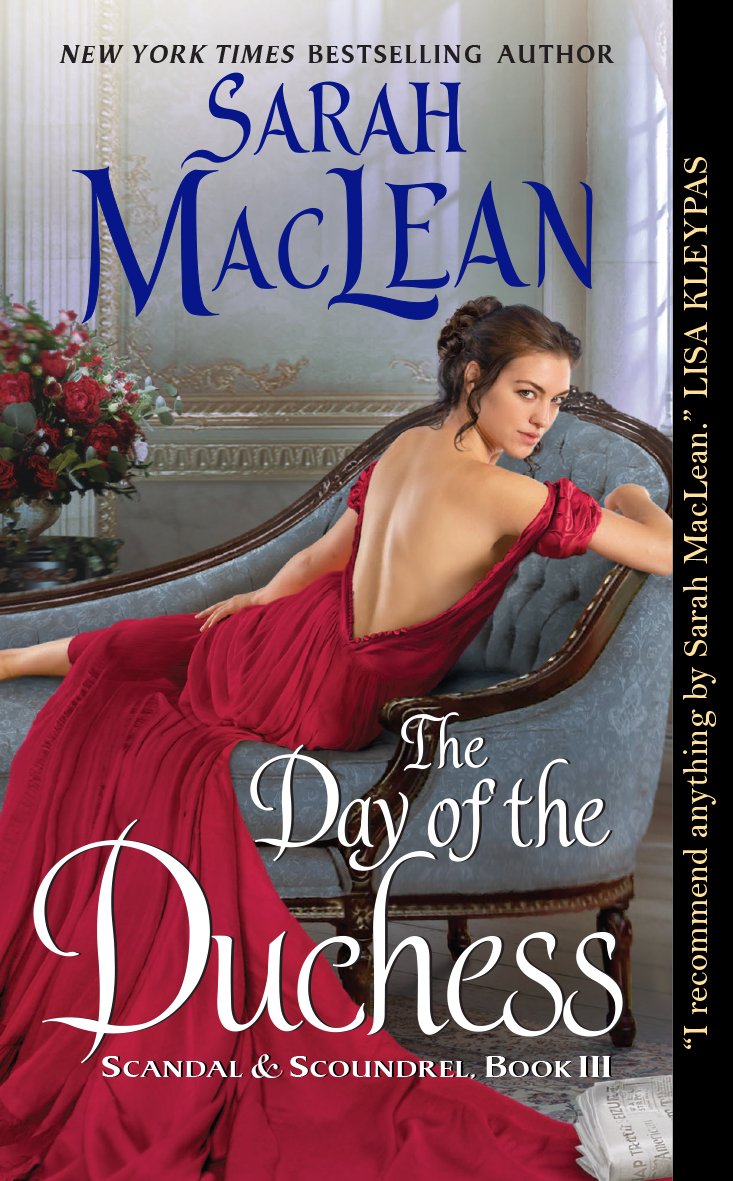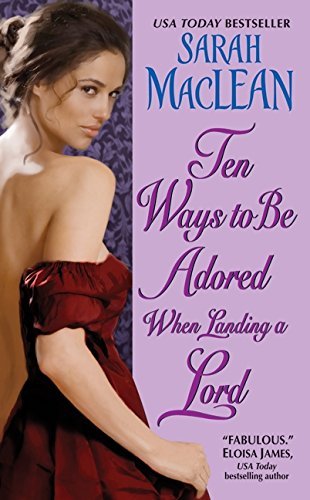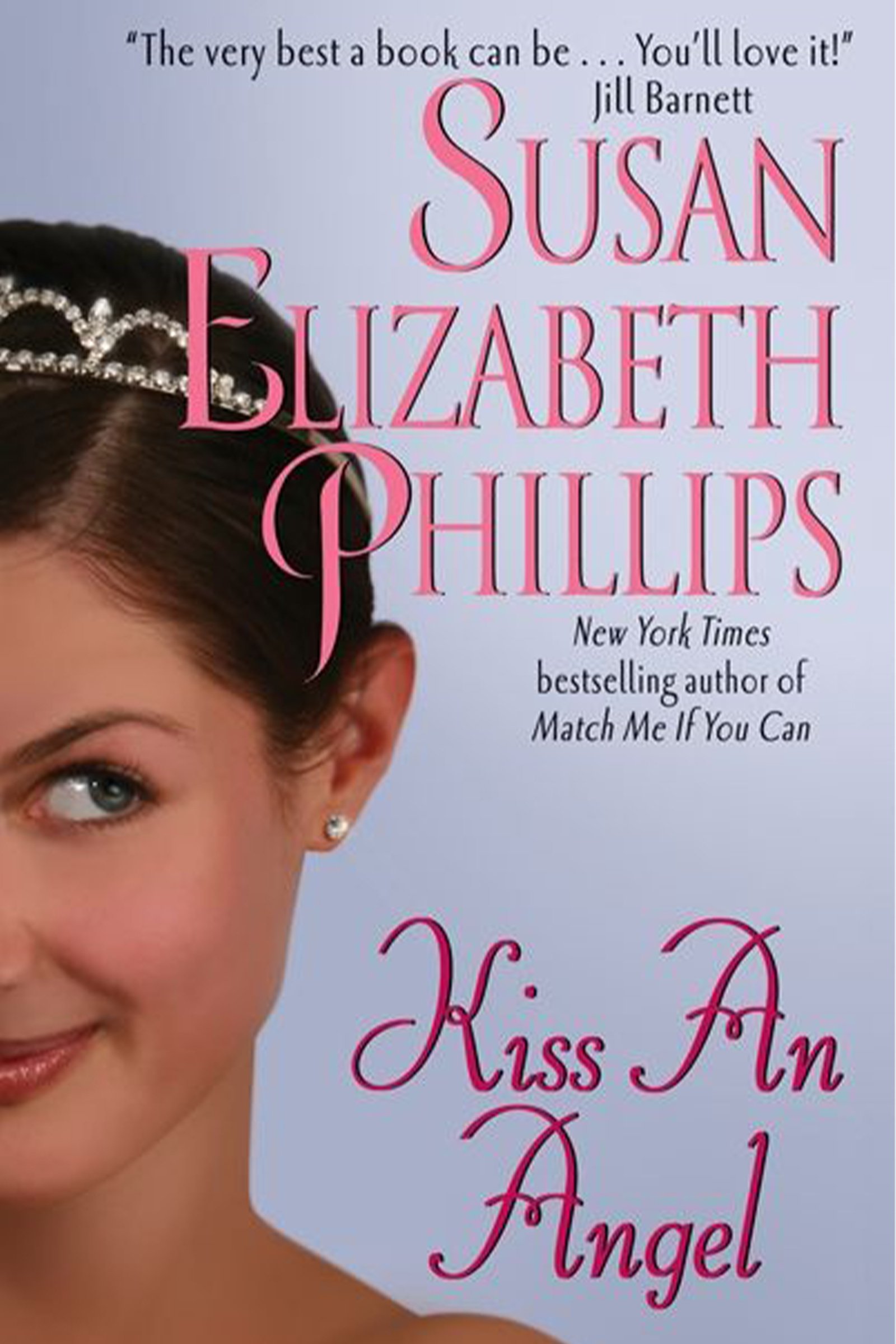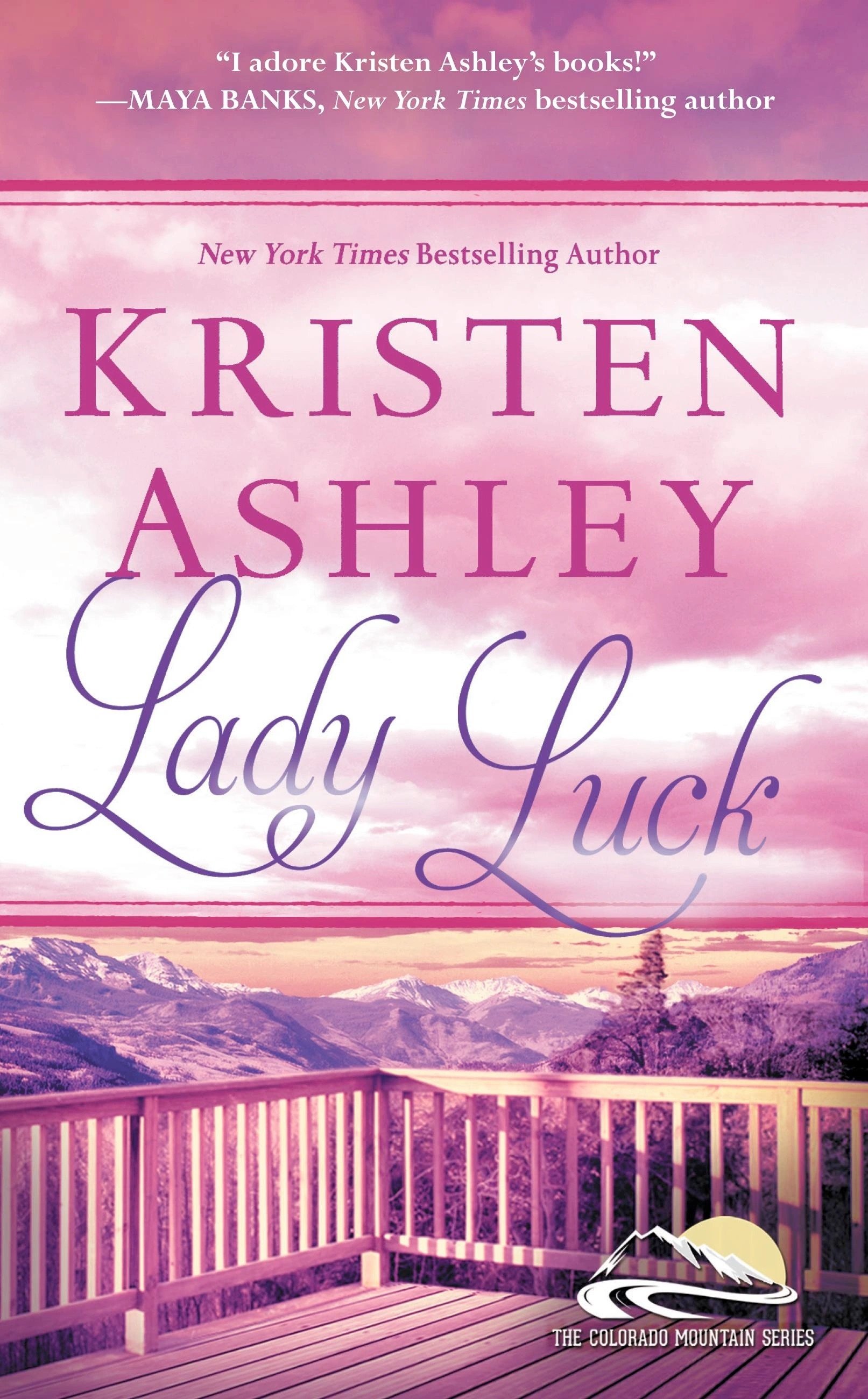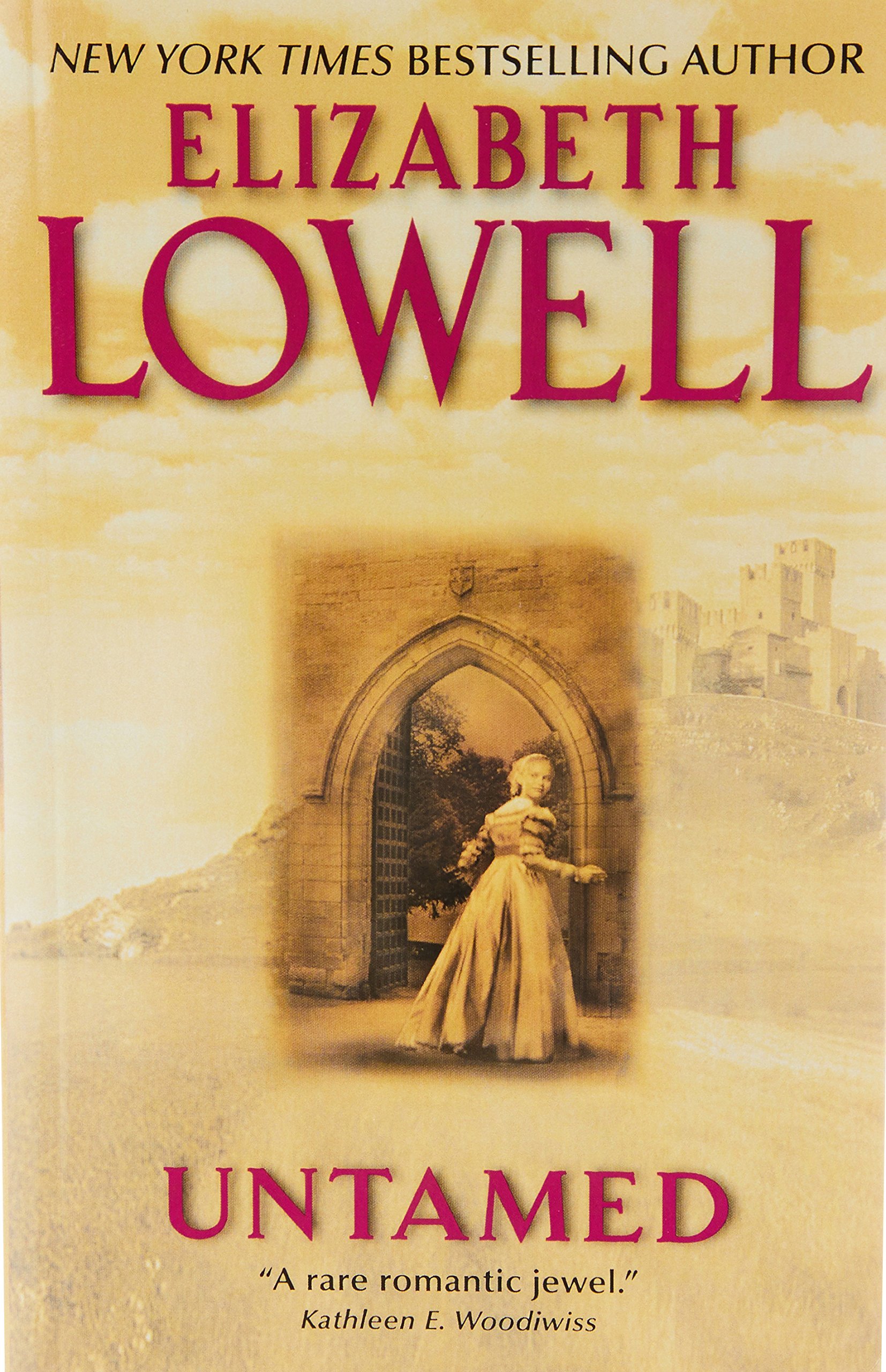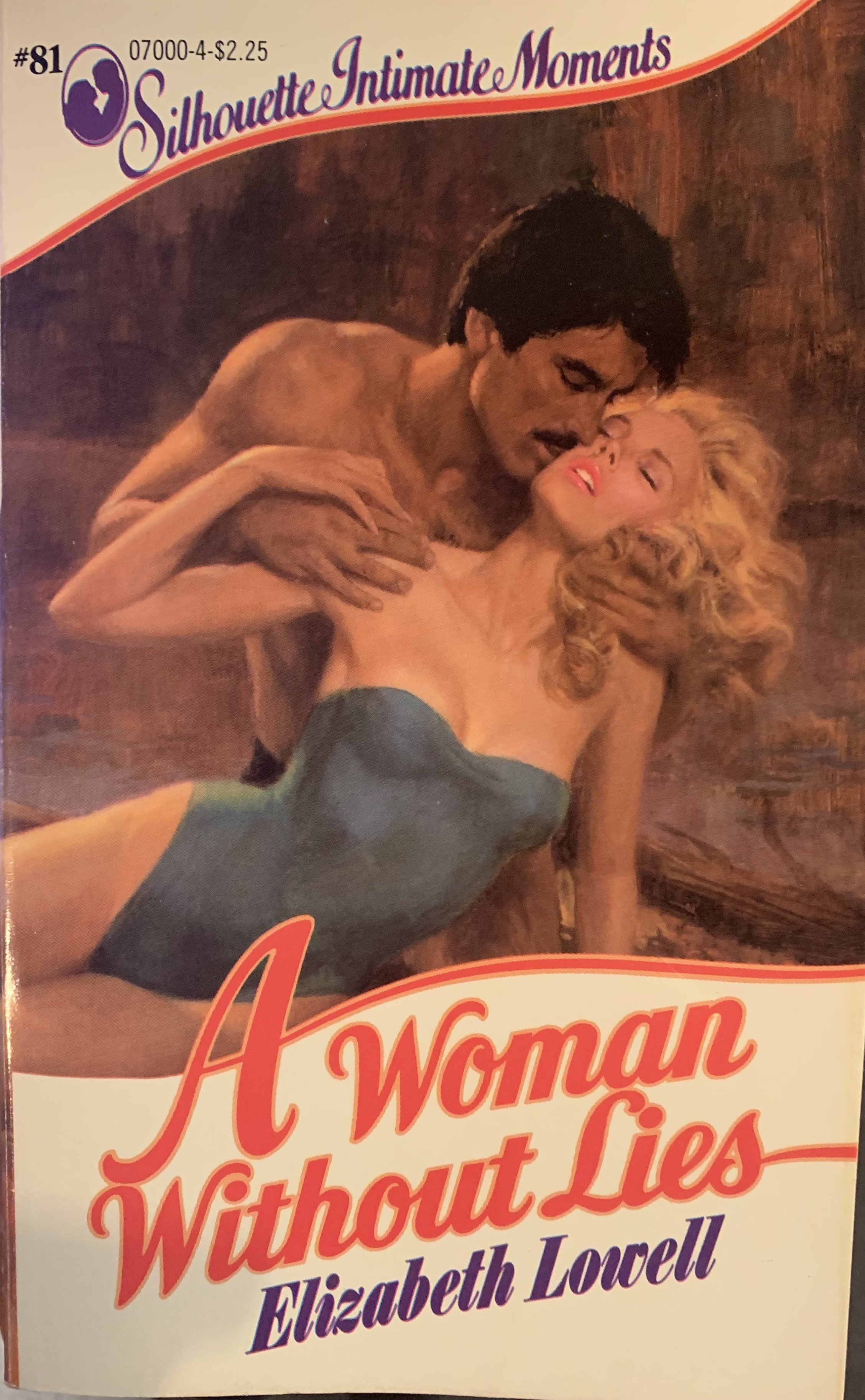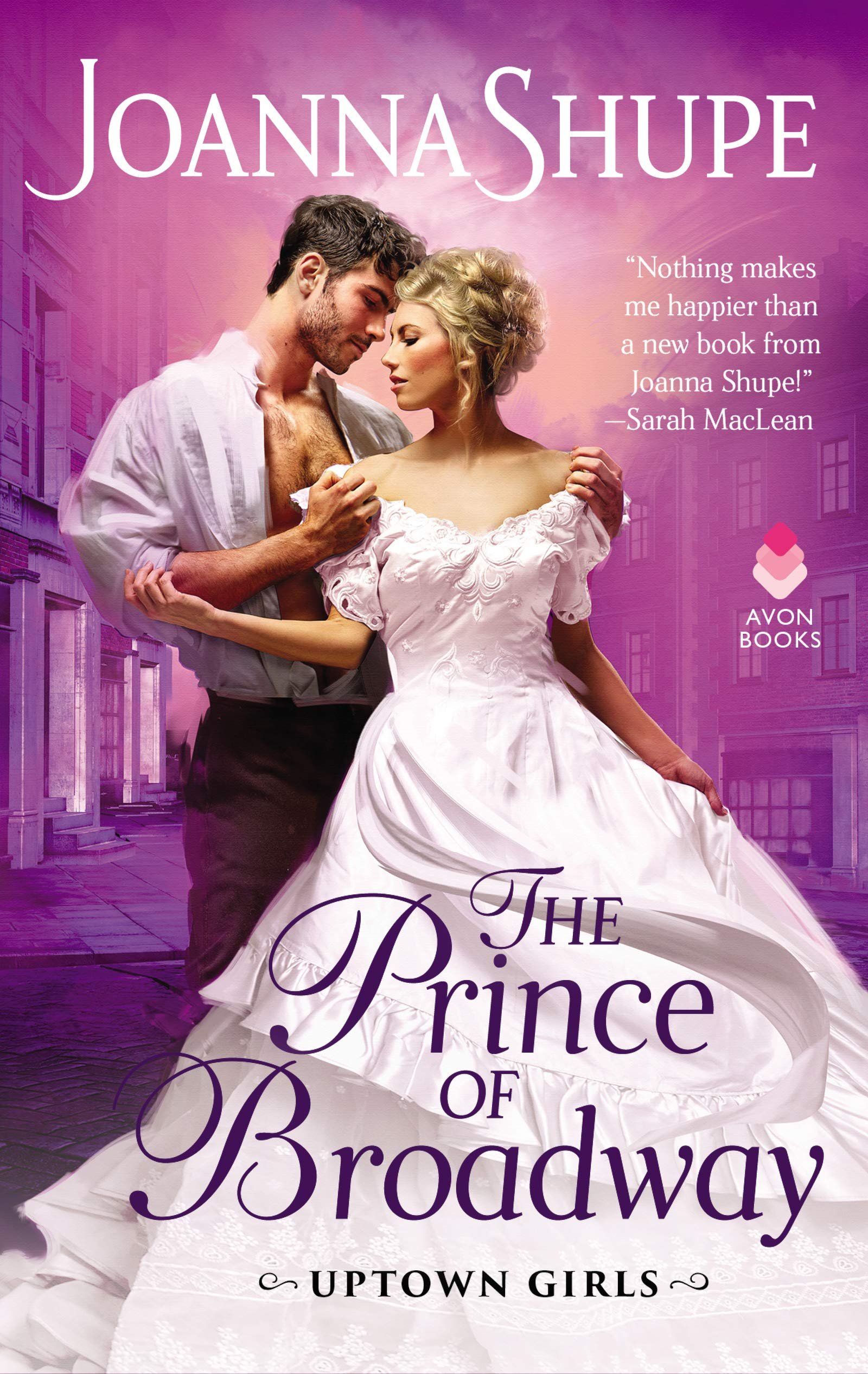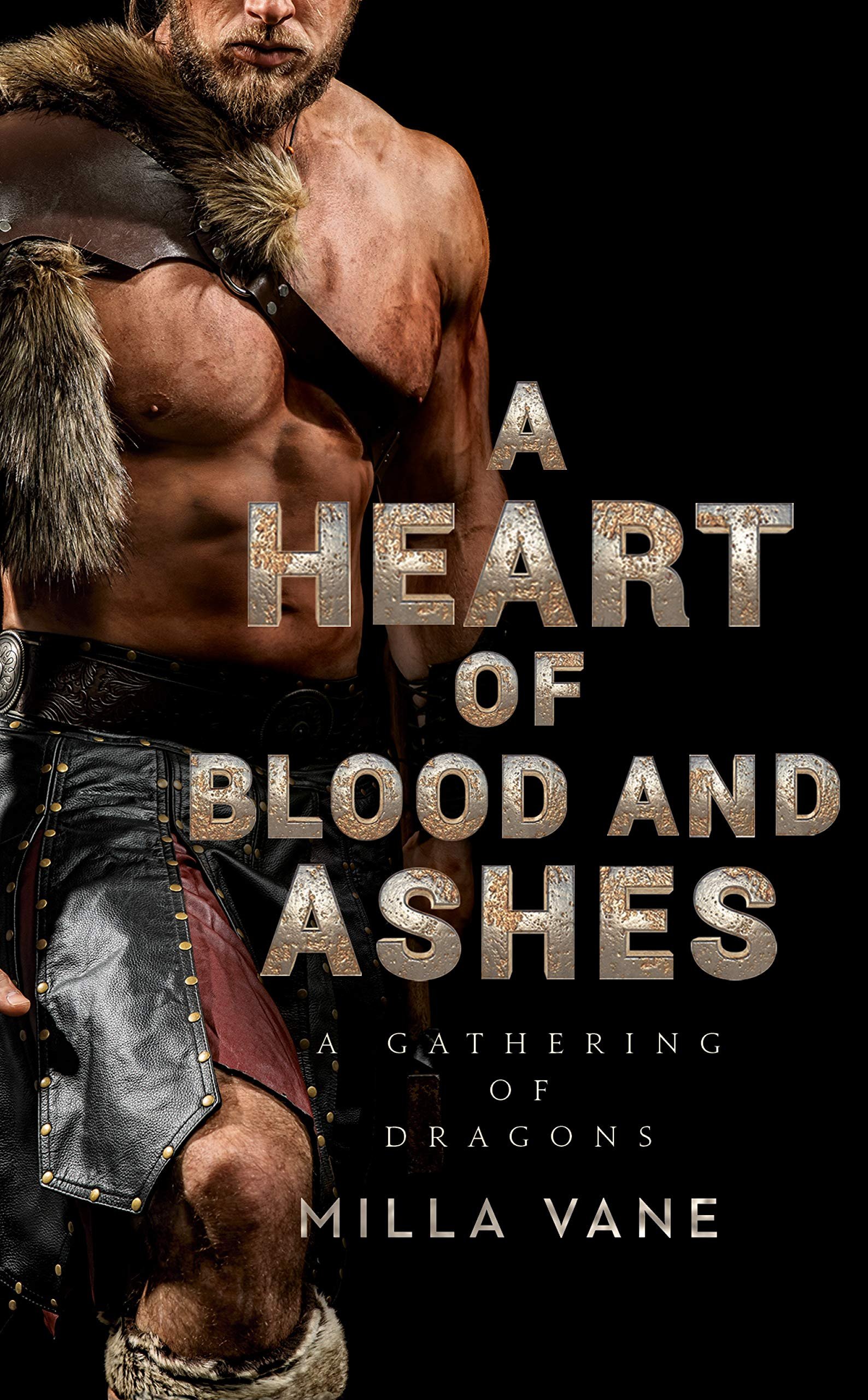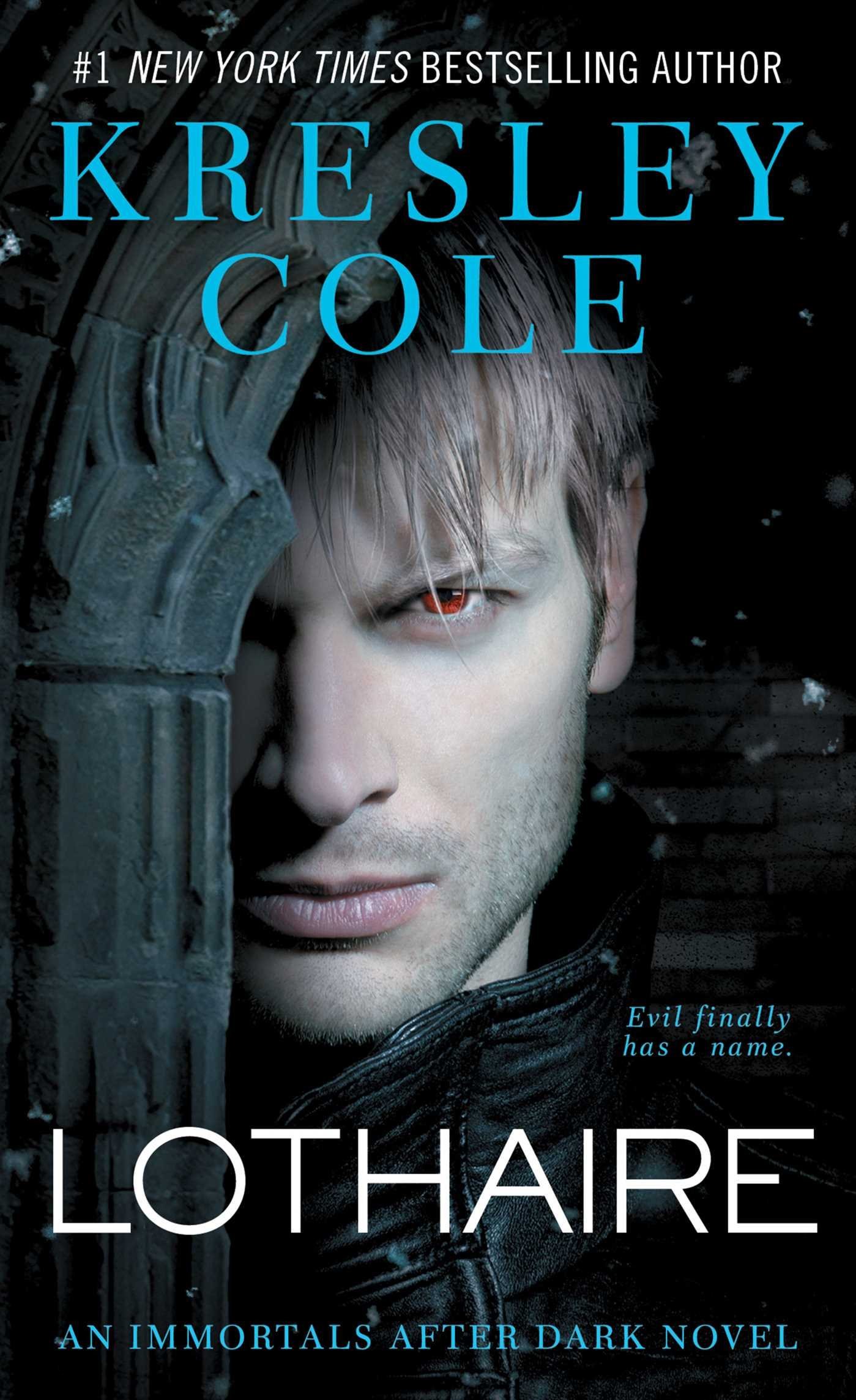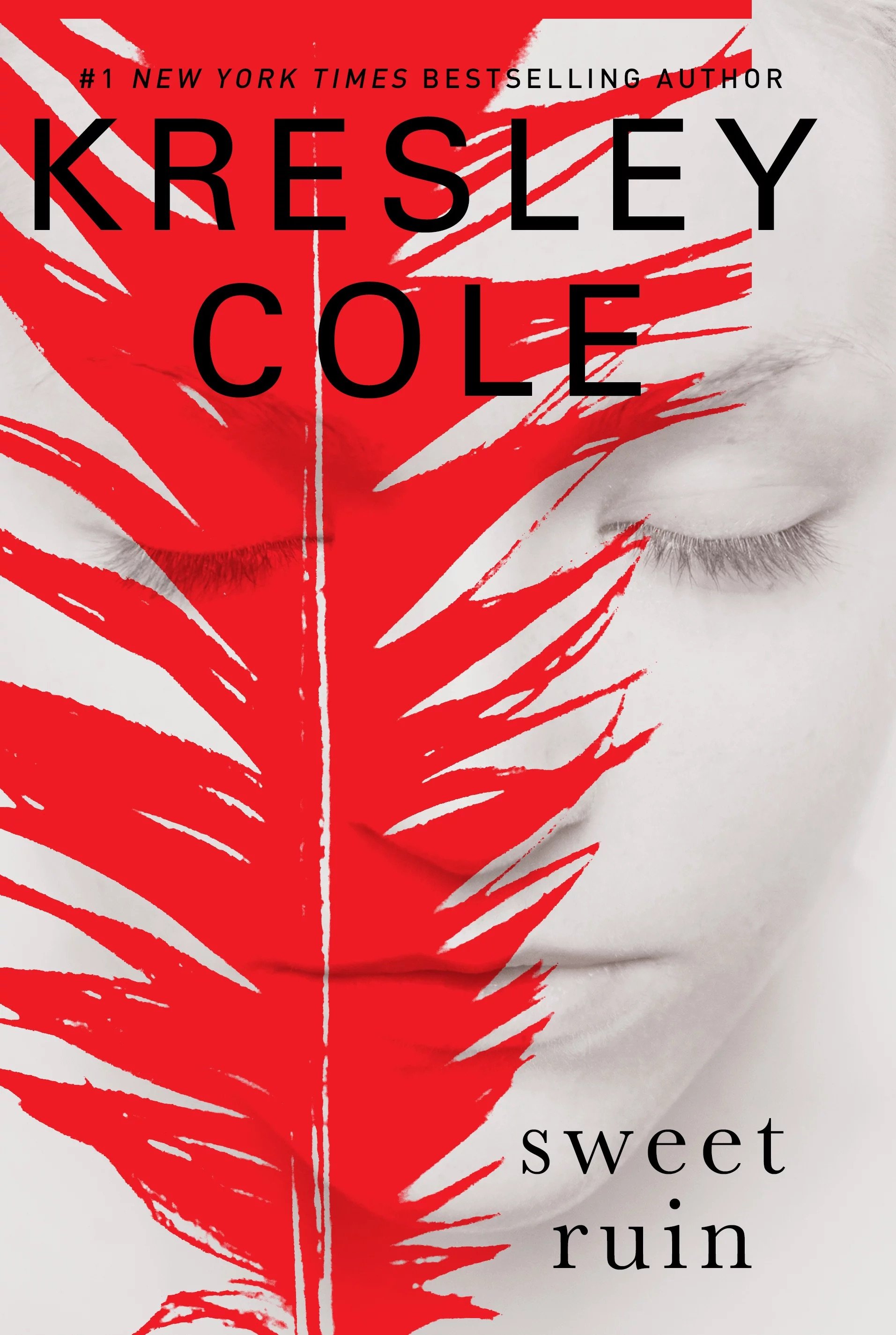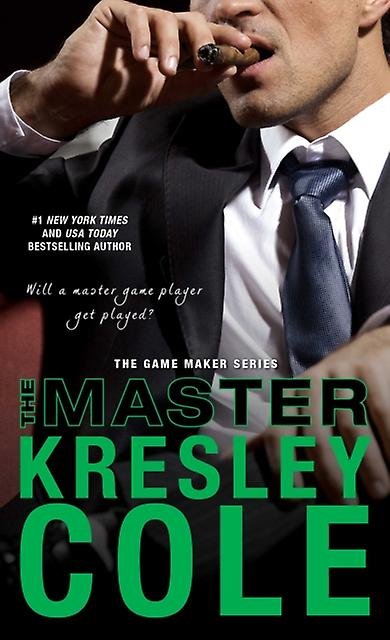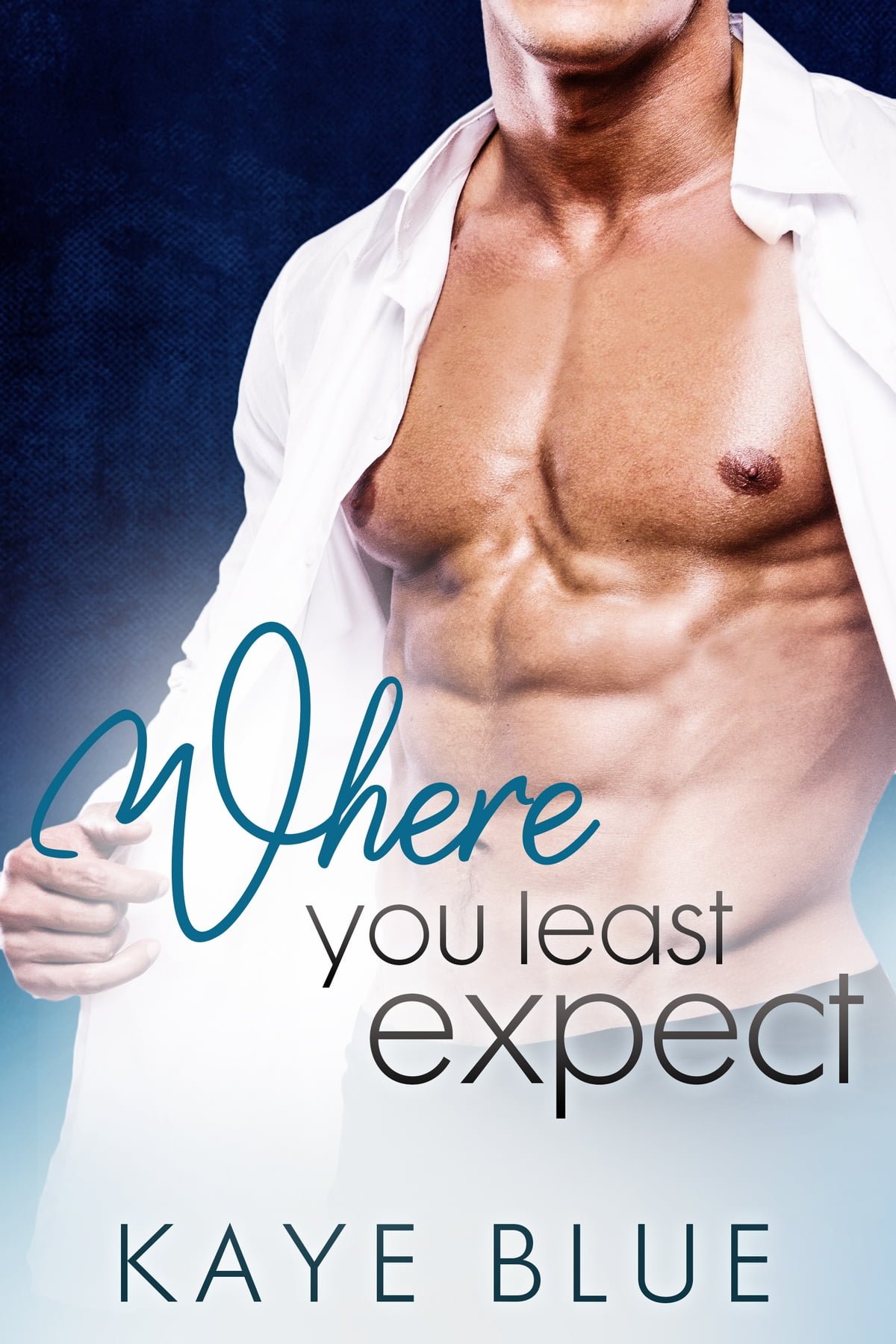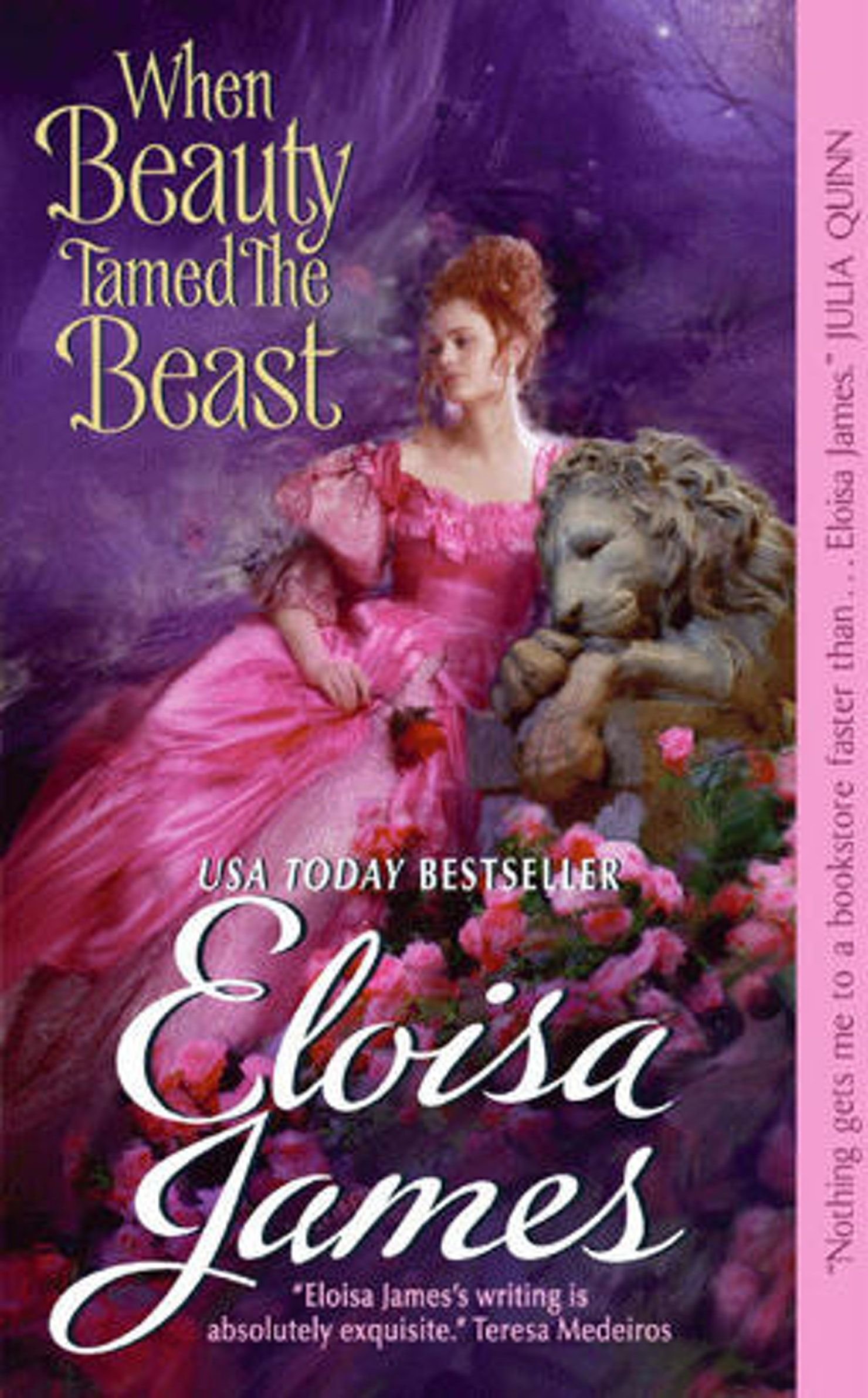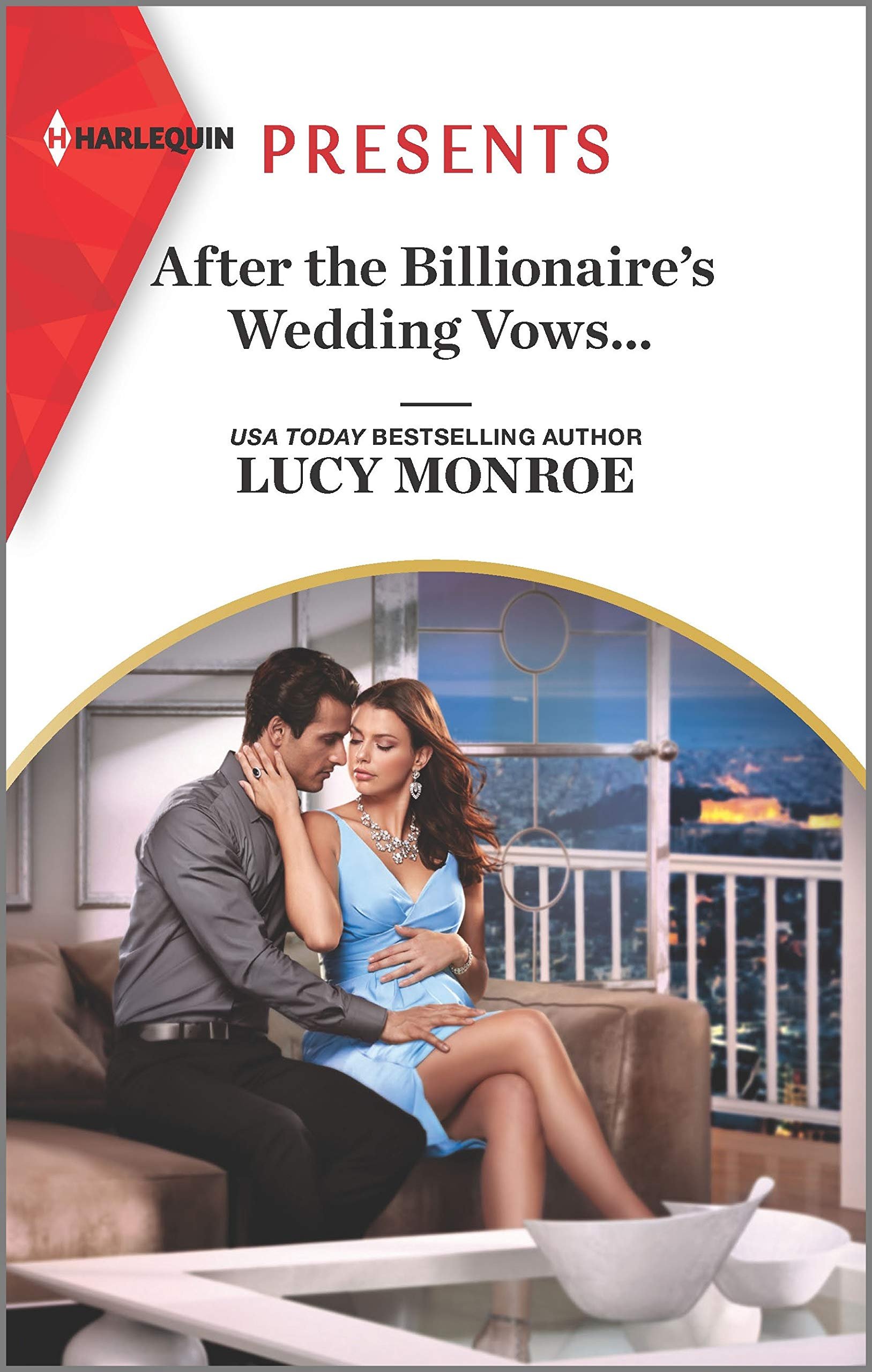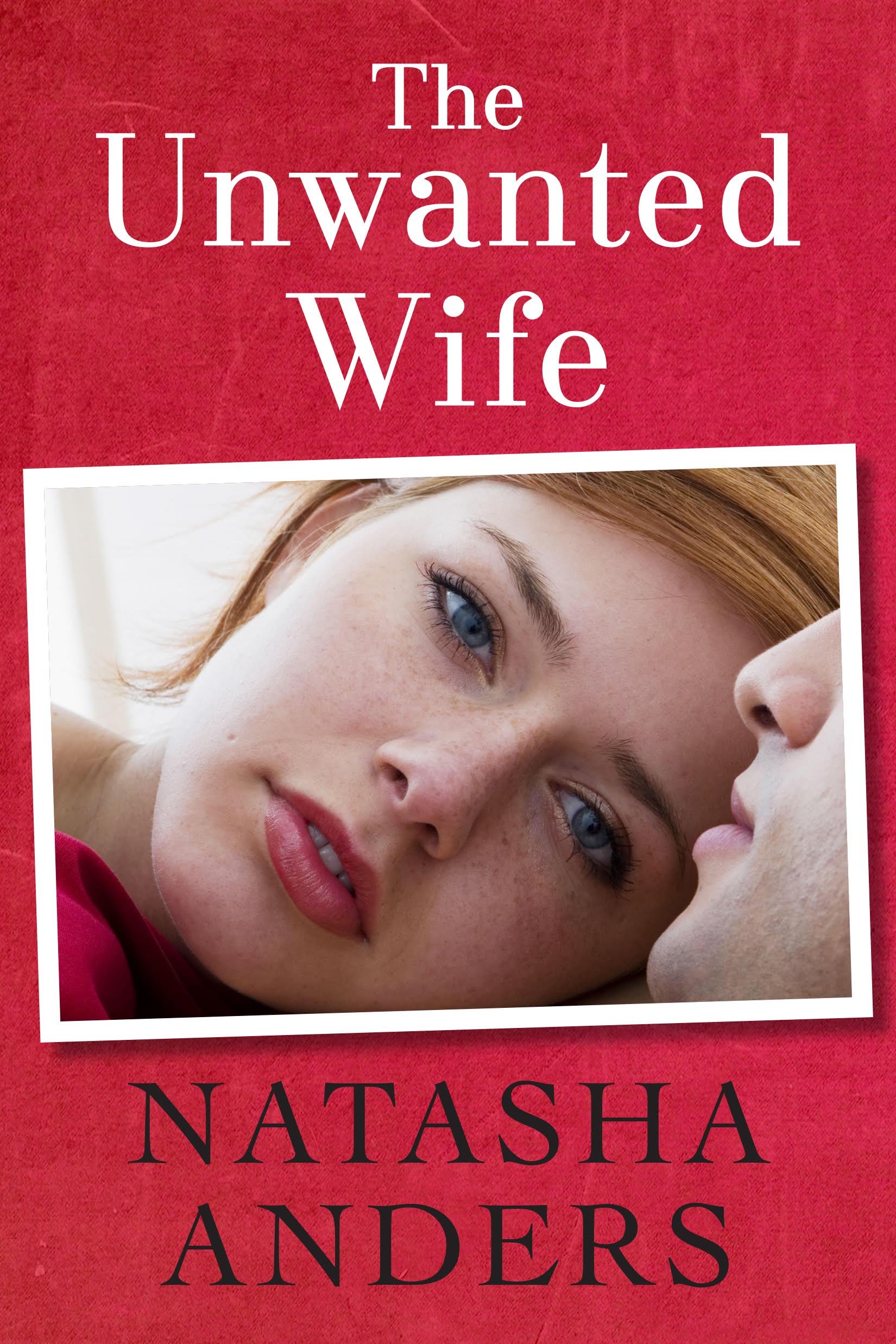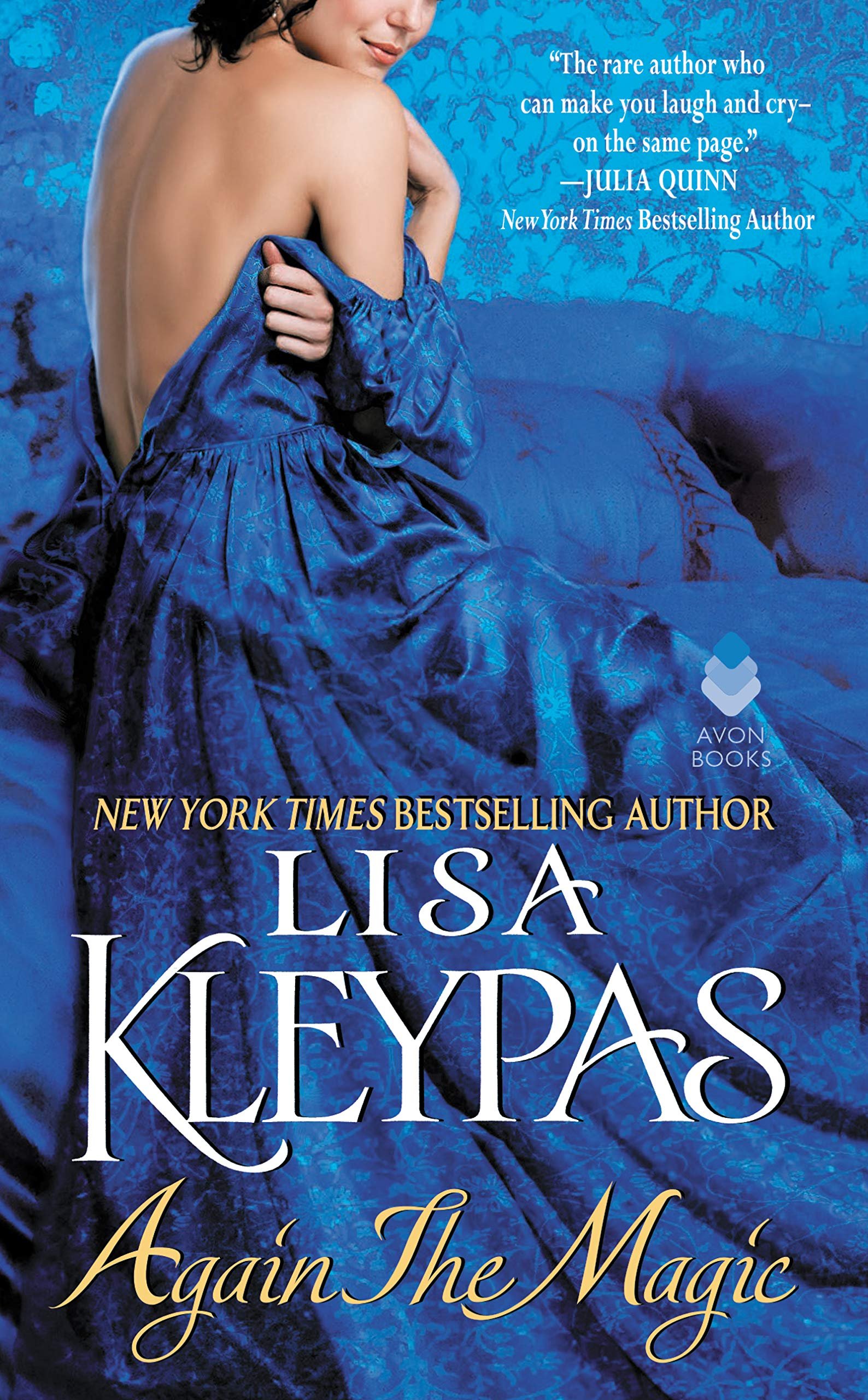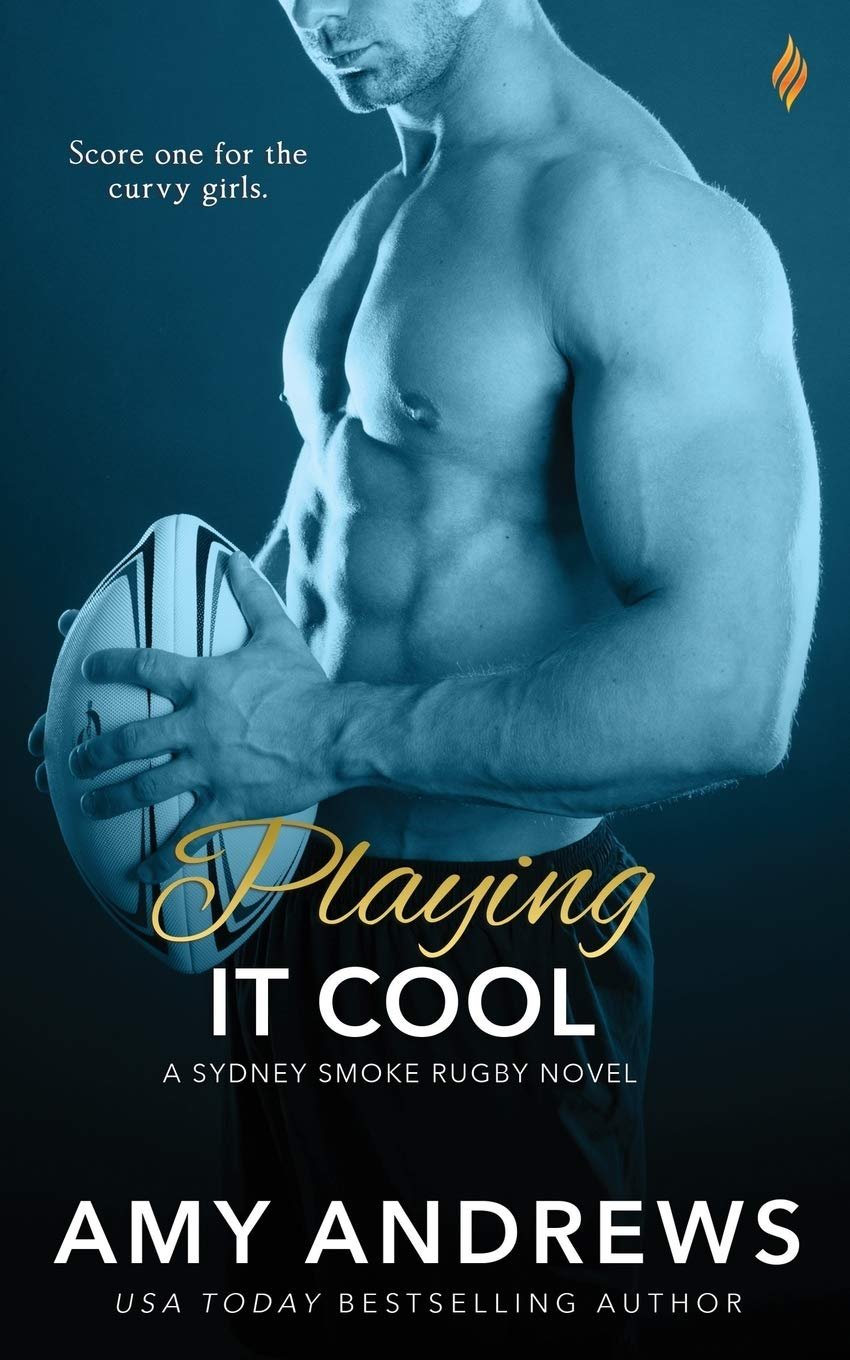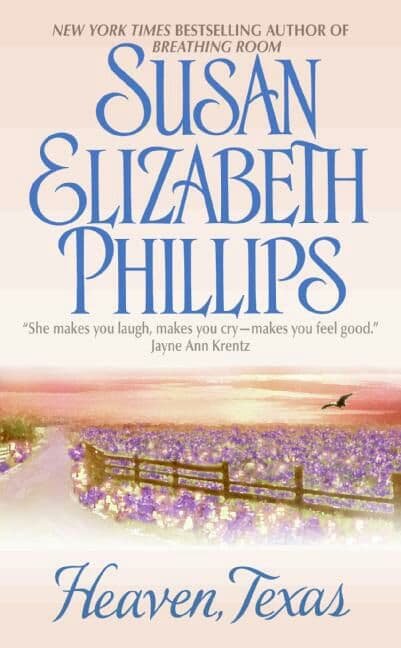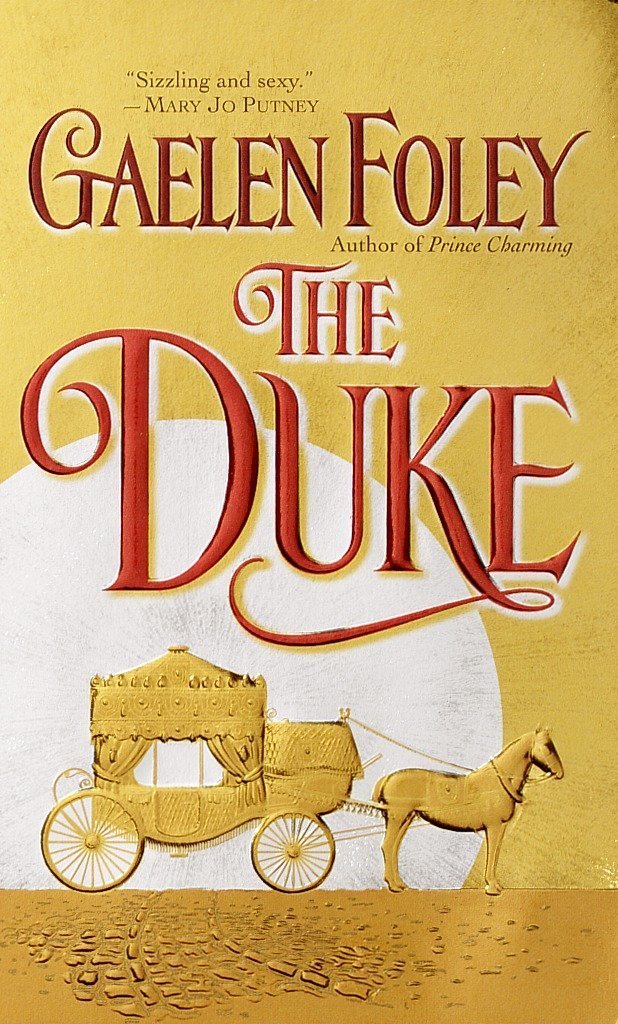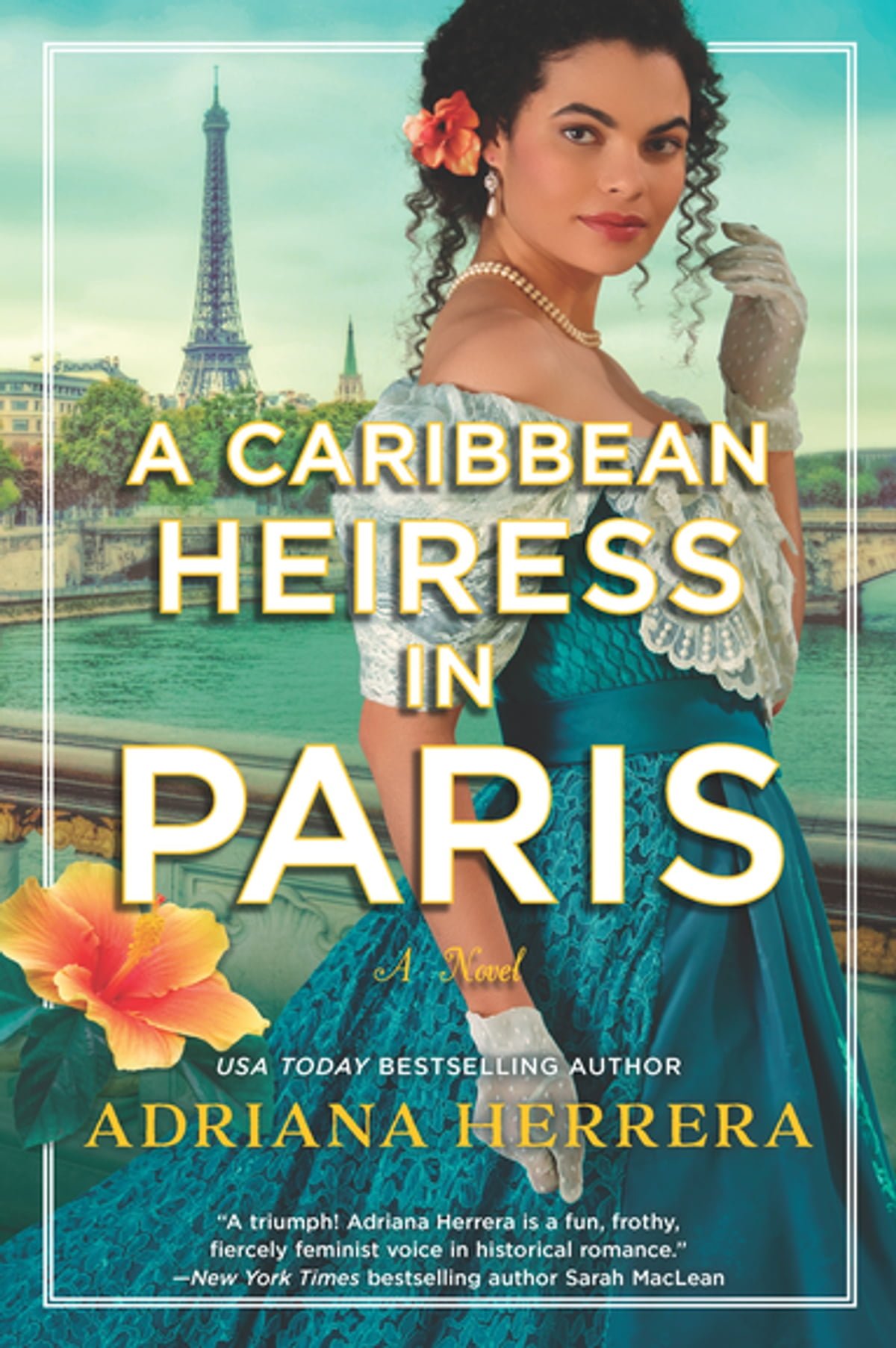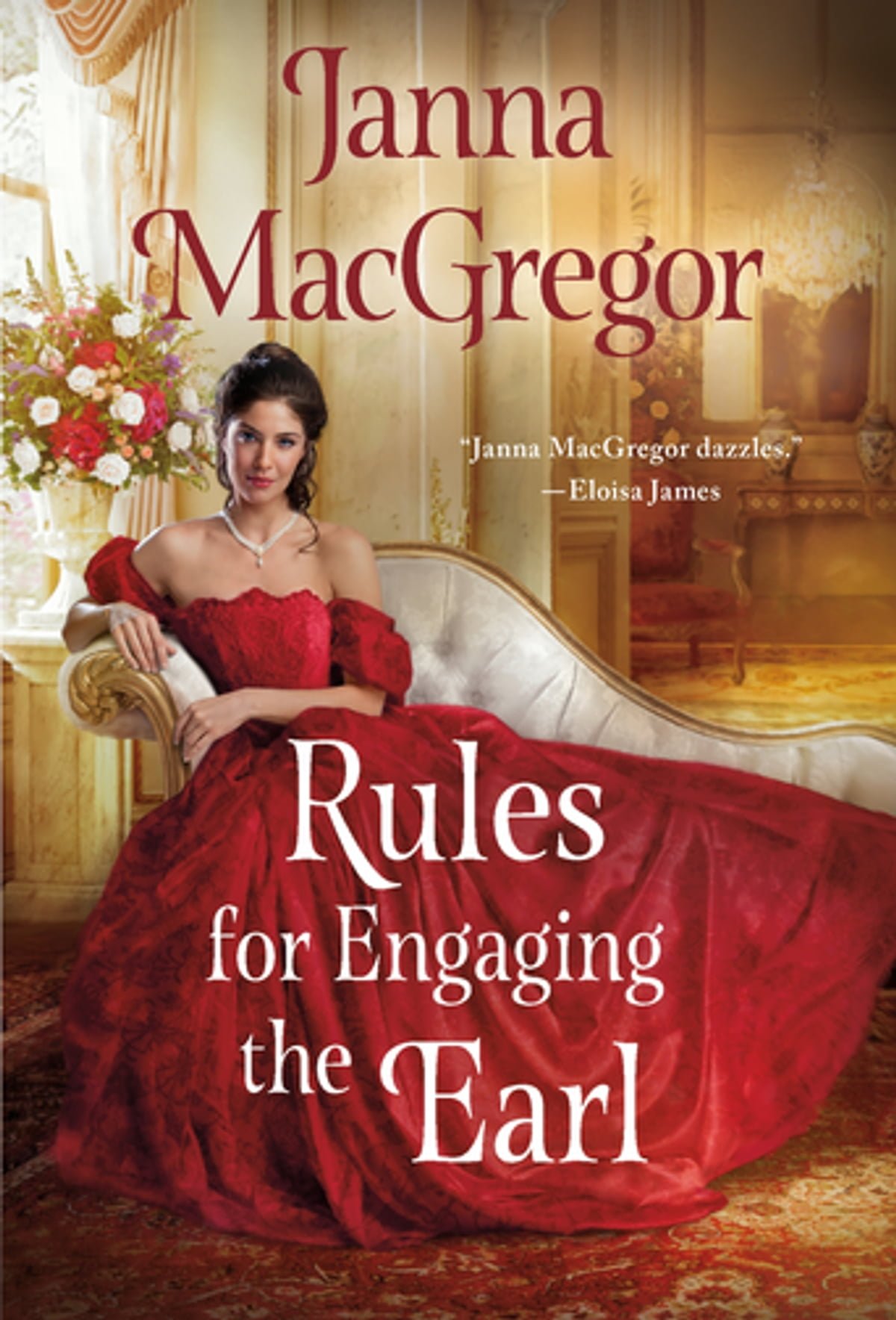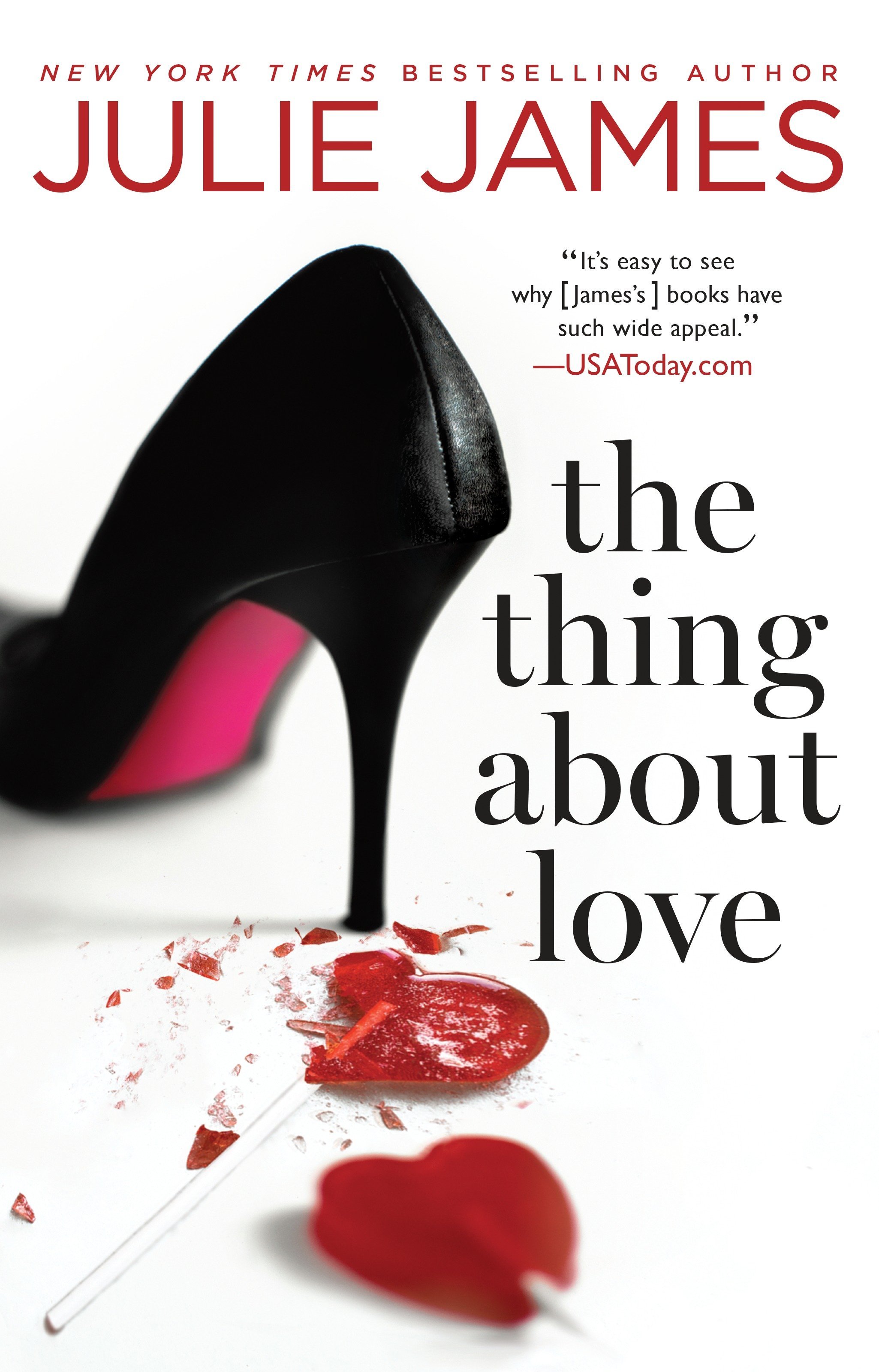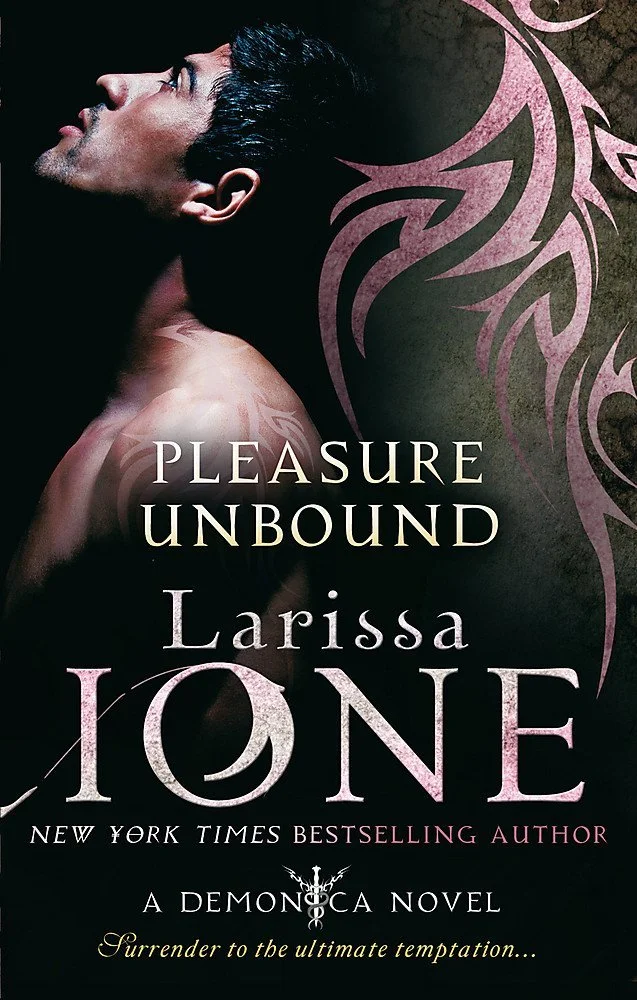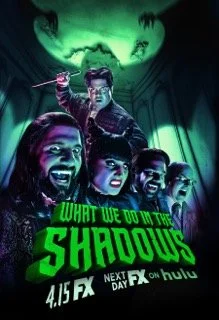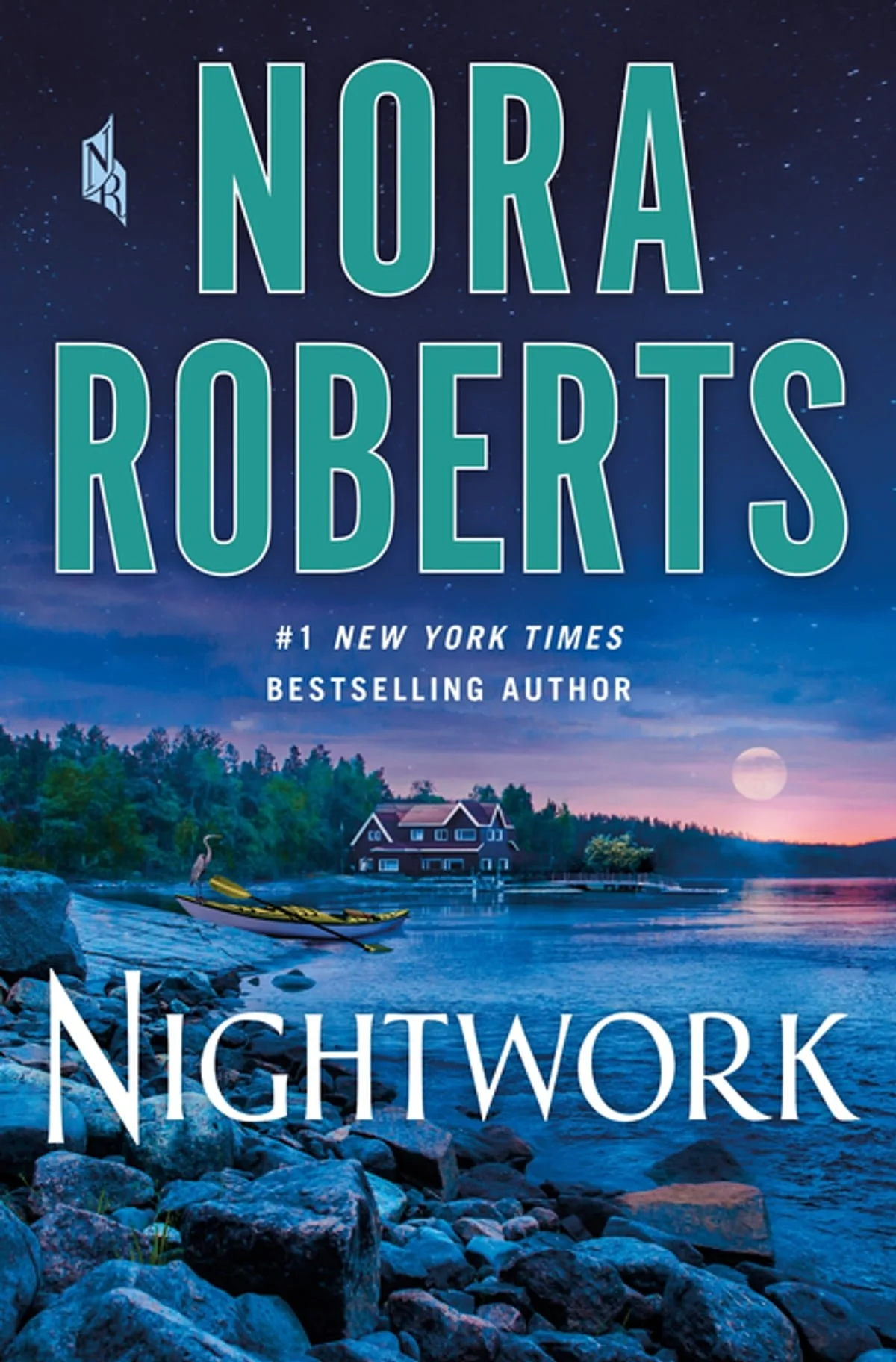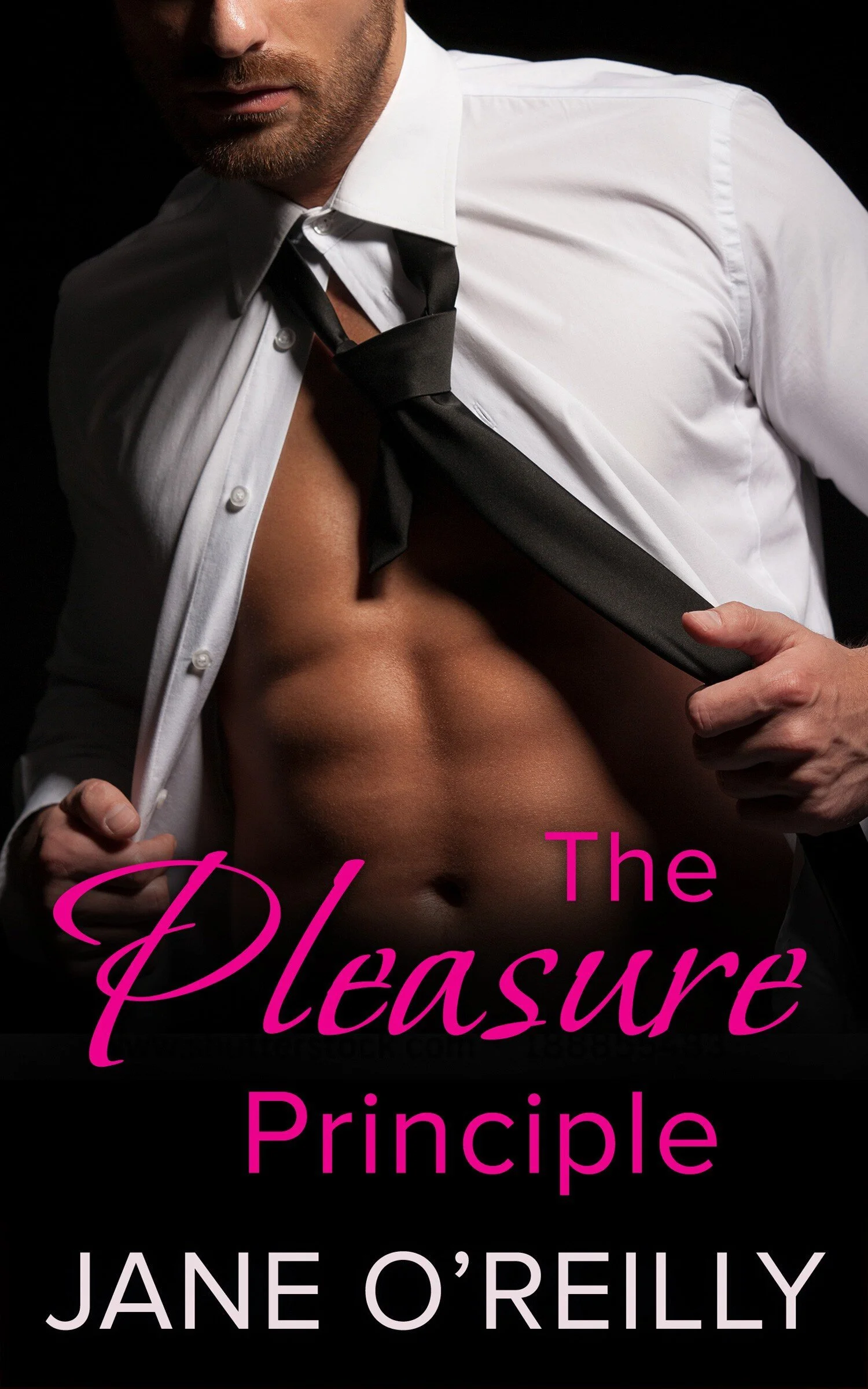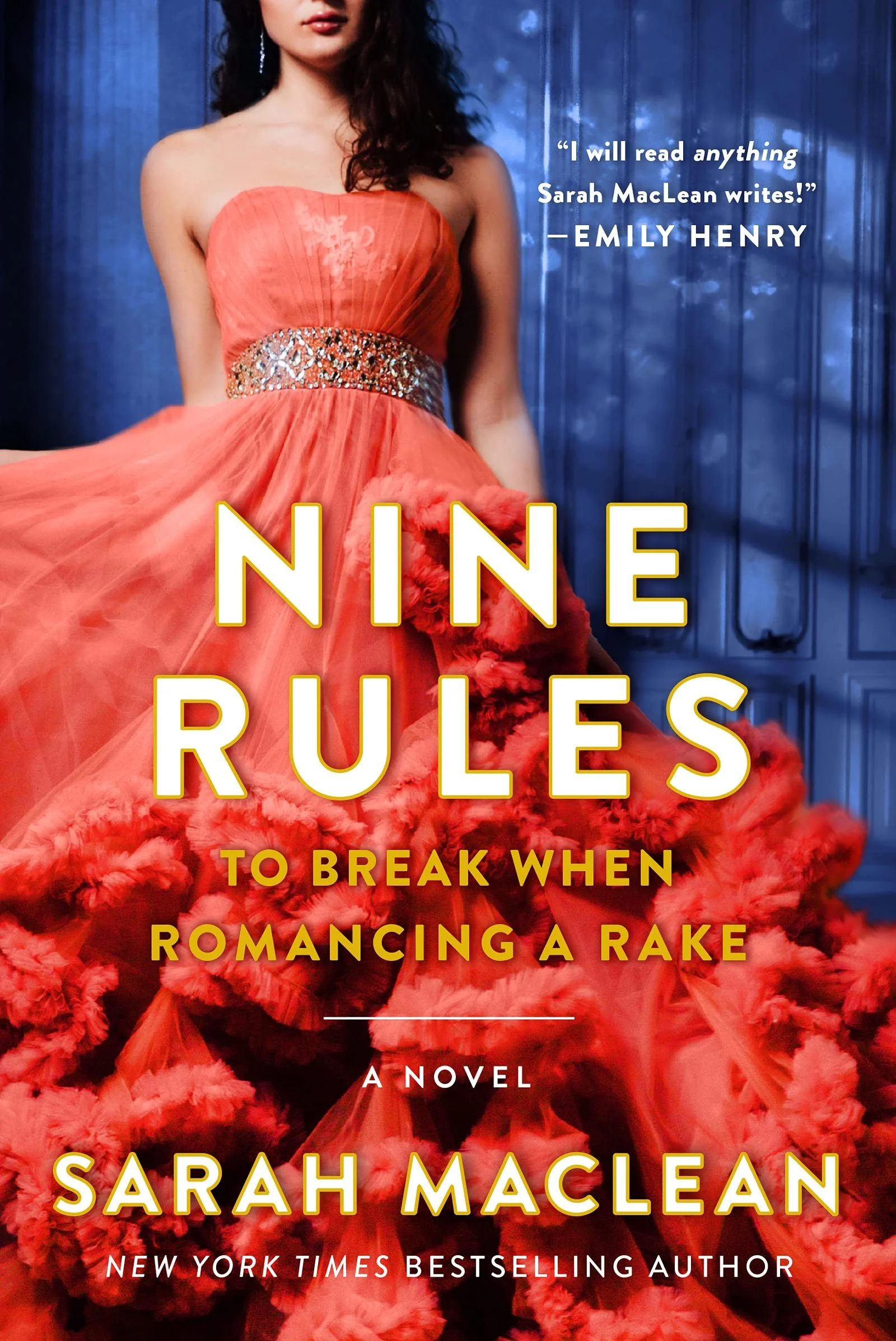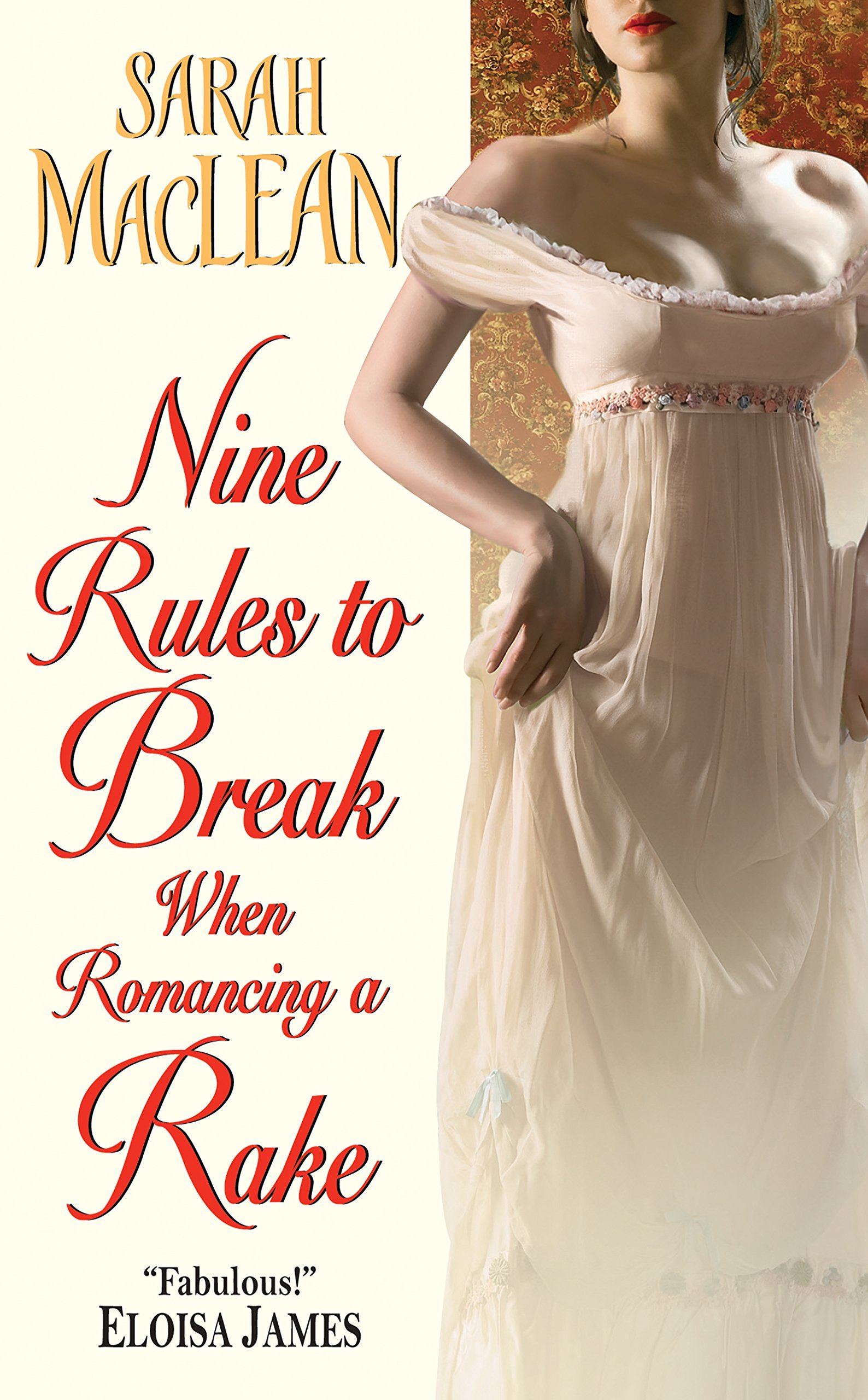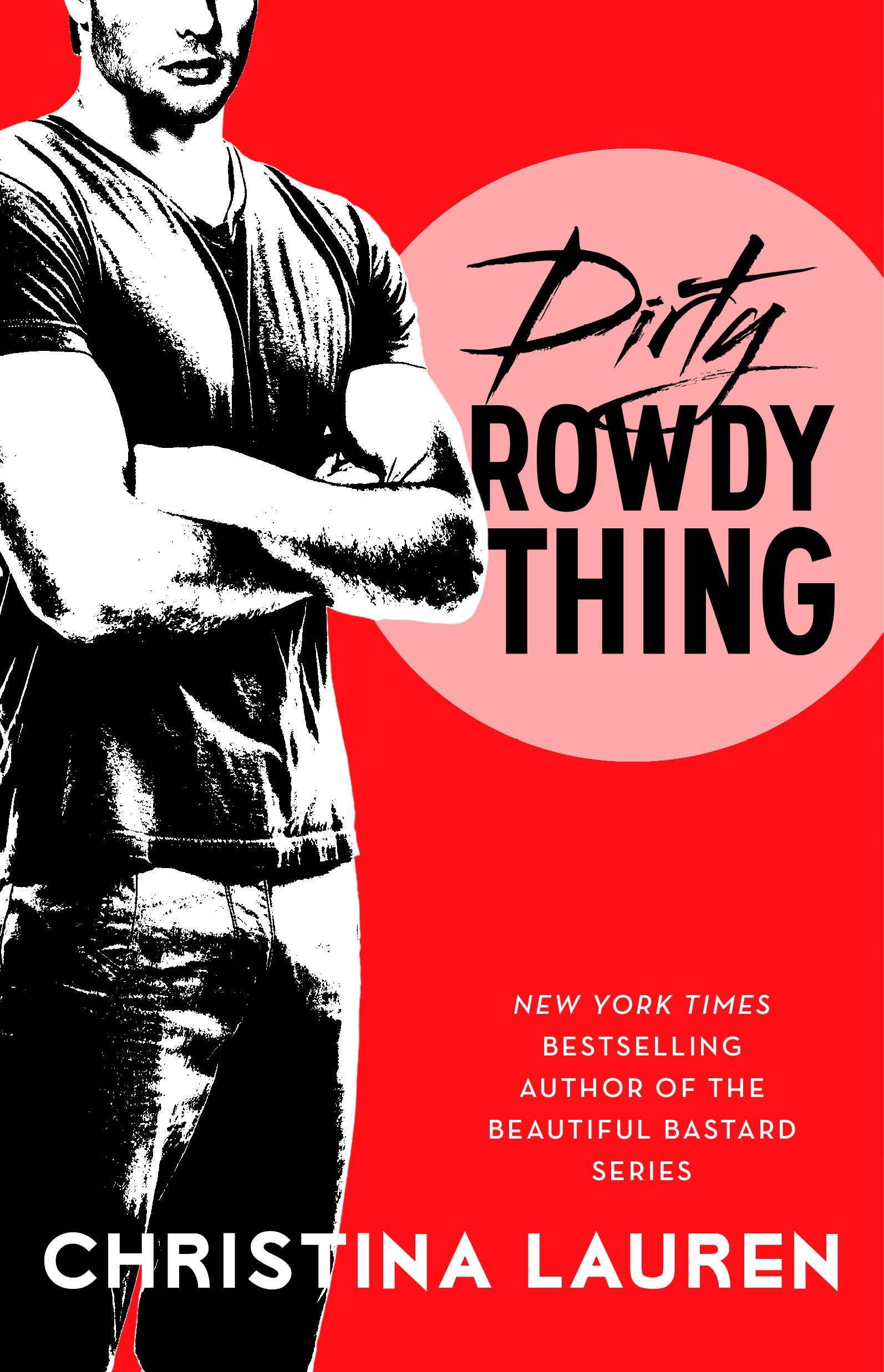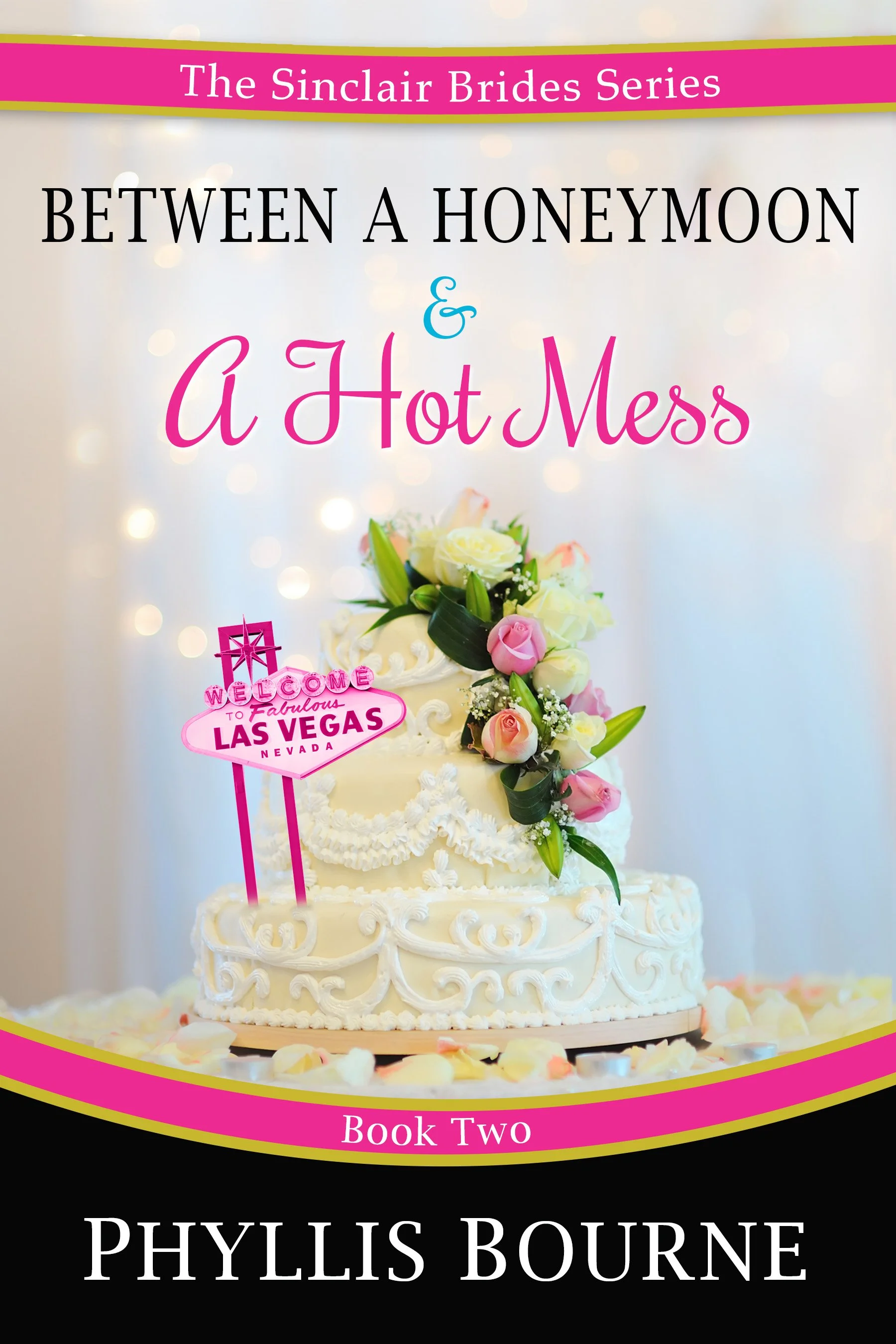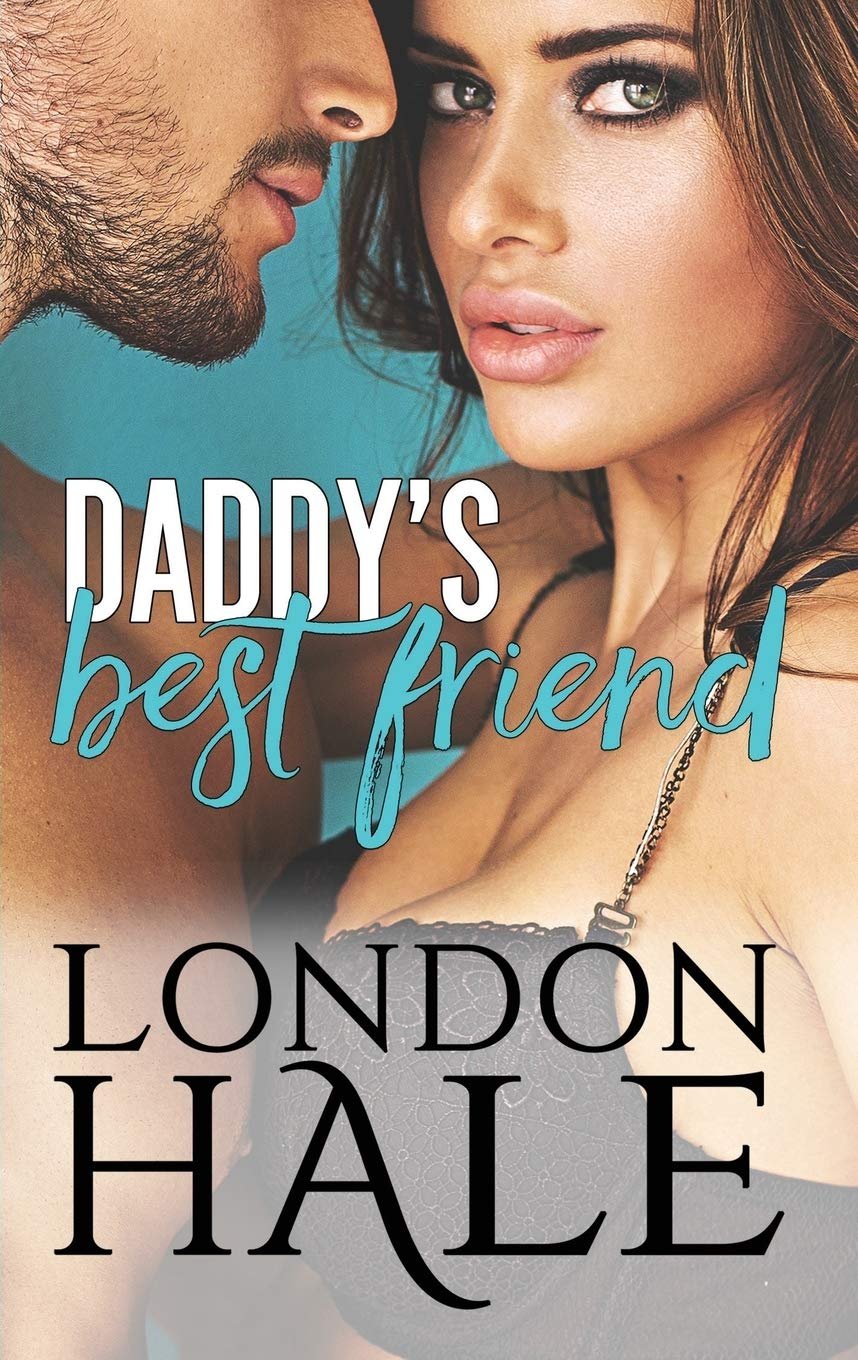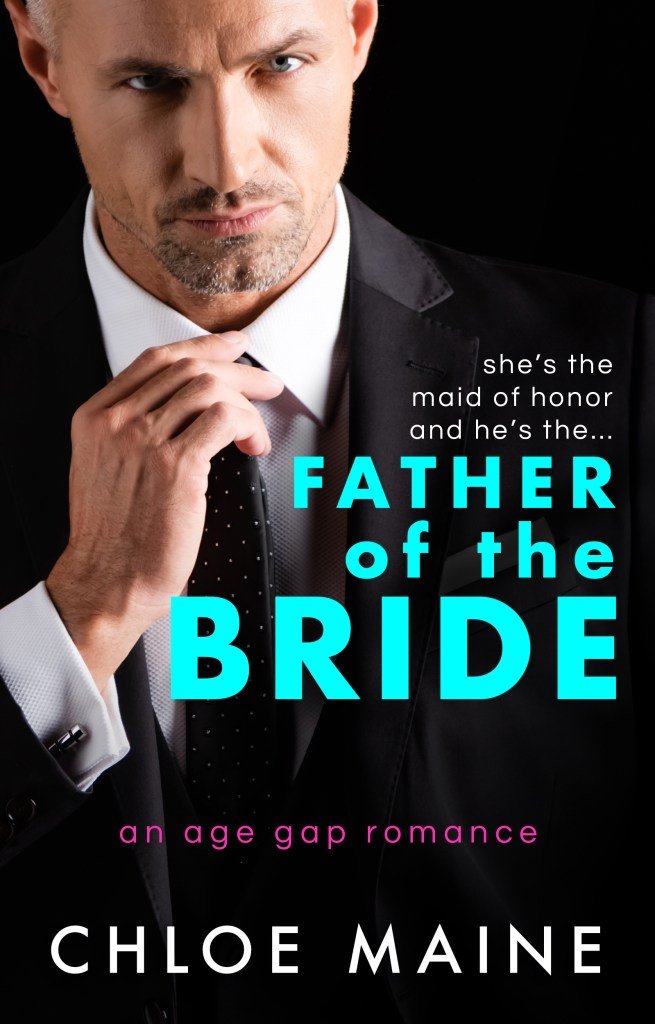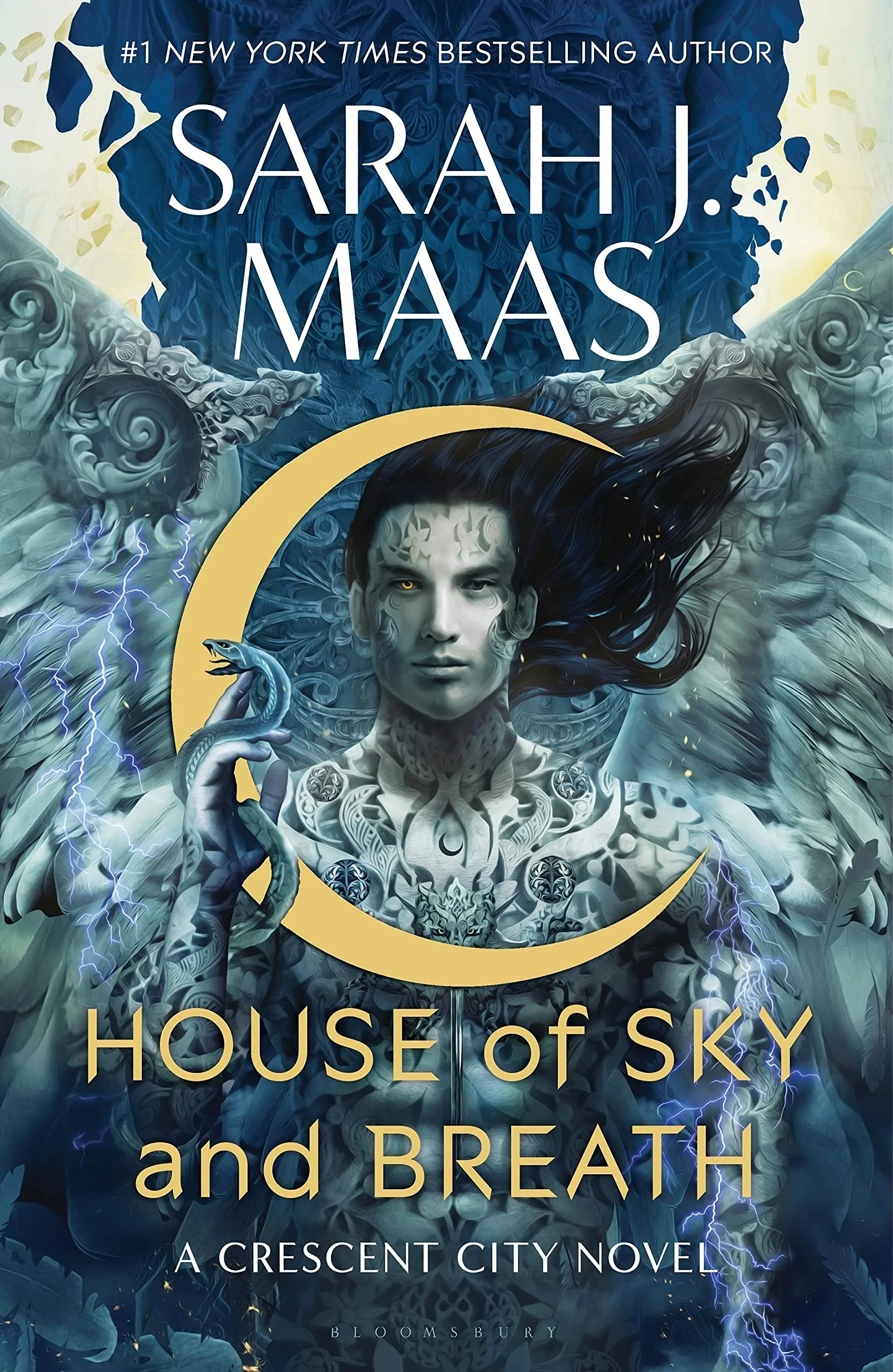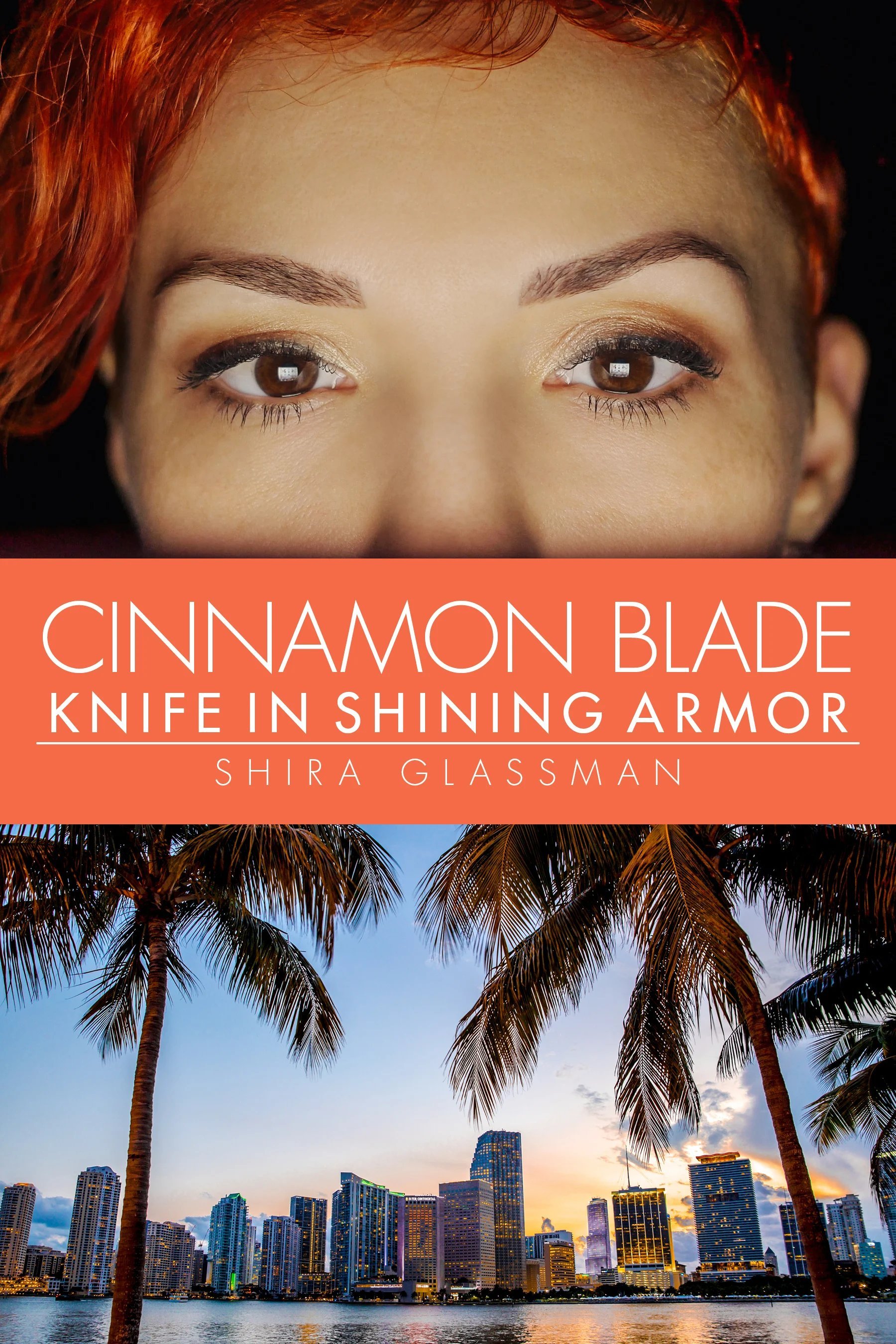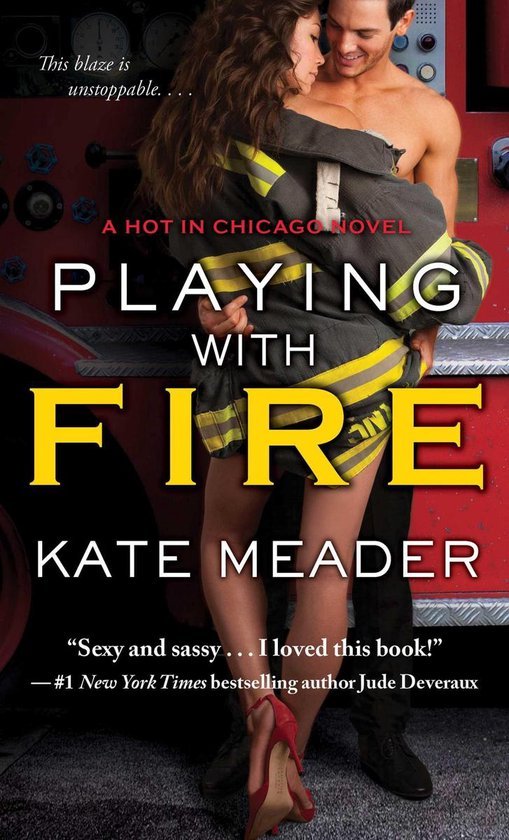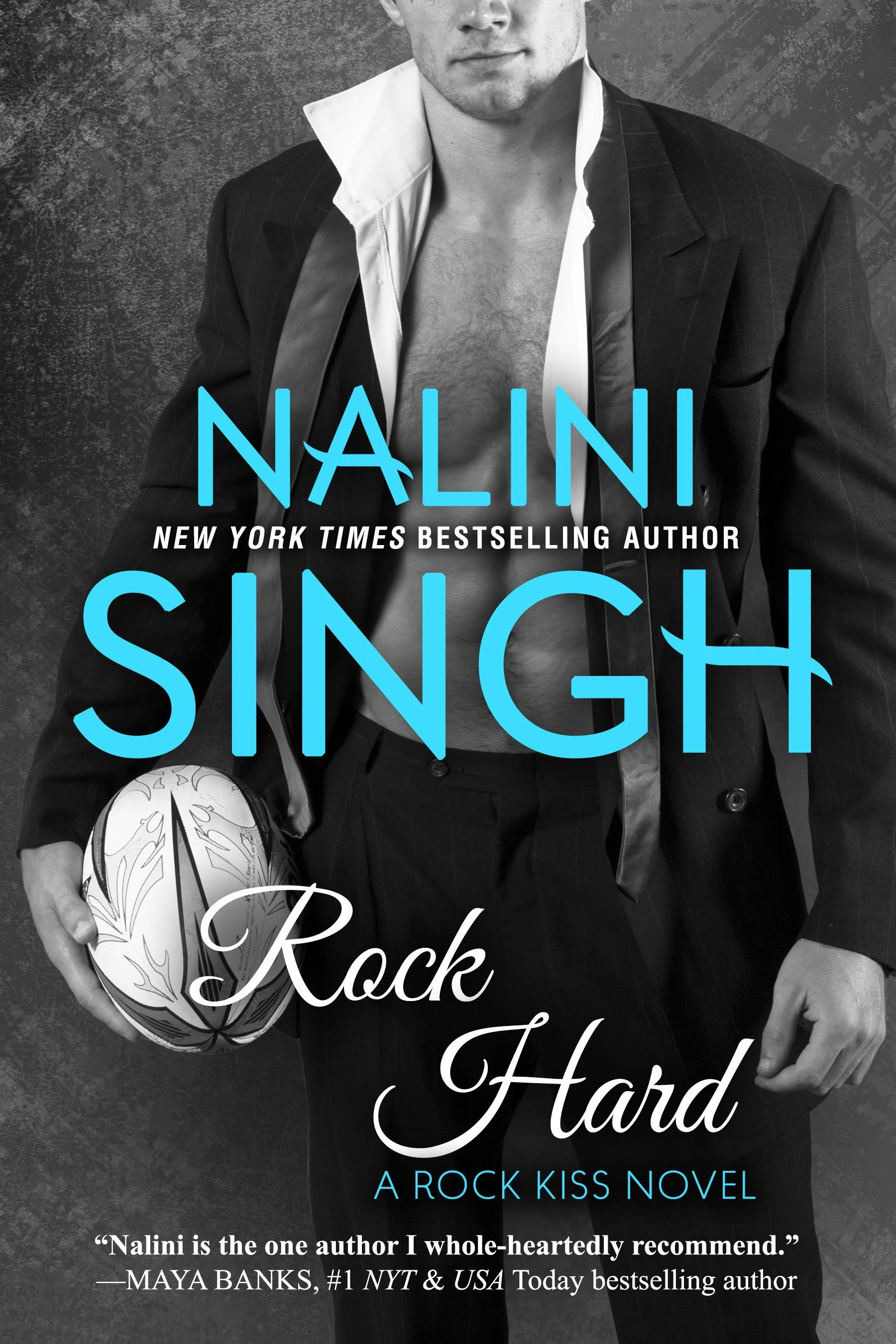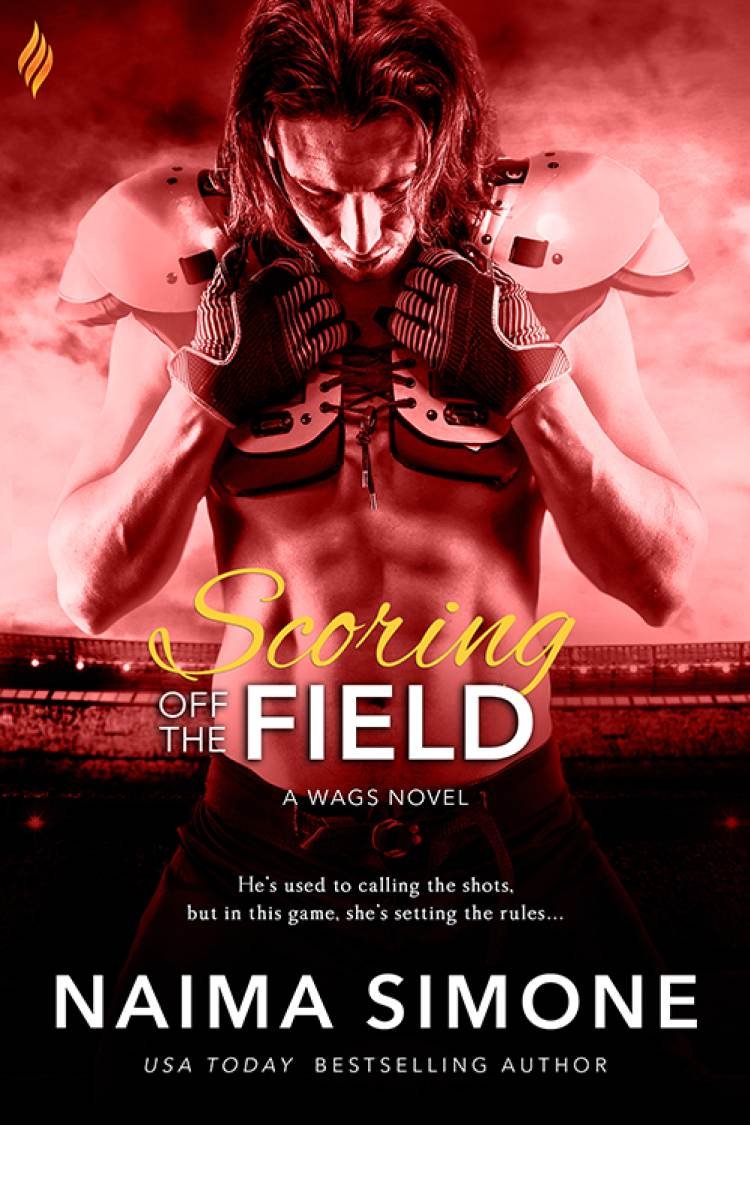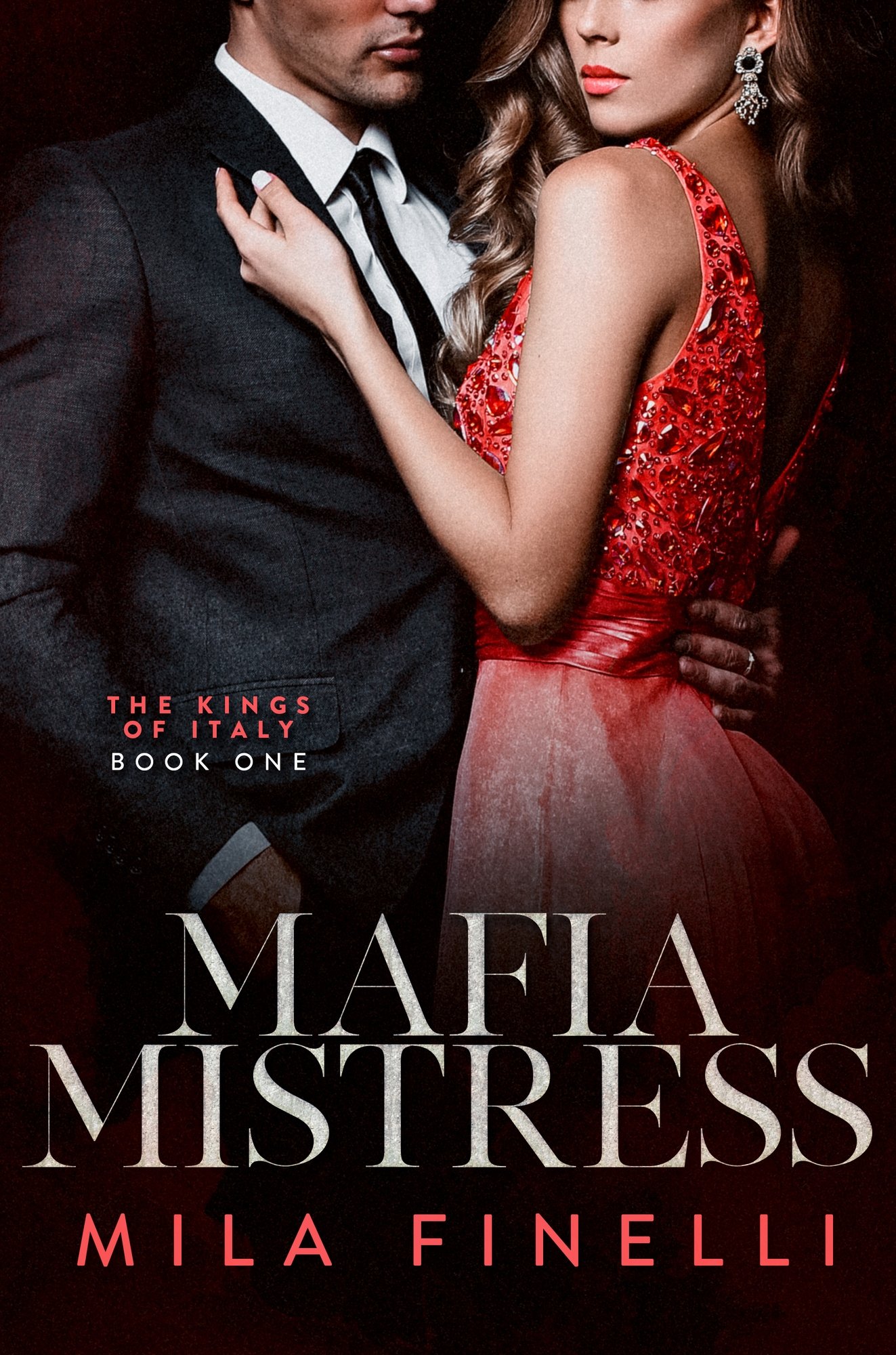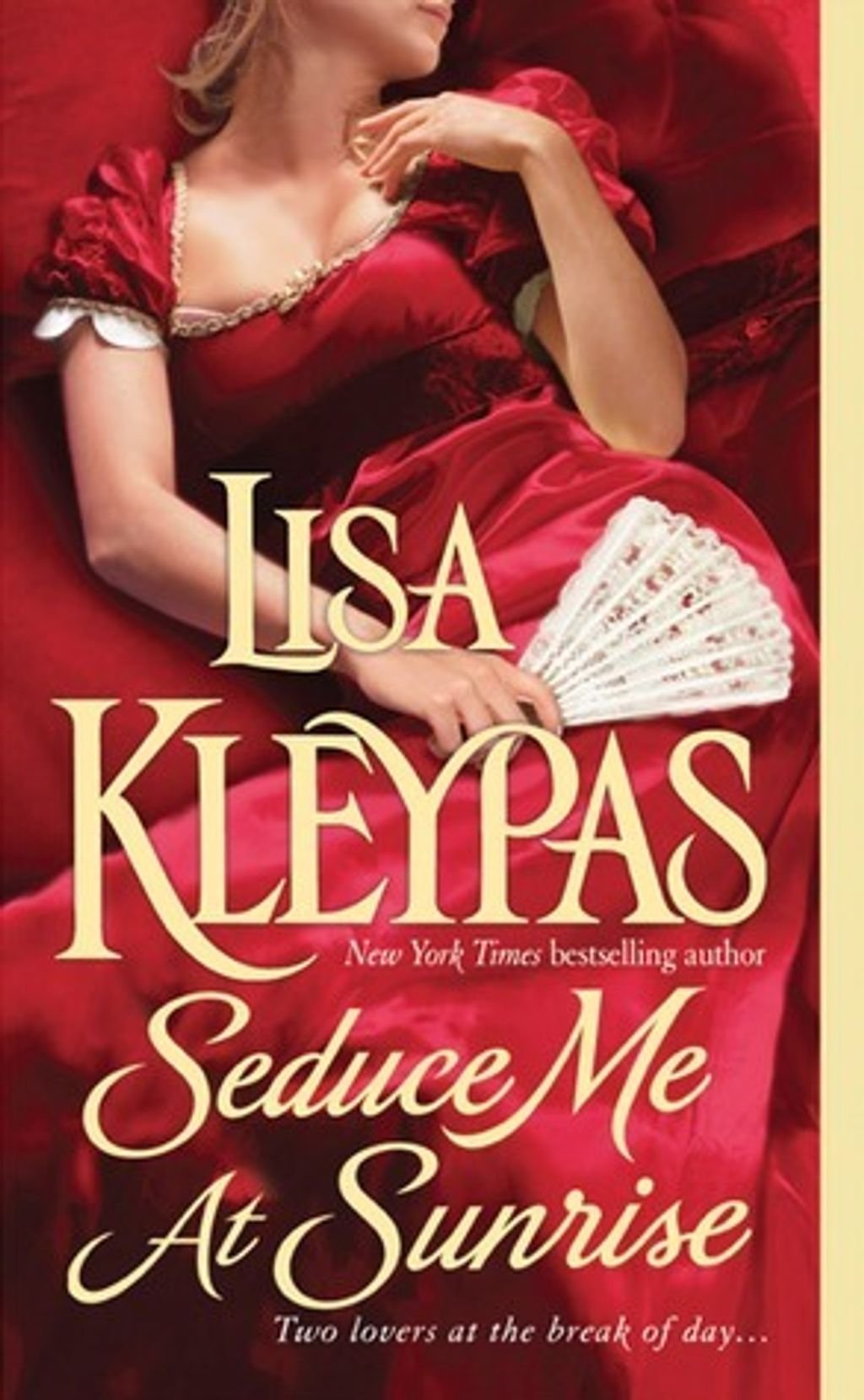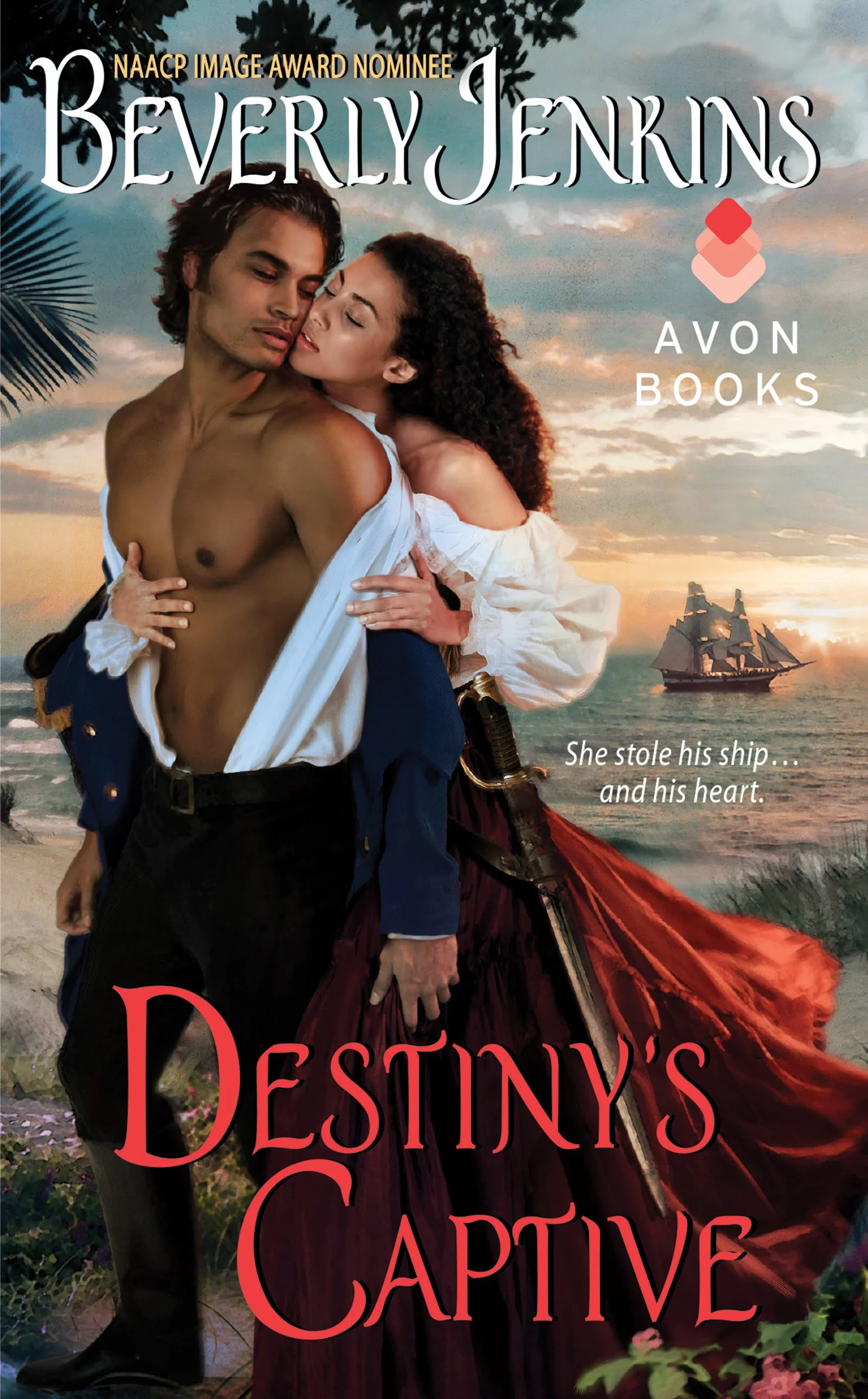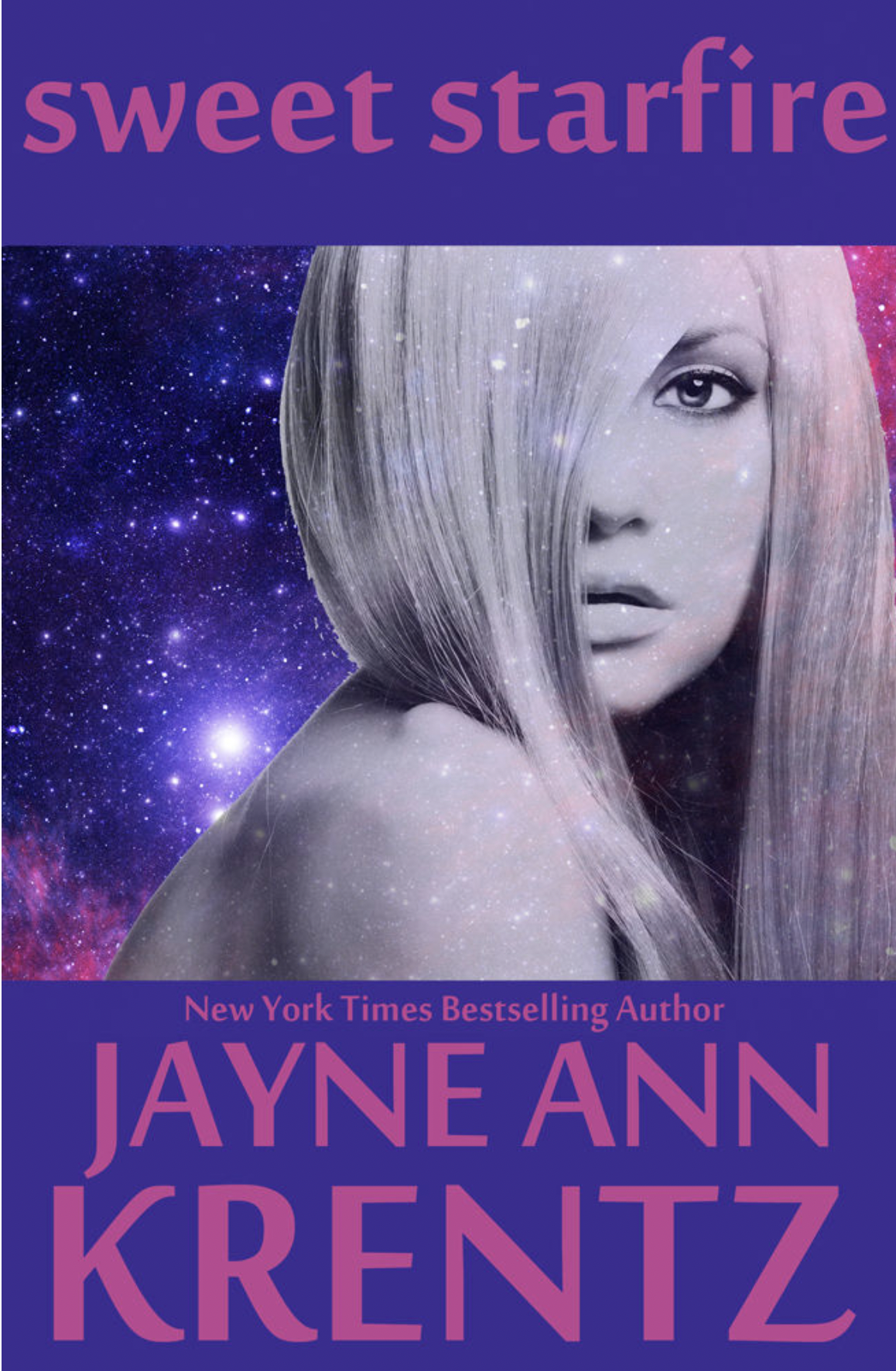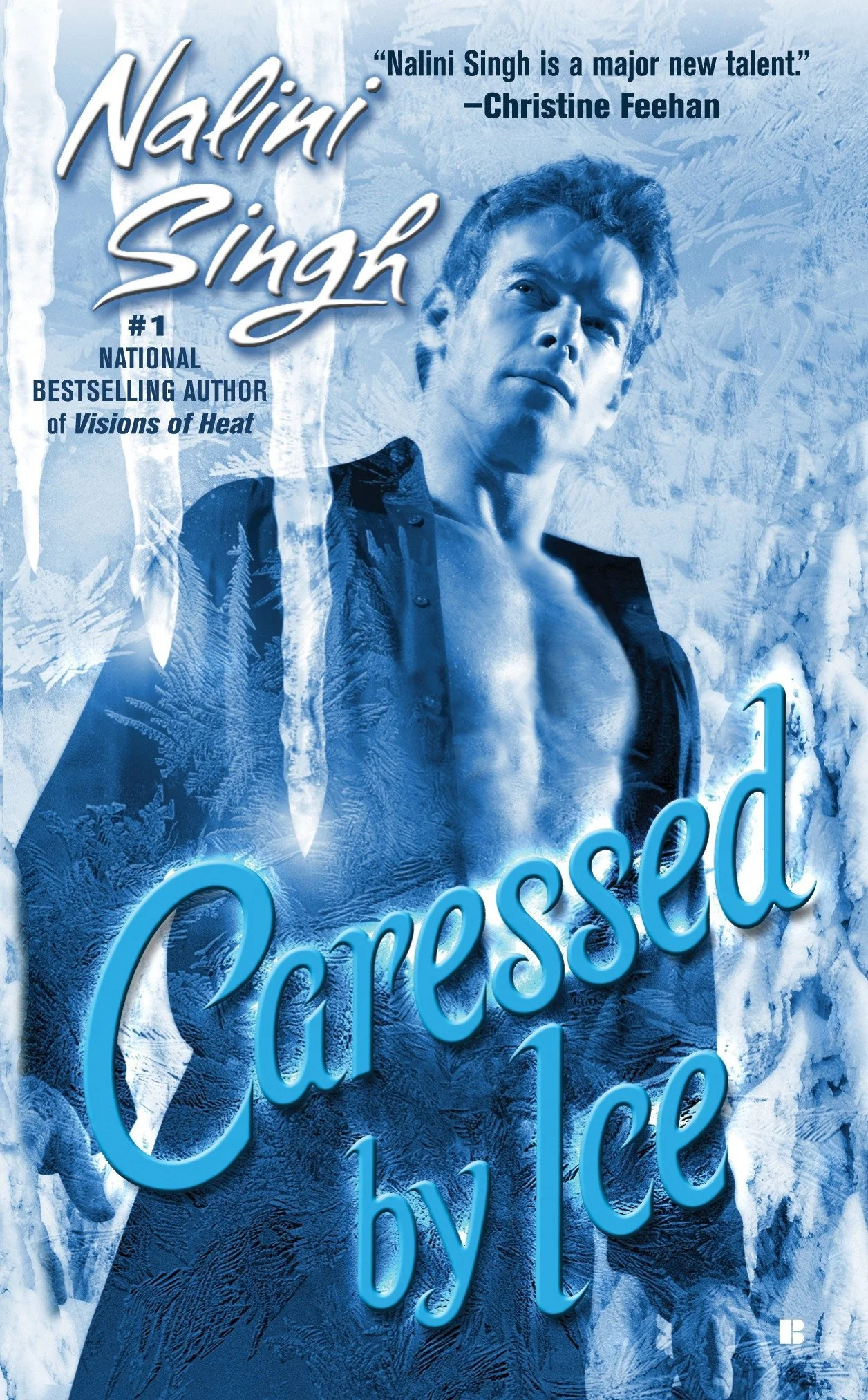S04.37: Groveling
If there isn’t a grovel, is it even a romance? This week, we’re getting to the bottom of one of our favorite moments in a romance novel — the grovel. Love it or hate it, some of the best loved books of the genre go all in on hero (because let’s face it, it’s almost always the hero) on his knees…and we are here. for. it. We talk about the hows and whys of the grovel, about the reasons we love it, about the difference between a grovel and a grand gesture, and about the books that installed this particular button for us.
Groveling Romance Recs
Notes
We love a good grovel here at Fated Mates, and back in 2018, Jen wrote an essay on groveling for #RomBkLove
Merriam Webster is the world’s greatest dictionary.
We don’t come from chimpanzees, but we do have a common ancestor.
If you think a character hasn’t suffered enough, you can leave them in cold storage. You have the power!
Jen did the entire breakdown on Kiss an Angel with Erin & Clayton from Learning the Tropes
We did a deep dive on Milla Vane's A Heart of Blood and Ashes because we love it so much. We also did episodes on Lothaire, Sweet Ruin and The Master. The first five seconds of the Sweet Ruin epsiode are a straight shot of Sarah's joy, if you are looking for that sort of thing.
More about the problem of captive (and presumably lacking telepathic prowess) Tigers in America.
Molly Bloom totally would love a good romance novel, btw.
The American President is a pretty great movie, but it also came out back in 1995 when we some of us were still capable of positive feelings about politicians.
Our next read along is The Dragon and the Jewel by Virginia Henley.
Sponsors
This week’s episode of Fated Mates is sponsored by:
Janna MacGregor, author of Rules for Engaging an Earl, available at
Amazon, Barnes & Noble, Apple Books, Kobo or your local independent bookseller.
Or get the book in Audio wherever audiobooks are sold.
Visit jannamacgregor.com
and
Adriana Herrera, author of A Caribbean Heiress in Paris, available at
Amazon, Barnes & Noble, Apple Books, Kobo or your local independent bookseller.
revA
S04.35: Butterfly Swords by Jeannie Lin: Some Real Hero Sh*t
This week, we’re talking about one of our favorite historical romances, Jeannie Lin’s Butterfly Swords. This is one we’ve mentioned on previous episodes, and discussed at length during Jeannie’s Trailblazer episode, as it is the first own voices Asian-set historical romance.
Aside from setting the standard for adventure romance, it’s also a near-perfect road trip romance with one of the hottest slow burns you’ll ever read. We talk about all of it, including the absolutely devastating first kiss—one that should go down in romance history. TL;DR: We love this book hard.
Thanks to Charlotte Howard, author of Secret Verses, and Mila Finelli, author of Mafia Mistress, for sponsoring the episode. Stay tuned after the episode to hear the first chapter of Mafia Mistress in audio!
Show Notes
This week, we’re reading the debut novel Butterfly Swords by romance trailblazer Jeannie Lin. This is the first book in her Tang Dynasty series.
It’s not too late to see Sarah with Christina and Lauren in Connecticut on May 18th, 2022, or Jen with Christina, Lauren, and Sonali Dev in Naperville on May 19th, 2022.
We’re looking for an artist to draw us a magnificent firebird. Maybe it’s you?
So, it’s classic Jen to get titles wrong. Farewell, my Concubine is a movie, and the third book in the Tang Dynasty series is called My Fair Concubine. But, that’s not Li Tao’s book, either–it’s The Dragon and the Pearl.
We talked about Road Trip romance back in season 1.
Time for an interlude from The Princess Bride.
Our next read along is The Dragon and the Jewel by Virginia Henley, first published in 1991.
Sponsors
This week’s episode of Fated Mates is sponsored by:
Charlotte Howard, author of Secret Verses, available in Kindle Unlimited .
and
Mila Finelli, author of the Kings of Italy Duet
Read Mafia Mistress in Kindle Unlimited or listen wherever audiobooks are sold
S04.34: Celebrity Romance Novels
We’re tackling one of Sarah’s favorite tropes this week — the celebrity romance! We talk about all the ways that her buttons were installed (thanks Judith McNaught) and about how rare movie stars are in romance even now, all these years later. We discuss The Chrises, the appeal of celebrity/normal person pairings, the difference between film/tv romance and rockstar/sports star romance, and about why Americans especially love a celebrity.
Oh, and we get into our own existential despair. Visit fatedmates.net/fatedstates for past episodes of us being Big Mad if you want some inspiration.
Thanks to Avon Books, publishers of Eloisa James’s How to Be a Wallflower for sponsoring the episode. Thanks, also, to Lumi Labs, creators of Microdose Gummies. Visit microdose.com and use code FATEDMATES to get free shipping & 30% off your first order.
Our next read along is Jeannie Lin’s Butterfly Swords. Get it at Amazon, Barnes & Noble, Apple Books, or Kobo.
Show Notes
A leaked memo from The Supreme Court makes clear the fate of Roe V. Wade, and the other civil rights they’re looking to eliminate next. We’ll be reactivating Fated States soon, and you can listen to some of our previous episodes (RBG, bodily autonomy, elda minger) related to these topics. It’s terrifying and feels like its all unraveling, so just fight where you can, remember we’ve been here before, and you should organize in your local community to help others. Check out the Auction for Reproductive Rights being organized by The Meet Cute Book Shop, and donate to an abortion fund near you.
Good Chrises only, please: Hemsworth, Pine, Pang, and Evans. As we say, name is destiny.
We feel bad about it, but both of us thought about the book Perfect after hearing about the shooting on the movie set Rust. Here is a timeline of how Alec Baldwin ended up with a live weapon.
Perfect takes place is some part of Texas where it snows, and Judith McNaught partnered with Coors to raise awareness of and adult literacy.
We love it when Normal people and movie stars get together.
Harry Styles will be on tour later this year, everyone.
I’m not sure why photographers love “the wet suit photoshoot”, but it’s definitely a thing.
If you think you've bought a book before on Amazon, but it's showing you the buy button. Go to Your Content and Devices and search for the book. You can also search your digital orders.
Charlevoix MI is a cute tourist town on the shores of Lake Michigan, which is very big by the way. Unsure about whether or not merpeople live there, but there are lots of shipwrecks.
The final girl is a horror trope.
Our next read along is Butterfly Swords by Jeannie Lin.
Celebrity Romance Novels
Sponsors
This week’s episode of Fated Mates is sponsored by:
Avon Books, publisher of Eloisa James’s How to be a Wallflower, available at
Amazon, Barnes & Noble, Apple Books, Kobo or your local independent bookseller.
Visit avonbooks.com
and
Lumi Labs, creators of Microdose Gummies
Visit microdose.com and use the code FATEDMATES
for 30% off and free shipping on your order
S04.33: Something About You by Julie James: Jack’s A Good Name For A Hero
This week, we’re talking about a beloved contemporary romance, the first in Julie James’s FBI/US Attorney series — Something About You. This one is a fascinating look at a series connected by not the romance standard of friends or families, but by work. Set in Chicago, it contains all the mystery of a romantic suspense without ever straying from the contemporary romance path. The characters are sharp, the writing is clever, the structure is fascinating, and it will likely make you read the rest of the series almost immediately.
Thanks to Avon Books, publisher of Lynsay Sands’s Immortal Rising, and Kelly Cain, author of An Acquired Taste, for sponsoring the episode.
Show Notes
Julie James is the author of 9 books in the FBI/US Attorney series. They are stand alone novels in the world of the Chicago criminal justice system.
The Hyatt Lodge in Oak Brook has a lap pool with lane lines in case you’re into that sort of thing.
The U.S. Attorneys are federal prosecutors and there are 94 districts. Saying out each letter separately “A-U-S-A” is in fact the right way to shorten this title. Jen confirmed it with Erin.
The Peninsula is a fancy hotel in Chicago. Jen is unsure of whether or not it has a lap pool.
After refinishing hardwood floors, you really do need to wait a while before walking on them!
“Taste her blood in her throat” as someone (ahem, Nora Roberts) might say.
You definitely want to see that scene Jen referenced from The Old Guard with Nicky & Joe. Unfortunately, Channing Tatum’s stirring defense of romance in The Lost City is not yet available on YouTube. Watch thisas a placeholder. Or this. You’re welcome.
Christina Lauren is going on a book tour! You can see them with Sarah in Connecticut on May 18th, or in the Chicago suburbs with Jen on May 19th. Join us!
Spiaggia has closed, but it was very fancy in its heyday.
It’s not weird pizza, okay.
Books & Movies Mentioned This Episode
Sponsors
This week’s episode of Fated Mates is sponsored by:
Avon Books, publisher of Lynsay Sands’s Immortal Rising, available at
Amazon, Barnes & Noble, Apple Books, Kobo or your local independent bookseller.
Visit avonbooks.com
and
Kelly Cain, author of An Acquired Taste,
available at Amazon, Barnes & Noble, Apple Books, Kobo or wherever you get your ebooks.
Visit kellycainauthor.com
S04:32: EE Ottoman: Trailblazer
Trailblazer episodes continue this week with EE Ottoman, the first out trans author of romance novels. EE joins us to talk about his journey into romance, about the evolution of trans romance novels, and about the importance of representation in romance. This is a fascinating conversation, and we’re so grateful to EE for joining us to tell his story, and the story of trans romance to date.
An important note: While books by LGBTQ+ authors have been targeted by book bans across the country for decades, the recent bans on books and language around queerness in schools and public spaces make this issue even more pressing. This episode was recorded in the fall of 2021, which is why this specific issue is not a part of our discussion.
Thanks to Kelly Cain, author of An Acquired Taste, and Ava Wixx, author of Virtual Reality Bites, for sponsoring the episode.
Our next read along is Julie James’s Something About You. Get it at Amazon, Barnes & Noble, Apple Books, Kobo, or at your local bookstore.
Show Notes
Welcome EE Ottoman, a romance trailblazer for being the first trans writer to write romance with trans characters. You can watch the RWA video of romance firsts here.
People and publishers mentioned: Less Than 3 Press; We discussed the shifting landscape of LGBTQ bookstores during our trailblazer interview with Radclyffe and Oprah daily has an extensive list of LGBTQ bookstores searchable by state. The zine bookstore in Chicago is called Quimby’s.
EE Ottoman mentioned authors KJ Charles and May Peterson as being especially supportive on his journey through romance, and notes that Carina Press has been several trans romance titles.
Books with queer characters continue to be the target of book banning across the country, and books with trans characters are the most likely to be targeted.
Books Mentioned This Episode
Sponsors
This week’s episode of Fated Mates is sponsored by:
Kelly Cain, author of An Acquired Taste,
available at Amazon, Barnes & Noble, Apple Books, Kobo or wherever you get your ebooks.
Visit kellycainauthor.com
and
Ava Wixx, author of Virtual Reality Bites,
available at Amazon, Apple Books, Kobo, and B&N.
Visit avawixx.com and follow her at @avawixx on Twitter.
S04.31: Vampire Romance Novels
At the request of Instagram, we’re talking Vampires today! We’re doing some deep cuts, returning to Kresley Cole for a minute or two, and then digging into worldbuilding, morality chain, why these books lend themselves to massive series, and ultimately…why we love these big toothy jerks. If you’re a paranormal reader, get your pencils ready — especially if you’re new to it, because we’re taking everyone way back to the beginnings of the subgenre!
Thanks to Kelly Cain, author of An Acquired Taste, and Alyxandra Harvey, author of How to Marry an Earl, for sponsoring the episode.
Our next read along is Julie James’s Something About You. Get it at Amazon, Barnes & Noble, Apple Books, Kobo, or at your local bookstore.
Notes
We’ve talked about vampires on past episodes: Kresley’s IAD vampires (Conrad is our favorite); Dark Lover by JR Ward; and last fall, we had Jenny Nordbak on for a monster interstitial.
If you’re in Brooklyn and looking for a bookstore that carries lots of PNR, try The Bookmark Shoppe.
In film, after 9/11, the rise of the anti/superhero to reconcile America's participation in a war. After the economic downturn, it was the rise of zombies to justify the way America was leaving poor people behind. And in this TikTok by Virgolikebeyonce, she suggests we're about to see media that reconciles our obsession with work/capitalism. We at FM have been noting a rise of the regular, blue-collar hero, which would track with this.
A hegemony explainer.
Tessa Bailey hit #1 on both the USAToday and New York Times bestseller lists with Hook, Line, and Sinker.
The Sherilyn Kenyon situation is truly weird.
Even eBooks can go out of print, for example, The Faustian Brothers series by Evie Byrne.
Our next read along is Something About You by Julie James.
Vampire Romances
Vampire TV Shows
Sponsors
This week’s episode of Fated Mates is sponsored by:
Kelly Cain, author of An Acquired Taste,
available at Amazon, Barnes & Noble, Apple Books, Kobo or wherever you get your ebooks.
Visit kellycainauthor.com
and
Alyxandra Harvey, author of How to Marry an Earl,
available at Amazon.
Visit alyxandraharvey.com
S04.30: Her Night With the Duke by Diana Quincy
This week, we’re talking about one of Sarah’s favorite recent historicals, Diana Quincy’s beautiful Her Night With the Duke, which was on our 2020 Best Romance of the Year list. This one fires on many cylinders, and the conversation it inspired covers a lot of ground. We talk about how you won’t get a better Bridgerton read-alike than this one, about the third-act breakup, why it works and the work it does in a romance, about why widows are allowed to be sexy, about responsibility and aristocracy, about hot golf, and about how modern historicals are really doing the business.
Thanks to Avon Books, publisher of Eva Leigh’s The Good Girl’s Guide to Rakes, and Kelly Cain, author of An Acquired Taste, for sponsoring the episode.
Our next read along is Julie James’s Something About You. Get it at Amazon, Barnes & Noble, Apple Books, Kobo, or at your local bookstore.
Show Notes
Diana Quincy has written many romance novels, and she also published Regency era mysteries under the name D.M. Quincy. You can find information about her books on her website, on twitter, or on Instagram.
Her Night with the Duke was one of our best of 2020 romances.
Leela taking her knife to her evil brother-in-law's face was just as satisfying as this great scene with Inigo Montoya from The Princess Bride.
Here's a brief overview of the history of the Arab community in Manchester, England.
Craft in the Real World by Matthew Salesses dives into storytelling around the world, makes the case that conflict-driven plots are not universal and advocates for making diverse storytelling traditions welcome in literary spaces. This essay from LitHub is a good primer to his argument.
The Clandestine Affairs Series by Diana Quincy
Sponsors
This week’s episode of Fated Mates is sponsored by:
Avon Books, publisher of Eva Leigh’s The Good Girls Guide to Rakes, available at
Amazon, Barnes & Noble, Apple Books, Kobo or your local independent bookseller.
Visit avonbooks.com
and
Kelly Cain, author of An Acquired Taste,
available at Amazon, Barnes & Noble, Apple Books, Kobo or wherever you get your ebooks.
Visit kellycainauthor.com
S04.29: Nora Roberts: Trailblazer
The Trailblazer episodes continue this week with the Queen herself! Nora Roberts joins us today to talk about her longstanding career in romance—from her extremely relatable roots as a mom going mad in a snowstorm, to her deep rooted work ethic, to the plagiarism that rocked the publishing world. We talk about her place in the romance pantheon, about the reasons she thinks her books are so beloved, and about that one time her publisher called to tell her she was writing too much.
It was an absolute pleasure to have Nora Roberts personally explain things to us; we’re beyond grateful to her for making time for Fated Mates.
For more Nora Roberts content, Listen to our Born in Ice deep dive episode from Season 2!
Full transcription now available.
Thanks to Piper Rayne, authors of Sneaking Around With #34, and Kenya Goree-Bell, author of California Love, for sponsoring the episode.
Our next read along is Diana Quincy’s Her Night With the Duke, which was on our Best of 2020 year-end list! Get it at Amazon, Barnes & Noble, Apple Books, Kobo, or at your local bookstore. You can also get it in audio from our partner, Chirp Books!
Show Notes
We are thrilled to have Nora Roberts on the podcast today. Take a moment to read this 2009 New Yorker profile about Nora and her career. This 1982 article from the Washington Post, Sharpsburg Writer Turning Romance into Profits, is one of the earliest mentions of her career in the mainstream media.
Nora’s bookstore Turn the Page is located in Boonsboro, Maryland. She hosts a community of readers at her website Fall into the Story, which includes a definitive list of things Eve and Roarke will never do.
Nora Roberts is a staunch defender of writers who have been victims of plagiarism, starting in 1997 when Janet Dailey stole from several of her books. In December 1997, Romantic Times wrote about the plagiarism scandal, and the previous month there were several letters to the editor from romance readers. More recently, Nora sued a Brazilian writer who plagiarized the work of more than 40 romance novelists authors.
Nora Roberts took some time to explain the process to Debra.
Listen to our deep dive episode of Nora Roberts's Born in Ice.
Authors mentioned: Violet Winspear, Anne Mather, Phyllis Whitney, Victoria Holt, Mary Stewart, Janet Dailey, Kathleen E. Woodiwiss, Rosemary Rodgers, Ruth Langan, Dixie Browning, Patricia Gaffney, Mary Kay McComas, Elaine Fox, Mary Blayney.
Other people on Nora's team: Publisher Phyllis Grann, Silhouette editor Nancy Jackson, agent Amy Berkower, editor Isabel Swift, editor Leslie Gelbman, and publicist Laura Reeth.
Books Mentioned This Episode
Sponsors
This week’s episode of Fated Mates is sponsored by:
Piper Rayne, authors of Sneaking Around With #34,
available free at Amazon, Apple Books, Kobo & Nook or wherever you get your ebooks, and
in audio at Audible, Apple, Chirp Books and wherever you get your audiobooks.
Get signed books from Piper Rayne’s Etsy shop!
Visit piperrayne.com
and
Kenya Goree-Bell, author of California Love, available free in KU.
Follow Kenya on Instagram; Visit kenyagoreebell.com
S04.28: Boss/Assistant Romance
We’re on a roll delivering interstitials about all our very favorite wild tropes, and this week we’re tackling boss/assistant romances! We’ll unpack the problematic bits, discuss the book that installed these deeply troubling buttons in us both, and fill your TBR pile to overflowing. Get your wallets and library cards ready!
Thanks to Avon Books, publisher of Nisha Sharma’s Dating Dr. Dil, and Piper Rayne, authors of Lessons From a One Night Stand for sponsoring the episode.
Next week, we’ve got a trailblazer episode! Our next read along is Diana Quincy’s Her Night With the Duke, which was on our Best of 2020 year-end list! Get it at Amazon, Barnes & Noble, Apple Books, Kobo, or at your local bookstore. You can also get it in audio from our partner, Chirp Books!
Boss / Assistant Romances
Notes
The Scholastic Inc. succession drama is honestly deserving of it's own Netflix series. Learn more about it from The Wall Street Journal, the New York Times and Vanity Fair. Publishing loves drama but this is honestly almost too much.
If you're not receiving the Bookbub daily romance deal emails, you should be. Follow Fated Mates while you're there!
Killing the dog is a very bold writing choice.
Harlequin Blaze was a high heat category romance line from Harlequin that published monthly romances from 2001 to 2017. It was replaced with Harlequin Dare, a high-heat digital line.
Mystic Pizza remains a pure problematic fave here at Fated Mates, but we will always stan pouring fish bait in your rich boyfriend's Porsche. He should have told you he had a sister, Kat.
Sponsors
This week’s episode of Fated Mates is sponsored by:
Avon Books, publisher of Nisha Sharma’s Dating Dr. Dil, available at
Amazon, Barnes & Noble, Apple Books, Kobo or your local independent bookseller.
Visit avonbooks.com
and
Piper Rayne, authors of Lessons from a One-Night Stand,
available free at Amazon, Apple Books, Kobo & Nook or wherever you get your ebooks, and
in audio at Audible, Apple, Chirp Books and wherever you get your audiobooks.
Visit piperrayne.com
S04.27: Nine Questions about Nine Rules
It’s a Very Special Episode™️ of Fated Mates today, celebrating the rerelease of Sarah’s first book, Nine Rules to Break When Romancing a Rake! We talk about the book that started Sarah’s romance career, about why it still resonates, about new covers during a pandemic, and yes…we get to the bottom of the age old question: Will Benedick Ever Get a Book?
You can buy the new Nine Rules at Amazon, Barnes & Noble, Bookshop, and get signed copies at WORD.
This episode is sponsored by Adriana Herrera, author of The Duke Makes Me Feel and The Romancelandia Shop.
Our read along next week is Diana Quincy’s Her Night With the Duke, which was on our Best of 2020 year-end list! Get it at Amazon, Barnes & Noble, Apple Books, Kobo, or at your local bookstore. You can also get it in audio from Chirp Books!
Show Notes
This tweet about Car Talk made Jen laugh. It really was the greatest NPR show of all time, and since they are no dummies, they have in fact made it into a podcast.
Buy the books with stepbacks now, because we aren’t sure how long they are going to last. Lots of folks participate in #StepbackSaturday on Twitter and Instagram to share their favorites.
Sarah's agent at the time was Alyssa Eisner-Henkin, who is still a great YA and children's agent!
Sarah's editor is still Carrie Feron, who has edited romance for her entire career. Authors she has edited include Lisa Kleypas, Susan Elizabeth Phillips, Sally Thorne, Jude Deveraux, Elizabeth Lowell and Eloisa James.
The name of the documentary about romance is called Love Beneath the Covers (2016), which is a fascinating look at the romance genre.
Where's My Hero is a romance anthology that featured some of the good guys, and it's available in eBook and print.
Sponsors
This week’s episode of Fated Mates is sponsored by:
Adriana Herrera, author of The Duke Makes Me Feel, available at
Amazon, Barnes & Noble, or Kobo
Visit Adriana at adrianaherreraromance.com
and
The Romancelandia Shop, where romance lovers can find stickers, pins, notecards and more.
Use the code FATEDMATES at checkout for a free Fated Mates sticker!
S04.26: Jeannie Lin: Trailblazer
Our Trailblazer episodes continue this week with Jeannie Lin, one of the first authors to write historical romance featuring Asian characters set in Asia. Her debut romance, Butterfly Swords, is set in Tang Dynasty China.
In this episode, we talk about the craft of romance, about preparing for and resisting rejection while finding her own path to publication, about how she honed her storytelling, and about the way cultural archetypes find their way to the page. We also talk about the lightning fast changes in romance over the last twelve years. Thank you to Jeannie Lin for making time for Fated Mates.
This episode is sponsored by The Steam Box (use code FATEDMATES for 10% off) and Chirp Audiobooks.
Next week, we’re talking Sarah’s Nine Rules to Break When Romancing a Rake, which will release March 22 in a new trade paperback format. After that, our next read along is Diana Quincy’s Her Night With the Duke, which was on our Best of 2020 year-end list! Get it at Amazon, Barnes & Noble, Apple Books, Kobo, or at your local bookstore. You can also get it in audio from our partner, Chirp Books!
Show Notes
This week, we welcome romance author Jeannie Lin, whose newest book in the Lotus Palace Mysteries series, Red Blossom in Snow, comes out next week on March 21, 2022.
Hear us talk about Jeannie Lin's books on our 2020 Best of the Year episode, our Road Trip Interstitial, and our So You Want to Read a Historical episode.
The Tang Dynasty lasted from 618-907, and Empress Wu reigned from 624-705.
RWA's Golden Heart Award was phased out in 2019.
Twitter was launched in 2006 and Goodreads in 2007. Goodreads was acquired by Amazon in 2013. Borders Books closed in 2011.
People mentioned: author Jade Lee, who also writes as Kathy Lyons; author Barbara Ankrum; author Shawntell Madison; author Amanda Berry; author Bria Quinlan; author Eden Bradley of Romance Divas forum; author Kate Pearce; actor Tony Leung; Piatkus editor Anna Boatman; agent Gail Fortune.
Books Mentioned this Episode
Sponsors
This week’s episode of Fated Mates is sponsored by:
The Steam Box, a quarterly subscription book box that includes romance novels,
goodies, and toys to help you embrace your sexuality and promote self-love..
Fated Mates listeners get 10% off with code FATEDMATES.
and
Chirp Audiobooks, amazing limited-time deals on select digital audiobooks
and great everyday pricing on everything else—no subscription needed.
Visit Chirp Books to check out all their audiobook deals.
Jeannie Lin 00:00:00 / #: Romance is probably the fastest to change. It's the most reactive, I think, of all the genres. One, because we write so fast. We as a collective, I myself do not write that fast. But, people will speak negatively about writing to market. But, it's not so cut and dry. It's a conversation. Romance as a genre is more of a conversation because it moves so fast and so fluidly and so many people do it. It's hard to put your finger on it, again, that giant nebulous ball.
Sarah MacLean 00:00:32 / #: That was the voice of Jeannie Lin.
Jennifer Prokop 00:00:35 / #: Welcome to Faded Mates everyone.
Sarah MacLean 00:00:37 / #: I'm Sarah MacLean. I read romance novels and I write them.
Jennifer Prokop 00:00:41 / #: And I'm Jennifer Prokop, a romance reader and editor. Jeannie Lin is an amazing romance author and we were really excited to talk to her as a trailblazer for what we consider... Historical romance often gets really pigeonholed into being 19th century European. And obviously, I don't know when this is airing, we will be talking to some other romance authors who were blazing trails in different ways.
00:01:08 / #: But we were really excited to talk to Jeannie because she opened up the door to historical romance set in Asia, but not during the 19th century. So, her first book, Butterfly Swords, and many of her books were set during Tang Dynasty China, which is around 700, 800 AD. We asked her some questions about why she was interested in that time period. And talk about how once somebody goes down an interesting path, and readers love it, other authors can see a path for themselves. She is really fun, engaging. She has great stories.
Sarah MacLean 00:01:49 / #: Great interview.
Jennifer Prokop 00:01:51 / #: It's a great interview and we think that you are going to really enjoy hearing Jeannie's past romance.
Sarah MacLean 00:01:56 / #: One thing that didn't come up in the conversation, and I want to just say before we start is that, as much as we love Butterfly Swords and have talked about it on multiple interstitials, we put Hidden Moon, the most recent in her Lotus Palace series, on the 2020 Best of the Year list from Faded Mates. So we're renowned, devout-
Jennifer Prokop 00:02:15 / #: Jeannie Lin fans.
Sarah MacLean 00:02:16 / #: ... Jeannie Lin fans here at Faded Mates, and we can't wait for you to spend a little time with her. It was a real delight. Jeannie, welcome. We're so excited to have you.
Jeannie Lin 00:02:29 / #: I'm really excited to be here. I've been listening and so this is a geeky girl fan moment for me.
Jennifer Prokop 00:02:36 / #: Awe.
Sarah MacLean 00:02:37 / #: Well, thank you. It's a geeky girl fan moment for us because I was thinking that, I think the first time we talked about a Jeannie Lin book on Faded Mates was the third or fourth interstitial when we did road trips.
Jennifer Prokop 00:02:50 / #: Road trips, yes.
Jeannie Lin 00:02:52 / #: Oh, wow. Wow. I've never heard one where you mentioned me. So I think that's... That's probably lucky.
Sarah MacLean 00:02:58 / #: Maybe that's best. I feel like I can't listen to podcasts where people talk about my books, so... I never-
Jennifer Prokop 00:03:04 / #: Better to just-
Sarah MacLean 00:03:05 / #: No, we said nice things. But you don't have to-
Jennifer Prokop 00:03:08 / #: Exactly.
Sarah MacLean 00:03:09 / #: We almost exclusively say nice things. We don't recommend books that we don't love.
Jeannie Lin 00:03:14 / #: I actually had a funny moment when a person from my real life, a person for my real life was like, "Oh, do you listen to Faded Mates? Because they mentioned you." And I was like, "I do listen, but not... I never... Was that mentioned?"
Sarah MacLean 00:03:29 / #: Well, now we're really going to mention you because you're joining us as one of our trailblazers for the season, and we are so excited to have you.
Jeannie Lin 00:03:36 / #: Thank you. I'm excited to be here.
Sarah MacLean 00:03:40 / #: One of the reasons that we were really interested in talking to you is because we're always looking for people who are doing things that are new and different. And we've talked to people that have been around in romance for a long time. But in 2010 when you published Butterfly Swords, although there had been a book by Jade Lee that had a Chinese heroine, which was set in Shanghai, but in the 19th century. But we are really interested in talking to you because you are so... I think blew off the doors of historical romance by choosing a different time and place than that regular, what I think a lot of readers have been taught to understand about historical romance, which is, it's white characters, in London, in the 19th century.
Jeannie Lin 00:04:25 / #: People didn't fall in love before 1800. Never.
Sarah MacLean 00:04:29 / #: That's just a little backstory maybe for our audience, but we'd love to hear about your path through romance and in writing those books.
Jeannie Lin 00:04:38 / #: Yeah. And it's really good that you mentioned Jade Lee because I was a fan of that series before I ever thought of ever writing a romance at all. And I actually found Jade Lee because I was on a road trip. And this is paper book. The time of paper books. I was on a road trip and I stopped in some... I visit bookstores when I go on road trips. I stopped in a bookstore and I found her book and I was amazed. I had only read the romances that I had been introduced to by my best friend and her mom. And I was like, "Oh my gosh, there are romances set in China." And most of the books were one Caucasian character and then one Asian character, one Chinese character. And then there was actually one book in the series... Stop Me, I'm going to geek out too much, so I'll-
Sarah MacLean 00:05:31 / #: No. That why you're here.
Jennifer Prokop 00:05:32 / #: One of us.
Jeannie Lin 00:05:35 / #: There's one book in the series where it was Chinese, both characters. So it was a Chinese couple. But, it was set in Shanghai, like you said, and I was just amazed and just... I don't know, thrilled to see something different. But on top of that, I also was a big historical romance reader from the 90s era where, I think there were a lot more settings. It was sort of the, "Exotic," settings-
Sarah MacLean 00:06:06 / #: Yes.
Jeannie Lin 00:06:06 / #: ... were more popular then. So it was the idea of, "Oh, historical romances will whisk you away into a different setting, Vikings and Russia." And I know that those are European settings still. But still a little bit more exotic. And I felt that that's where I kind of got my roots of romance reading is in that era of historical romance. And so I always wanted to be whisked away. I wanted to travel somewhere when I read. And that's when I think, I almost feel like in some ways my romances are a throwback, even though people are saying like, "Oh, it's new." Nothing's new. What's old is new again, kind of thing. But that was where I was coming from, as a fan of the historical romance genre and a fan specifically of Jade Lee. And so at one point, I was teaching high school at the time. And teaching high school is probably one of the most emotionally taxing-
Jennifer Prokop 00:07:10 / #: I teach middle school, so I know what you're talking about.
Jeannie Lin 00:07:12 / #: Yeah. So it's like, you're so committed. Your head is always teaching. You're always with your students even when you're not there, even when you're not grading. And there was one point when I was working the summer to prepare for a whole new program, for at risk. I taught in South Central. So it was high risk and low performing schools, urban. And so, on the second day of school, when starting this program, all of a sudden I broke down afterwards and I cried. I was so tired, I was so done. And I was like, "Oh my gosh, it's day two." Usually I get a couple months in before I cry. And I was like, "I can't do this. This is the beginning of the school year." And my friend was like, "You need to do something for you." I had spent the whole summer teaching and preparing for this small school. And she was like, "You got to do something for you."
00:08:10 / #: And that's when I was like, "Well, I've always wanted to write. I've always wanted to write. And I've always..." You write in your notebook, all throughout my high school years and things like that, I would write little stories that I never intended to show anybody. I showed it to my little sister. And that's about it. And then, so I was like, "Okay, okay, that's the one thing I want to do. Well, I'll try doing that." So I looked for classes on... Because that's me. If you want to learn how to do something, find a class on it. I'm such a student.
Jennifer Prokop 00:08:40 / #: Well, that's the teacher thing.
Jeannie Lin 00:08:41 / #: Yeah, yeah. I laugh, because there was a time when I couldn't, I was very nervous speaking. So I went to the library and looked up like, "How to public speak?" Because that's how I do things. So I looked up how to write romance and there was a UCLA extension class taught by Barbara Ankrum.
Jennifer Prokop 00:09:02 / #: Oh, my gosh. How cool.
Jeannie Lin 00:09:03 / #: And I was like, "Okay, okay, this sounds really great. You can take it at night." So I could take it at night after teaching all day. And then I hadn't read her before. So my sister, who was actually in an MFA program. My sister was much more on the path of becoming a professional writer, a bonafide writer way before me. And then she's like, "Well, read one of her books. See if you trust her. See if you can trust her." And I went to the library. I went to the bookstore. I found a couple Barbara Ankrum books, and I was reading them and I was like, "Oh my gosh."
00:09:36 / #: I was crying. I love the books that make you feel that hitch in your chest and you're like... Rings you out. I read romance to actually cry. So good. And she gave me that feeling, I just, all the tension, the emotional tension was so good. So I was like, "Okay, I think this is who I want to learn from." But I was telling my sister, I was like, "I don't think I will ever write emotional tension this well." Because I know I had done these fun little fantasy writings and that was my thing. I didn't feel like my characters were gripping the way Barbara's characters were gripping. And my sister told me something that still sticks with me. She said, "That's not her first draft." So I was like, "Oh."
Jennifer Prokop 00:10:19 / #: That's such a good piece of advice. Oh my gosh.
Jeannie Lin 00:10:23 / #: Just to give you an idea about how-
Jennifer Prokop 00:10:25 / #: Gosh, that's transformational, that moment.
Jeannie Lin 00:10:27 / #: Further advanced my sister was and how a green writer I was, because I was like, "You write something once for fun and you just leave it. You never come back to it."
Jennifer Prokop 00:10:36 / #: Yeah.
Jeannie Lin 00:10:36 / #: It's in your notebook. And I just thought good writers stumbled upon it or were talented or just, they had something that I didn't. But I was like, "Oh, funny that." And so, I took this class. And again, never intending to ever show this book to anyone. I took the class just for fun. Because I was dying-
Jennifer Prokop 00:10:59 / #: Sure. So stressed out at work.
Jeannie Lin 00:11:02 / #: And as I was taking it... Well, right before I took it, my former brother-in-Law, her then fiance, he was also in an MFA program. And he said, "Let me give you some advice." And again, I'm totally green. He's like, "Think about what you want to write, because you're going to go in there and then the first day they're going to say, what do you want to write? And they're going to go around the room and everyone's going to say what they're working on, and then you're not going to have any idea and you're going to freak out. And that's why I ended up writing about nuns for the last two years." And I was like, "Okay."
Jennifer Prokop 00:11:33 / #: That was the first thing that came to his mind first, nuns.
Jeannie Lin 00:11:36 / #: Nuns. Well, he went to Catholic school, so he's like, "Oh, nuns." And then, so I was like, "Okay, okay." And again, I'm hearing this totally green and I think I'm like, "I'll think of some ideas. I'll think of some ideas." And I go to the class and of course, first day, what are you writing? And I was like, "Oh my God, he was right." And so I was like, "Oh, I have this idea. It's a fantasy romance." Because I'd only written fantasy. And it's Western Romance and Eastern Romance. Kind of an east meets west. These warriors, white warriors go to an Asian, Chinese based land and they meet a princess. They get involved in a war. And I'm talking through all this, and I'm sure everyone in that class was like, "This kid. This is the kitchen sink." Oh and there's sword fights.
00:12:27 / #: So I'm saying this. And they didn't laugh at me. They were very welcoming. And I also said in that same class, "Oh, I just started reading Nora Roberts. She's pretty good." Yeah, so I'm sure at that point the class was like, "This kid." But I stuck with it. And from that class, I met some people who wanted to continue after the class. And so we started meeting with Barbara as a mentorship. It was a guided critique. So she was still a teacher, guided mentor to us for the next year. And that was really what started me on the path-
Sarah MacLean 00:13:06 / #: That's amazing.
Jeannie Lin 00:13:06 / #: ... of wanting to get serious with this.
Jennifer Prokop 00:13:08 / #: How many other... So you were all writing romance at the same time? You were all romance writers?
Jeannie Lin 00:13:14 / #: Yes, yes. So it was specifically a romance class. Because I knew when I said I wanted to write, "I was like, I want to write romance. That's what I read. That's what I love."
Jennifer Prokop 00:13:21 / #: Yeah, yeah. Yeah.
Jeannie Lin 00:13:23 / #: And so we were all pre-published, I guess, or unpublished and at various levels, me probably being the most green. As in I had just discovered Nora Roberts, even though I had read romance for years. I just-
Sarah MacLean 00:13:36 / #: Sure. Everyone has that author they've just never explored.
Jeannie Lin 00:13:39 / #: My best friend's mom didn't read Nora Roberts. She was Jayne Krentz like Joanna Lindsay, but there was no Nora Roberts. So I go into this room, I'm like, "I've discovered this author."
Jennifer Prokop 00:13:51 / #: Oh my God, that's amazing. I love it.
Sarah MacLean 00:13:53 / #: So I want to talk about this group of people. Did you stick... Did you stay with them for many years or was it just the year?
Jeannie Lin 00:14:03 / #: Just a year. And most of them went to my wedding. We were really close.
Sarah MacLean 00:14:08 / #: Yeah.
Jeannie Lin 00:14:08 / #: But I ended up moving a couple years after that. So before I was published, I moved away. But, and one of them has passed away. We kind of went through life things together and we've drifted apart. I still keep in touch definitely with Barbara, though. I still consider her like... I learned everything I needed to know kind of thing. Well, no. That's not true, because I keep on learning. But she really set me on the path.
Sarah MacLean 00:14:37 / #: So, the reason why I asked about them is because I'm really curious always about the way that we build our communities as writers. And so I'm curious, when you moved, as your career has moved, do you have a new community? Do you feel there are people who helped you along the way in really powerful ways? Aside from Barbara, or in addition to Barbara?
Jeannie Lin 00:15:02 / #: Absolutely. Yeah, absolutely. The first thing I did when I moved to St. Louis was I found the local romance writing group. And I actually knew some people from online on there already, Celia Carson. Right now, my little circle, it's still the same circle I formed right when I moved. It's Celia, Carson and Chantelle Madison, Amanda Berry, Bria Quinlan. So it's like those people have really... There's some people I interact with more online, but there's that close core group and they just get me through. Sometimes they get me through the day.
Sarah MacLean 00:15:39 / #: Yeah.
Jeannie Lin 00:15:40 / #: Sometimes they get me through the book. Sometimes they get me through the whole year of you have newborn children and you have a book that's due and-
Jennifer Prokop 00:15:54 / #: That's rough.
Sarah MacLean 00:15:54 / #: Right, right.
Jeannie Lin 00:15:54 / #: But yeah. That's really... I don't think I could write alone. I've always been... I need a group of people and we keep each other. Even, we all write different things, but we keep each other going. Sometimes it's at the level of critique, but sometimes it's just at the level of emotional support in the sounding board.
Sarah MacLean 00:16:13 / #: It is such a lonely job for a lot of people. I mean, I know some people like it, just to sit alone in their room. But, so community becomes so vital. So was that first book that you're talking about, the book that you started that ultimately became Butterfly Swords?
Jeannie Lin 00:16:29 / #: Yeah. Well, there's the unpublished prequel of which I've never been able to... One day, I'll get it somewhere and just... But yeah, there was a first book. And then I took a long time, took over I think almost two years to finally finish that first book. And it had all those great things I talked about, the sword fights and the princesses. But then at some point I made a decision. I was like, "Okay, I don't have to make it fantasy. I'll make it China. I'll make it Tang Dynasty China." Which is what I was basing my fantasy world on, and I'll just keep on going from there because Joanna Lindsay would... She always had like, "Oh, there's this imaginary European country."
Sarah MacLean 00:17:10 / #: Sure, why not?
Jeannie Lin 00:17:12 / #: So I was like, "Okay, so these guys come from an imaginary European country that made it to China." And I'm just going to go with it. I had no idea.
Sarah MacLean 00:17:20 / #: Listen, I love that. I love it.
Jeannie Lin 00:17:22 / #: I knew nothing.
Jennifer Prokop 00:17:23 / #: Well, and then-
Sarah MacLean 00:17:24 / #: You did. But you knew so much because you were a romance reader. I think that's the thing, is the conventions are so different for us.
Jeannie Lin 00:17:31 / #: Yeah, I would say the secret to, "Success," the secret to actually getting this to work, was having no clue. And because having no clue, I had no fear.
Sarah MacLean 00:17:42 / #: Yes. Yes.
Jeannie Lin 00:17:43 / #: I just... Let's just do it. Why not?
Sarah MacLean 00:17:46 / #: Yeah.
Jeannie Lin 00:17:47 / #: And then so that first book, yeah, I cobbled it together. But at the end, there was actually a story there. I was amazed. I was like, "Okay, it's not great, but there's a story." I didn't know it wasn't great either, by the way. I didn't know that.
Sarah MacLean 00:17:58 / #: Awe, well.
Jeannie Lin 00:18:03 / #: And by then I had been reading advice from other places. I had finally joined RWA and Jessica Faus said, "You finished your first book, start querying it, and then start your second book. Why are you just waiting?" So I'm like, "Okay." I was querying that first book, and I just started that second book. And so, that second book is what Butterfly Swords was. And it was just being in that group. As soon as we all started our second books, I was amazed because I couldn't tell that my writing had changed that much, but seeing everybody else's writing, I was like, "Oh my gosh." It's all of a sudden from book one, the end, to starting book two, everyone grew so much. I can feel it, I can hear it, I can see it. And I was hoping the same was true of my book because I couldn't see it in me.
Sarah MacLean 00:18:51 / #: That's interesting.
Jeannie Lin 00:18:51 / #: But yeah, Butterfly Swords was always a book two. And I think if you read it, you'll see there's some characters and things in a backstory that was supposed to already be established.
Sarah MacLean 00:19:00 / #: I have a question just about how you decided to write about the Tang Dynasty. Was that just of personal interest to you? Or, so you were happy to be researching? Or... Because it's such a specific... I mean, any number of dynasties you could have chosen during Chinese history?
Jeannie Lin 00:19:17 / #: Well, the Tang Dynasty is one where women... And again, this is relatively speaking. Women had a measure of independence. Women reached high levels of government. There was an empress during a small portion of the Tang. Not an empress, she actually became emperor. She was considered the emperor. Empress Wu. And so, on top of that, just even at the lower levels, women could seek divorce, women could sue for property. There were some basic things there. Overall, women's rights, they were definitely a lower class, but even those little points would give women a little bit more agency. So I was always attracted to that period. If you are a fan of Chinese history, it's one of the periods that's a golden era. So that was another thing that drew me to it. And then, as any historical fan will tell you the clothes were really, really nice.
Jennifer Prokop 00:20:15 / #: That's awesome.
Jeannie Lin 00:20:19 / #: The clothes and the hair and everything were really... The aesthetic, the Tang Dynasty aesthetic is really attractive to. And so all those things. I didn't do a lot of research until I kind of like, "Okay, now I've made a decision. This is not historical, or this is not fantasy romance. This is going to be historical romance." And I started researching a lot, reading everything and joining historical groups and just starting to absorb as much as I could to start to world build.
Sarah MacLean 00:20:53 / #: This episode of Faded Mates is sponsored by the Steam Box. The Steam Box is a romance book subscription service that features books written by authors from marginalized communities and underrepresented groups. Books are paired with items that celebrate self-love and embrace one's individual sexuality.
Jennifer Prokop 00:21:11 / #: Sarah, I could not be more thrilled about this.
Sarah MacLean 00:21:13 / #: Listen, I could get hard behind one of these boxes.
Jennifer Prokop 00:21:17 / #: I think as a matter of fact, old school romance readers like us remember the joy of getting romance novels in the mail every month, but now they come with vibrators.
Sarah MacLean 00:21:26 / #: Look, that's how you know are evolving in the right direction.
Jennifer Prokop 00:21:31 / #: Absolutely. This is a really cool company. The founder's name is Melissa Gill, and she donates 5% of each box's profits to an organization in the first year of business. The Steam Box donated to Lilith Fund, Families Belonging Together, the National Network to End Domestic Violence and Trans Women of Color Collective.
Sarah MacLean 00:21:50 / #: So you can know that when you subscribe to Steam Box, you're doing well as well as reading well and maybe feeling well. I was lurking on the Steam Box's Instagram feed this morning and the Winter Box, aside from having a bunch of great books in it, also had a face mask and a candle and soaps and a vibrator in the shape of a rosebud so you could get it done beautifully.
Jennifer Prokop 00:22:14 / #: Amazing. So you should all check out the Steam Box and support this small business. You can find her website @www.steamylit.com.
Sarah MacLean 00:22:24 / #: That's S-T-A-M-Y-L-I-T.com. As always, you can find more information in show notes about the Steam Box, or if you're using a smart podcasting app, you can click the link, right in the app right now, and for Faded Mates listeners only, using the Code Faded Mates will get you 10% off your subscription. Thanks to the Steam box for sponsoring the episode. Were you querying that first book and then the second book became Butterfly Swords? Or, at what point were you aware of, this is happening? We're publishing this beast?
00:23:02 / #: This is happening. We're publishing this beast.
Jeannie Lin 00:23:04 / #: Well, I set a limit. I set a limit. I said, okay... Because also, all these blogs were saying people make the mistake of querying their first book too long or something like that. So my first book, very quickly, I was like, "Okay, 10 rejections, and it's not going." I could feel it. It's not going anywhere. So I just kept on writing.
Sarah MacLean 00:23:26 / #: You know, I love this. This is very me. You hear those stories about like, people query their books for 40 times and then finally get an editor. I'm like, I would just be done. I would be watching TV.
Jeannie Lin 00:23:37 / #: We'll see, but I set a limit. But I set a limit of 100. I said 100 rejections. And-
Sarah MacLean 00:23:43 / #: Oh.
Jeannie Lin 00:23:44 / #: No, that was for Butterfly Swords. For the first book, I was like 10, and I know, I don't need to hang on. But for the second one, I was like, "Okay, 100 rejections." And I think I might've pulled that number, because you can probably already tell, I'm very much like, I need definitive limits. I need numbers, otherwise I will just, I don't know how much is enough. And so I said 100, and I probably pulled it because an author I liked said something like that. And so I was like, okay, 100. And then I finished the book, and this book finished in two months. Unlike... Well, rough draft-
Sarah MacLean 00:24:17 / #: That's amazing. But still-
Jeannie Lin 00:24:18 / #: Let's say rough draft.
Sarah MacLean 00:24:19 / #: It wrote different? Yeah.
Jeannie Lin 00:24:20 / #: Yeah, so like two years versus two months, because I knew the answers to all the questions I had before. And plus, I had learned from Barbara that just right forward, instead of getting in your feelings or getting in your head and worrying. And I was like, "Can I just assume all the perfect edits have been made?" And she's like, "Assume all the perfect edits have been made and just write forward," and I had never done that before. And so I was like, okay. If a teacher tells me something, I'm like, okay, I'm going to try.
Sarah MacLean 00:24:49 / #: I love that.
Jeannie Lin 00:24:50 / #: I'm such a good student.
Sarah MacLean 00:24:54 / #: Yeah.
Jeannie Lin 00:24:54 / #: And so I finished it. It took a lot longer than two months to edit it and everything, but when I was querying it, I gave myself 100 and I would track it. And there was a bunch of us, Bria Quinlan was one of those. We were querying our books at the same time. And you're like, "Oh, I got a rejection today. I got a rejection today, and I got a rejection on my birthday." You kind of get to the point where you like the pain. You're like, it hurts, but I kind of felt left out on days when I didn't get a rejection after a while. I'm like, "No, rejections today?" But you kind of get used to it and you're in that grind. And I was laughing when I said a hundred, I didn't realize how close I would get.
Sarah MacLean 00:25:39 / #: What kind of rejections did they look like? Were they thoughtful or just forms?
Jeannie Lin 00:25:44 / #: Form for the most part.
Jennifer Prokop 00:25:44 / #: Forms, yeah.
Jeannie Lin 00:25:46 / #: A couple of them were requests that said, "I didn't like it as much," and I would tweak it along the way. And I was still trying to learn and trying to find the secret magic sauce to figure it out. And then at one point, I finally, I entered the Golden Heart.
Sarah MacLean 00:26:00 / #: So let's explain what the Golden Heart is.
Jeannie Lin 00:26:02 / #: Oh, yes.
Sarah MacLean 00:26:04 / #: The Golden Heart, no longer exists, but for a long time, RWA, the Romance Writers of America had an unpublished author contest called The Golden Heart. And you would submit a selection, first 50 or first 100 pages, and it was judged by published authors, and the winners of the Golden Heart were hopefully noticed by agents. That was the idea.
Jennifer Prokop 00:26:27 / #: Well, and this was especially important back before people could self-publish on Amazon. So it was really an avenue for, I don't know, that sense of yes, this is someone we... Other romance writers see the potential in these authors.
Sarah MacLean 00:26:44 / #: And now, it was a thing where Joanna Shupe won the Golden Heart, Robin Lovett won the Golden Heart. I mean, there are people who we have talked about on Fated Mates. Jeanie, I didn't know you won the Golden Heart, but-
Jeannie Lin 00:26:58 / #: Yeah. Yeah. So for me, first... It's not the only avenue to publication, but for my book, which was so much of an oddball, people didn't know what to do with it. I entered the Golden Heart. I had been entering a gazillion contests up to then because I wanted feedback. I was kind of a feedback junkie. I need that feedback, otherwise, again, boundaries. I don't know how to look with my own instincts and know what to do. And so I entered the Golden Heart and I finaled in the Golden Heart. And I think that was the start where people started saying, hey, maybe, I'll give it a chance. I started getting requests. More people were taking a look. I definitely noticed there was a line in the sand. As soon as the Golden Heart nominations came out, all of a sudden people started paying attention. It was just this huge boost.
00:27:56 / #: And I think I calculated at some point, but from the Golden Heart nominations to my publication or my first contract, it was a matter of months. So it was that thing of like, you're slogging along for a year, two years, three years. It was three years before... I had started the next book already, The Dragon and the Pearl, and then the Golden Heart nominations came in, and then everyone was requesting, the editors who were judging the Golden Heart were requesting, agents started asking to see things. I got my agent shortly after the Golden Heart nomination, before the Golden Heart ceremony.
00:28:39 / #: And it ended up winning the Golden Heart. I think if it was just nominated, that would've been enough. But it ended up winning. And at that point, the weekend of the win, the weekend of the conference, when the wins were announced that weekend, everybody had rejected me. All the editors, all the houses who had requested were like, "No, just can't." At least they tried. My agent, she told me, she was like, "I'm going to send it to all these houses. I'm going to send it to Avon." Avon says, "They don't even publish what you write because Avon's..." See, I want to say something about this.
00:29:13 / #: Right now with the diversity push, everyone's updated their guidelines. And I say, even if it's lip service, it's important, because before the words said no, Avon was specifically England after a certain period, the Regency period or-
Jennifer Prokop 00:29:34 / #: 19th century.
Jeannie Lin 00:29:34 / #: Yeah, 19th century England or 19th century Europe. I think it was even specifically England for Avon, because everyone wanted Avon. But she was like, "They say they don't want to publish this, but they're going to make an exception someday, and you should be that exception." That was what my agent, Gail Furtune, that was what she was like. She believed it. She believed in me more than I believed in me at that point. But everyone had said no, they just couldn't do it, they couldn't do it.
00:30:03 / #: So I was feeling kind of low, but on the drive, I got out of the airplane and I got a call, and Harlequin was interested. Mills and Boon specifically, Harlequin Mills and Boon was interested. And that's what we went with, because everyone else had said no. I never thought, I just really never thought, and she never thought either, they actually picked it up from the Golden Heart contest. She didn't submit to Harlequin because we didn't think that this was going to fit a category romance at all, length, it was a little long, length or subject matter.
Sarah MacLean 00:30:38 / #: I mean, it is interesting because when you bring up Harlequin. Harlequin, for all that, we talk about the categories being so rigid and having such rigid rules, often it is in the historicals, it's the place where these more unusual or unique historicals have-
Jeannie Lin 00:30:54 / #: And I didn't know that until. I didn't know that until I started working with Mills and Boon. And Harlequin has such a machine that I think they could afford to publish two Regency romances, one Scottish, and one Chinese romance that month, and the cycle of every month. So they actually had the ability to take a risk, and they did. And kind of interesting is I didn't realize that then the editor who did acquire me, I was her first book, so she might've also been young and green and new and... Anna Boatman-
Sarah MacLean 00:31:28 / #: Hungry?
Jeannie Lin 00:31:29 / #: Yeah, hungry. And maybe she also maybe-
Jennifer Prokop 00:31:34 / #: Also didn't know the rules, right?
Jeannie Lin 00:31:36 / #: Maybe it needed a bunch of people who were just like, you know what?
Sarah MacLean 00:31:39 / #: Let's do it.
Jeannie Lin 00:31:40 / #: I don't know any better, let's just go for it.
Sarah MacLean 00:31:42 / #: It's one of the things that we talk about, and we've heard it over and over and over again on Faded Mates, is that there is so much luck in it. It's hard work, and it's having a good book, and it's keeping at it and not giving up, but it's also falling into the lap of the right person, which is tough to wrap your head around, I think, when you have the other stuff.
Jeannie Lin 00:32:12 / #: And like I said, I think Gail being attracted to that book... She was an editor with Berkeley, and she actually loved Chinese history, who knew, kind of thing-
Sarah MacLean 00:32:26 / #: The right person, yeah.
Jeannie Lin 00:32:30 / #: Yeah, it just kind of hit the right people along the way to make. And looking back, you're like, yeah, it could have missed at any point, but it just got lucky and happened to hit the right buttons with the right people.
Sarah MacLean 00:32:44 / #: So is there something about Butterfly Swords, that book that you can pull through all of your... Because now of course, you write beyond romance, you write in other genres. You've been around for a decade, which feels like 50 years in romance. Are you able to pinpoint the thing about a Jeannie Lin book, what is a Jeannie Lin book? What does it bring to the reader?
Jeannie Lin 00:33:14 / #: I'd like to hear from readers about this, but I have a feeling in my head what pulls through and there's.. I'm pausing for a bit because there's sort of this kind of double-edged sword. I think I really get deep into the character's head. I know that's not something readers are like, "I read this book because it's deep in the character's head." That's not why readers read a book. They can feel it and sense it, but that's not what they're saying. So I know that there are trademarks that readers recognize, but for me, I really dig into the why's, probably the same way I dig into my own head, very self-reflective of the characters, why they do things and such. It kind of, I like to think, goes into unexpected ways with the characters. So I think that's one of the things that, the characters will take unexpected twists.
00:34:16 / #: And I think that the reason why I say it's a double-edged sword is I think there are some recognized ways, beloved heroes, my heroes are not the standard hero because I think the standard alpha hero has some cultural issues in Eastern or Chinese romance. And actually, I've read papers about this, where at one point the scholars who are physically leaner, not the big burly bearded characters, they were considered more romantic figures, and it was because of just the physical threat of these big burly characters, invaders, conquerors, things like that. So it was like, oh, these big warriors were kind of identified with the conquering forces, and these scholars were considered the native forces of Han culture.
00:35:09 / #: Okay, so what makes a Jeannie Lin book is probably way more research than ever gets on the page, I guess, for me. For me, a lot of this in-depth research that I try to weave in, but I think what makes a Jeannie Lin book for readers is the settings and then the very kind of slow burn emotional-
Sarah MacLean 00:35:30 / #: Oh, absolutely.
Jeannie Lin 00:35:30 / #: Emotional build up.
Jennifer Prokop 00:35:31 / #: That makes sense.
Sarah MacLean 00:35:33 / #: I think I've said, no one writes kissing like you do-
Jennifer Prokop 00:35:36 / #: Oh, they're so good.
Sarah MacLean 00:35:39 / #: Where you are just really like, it's like, oh, it's so lush, and you just really feel the way that the characters are experiencing this. It's so tactile, but it's so emotional. And so yeah, the idea that we're so deep in their heads, that feels so exactly right to me.
Jeannie Lin 00:35:59 / #: And I mean, my inspiration was epic, Chinese dramas, C-dramas. And if you look, if you've seen Shang-Chi, which is not an... It lends a lot from that.
Sarah MacLean 00:36:11 / #: It's epic.
Jeannie Lin 00:36:11 / #: Shang-Chi, Tony Leung in there, and people talk about his eyes and he just has that look. He is my... I've actually based heroes off of his characters, that look, when you're in a Chinese drama, those extreme closeups and those little nuances and those looks and the slight touches are such a big deal, because in that genre, you can't just outright physical affection and things like that, especially in historical, it's something that there's these boundaries. And that's why I like historical romances, because there's these boundaries. You have to show attraction in interesting ways. Everybody loves the Pride and Prejudice, the hand, right? The when he's-
Sarah MacLean 00:36:56 / #: Oh, yeah, right.
Jeannie Lin 00:36:58 / #: He lets go over a hand and you see the closeup of him, the touch is still there in his fingers, even though her hand is no longer.
Jennifer Prokop 00:37:07 / #: The best.
Jeannie Lin 00:37:09 / #: A lot of that in Chinese drama, and I try to recreate that in my books, and I try to recreate the look, that lush look of Chinese dramas and that sort of emotional tension of like, I want to, but I can't.
Jennifer Prokop 00:37:22 / #: Oh, yeah. I mean, yeah, the eyes. Okay. Can I ask a question, because I'm also a teacher, did writing change your teaching?
Sarah MacLean 00:37:37 / #: That's a good question.
Jeannie Lin 00:37:39 / #: I think it's all one cycle of teaching and learning for me, and that includes in my professional life, regardless of whether I was teaching or whether I was developing program... I seem to, through my life, switch between teaching and then programming and then going back to teaching. And right now, I'm in both. I'm actually teaching computer programming. It's always a cycle of learning and such. And I think that I fell into that with writing too. It's just a constant cycle of learning. And then I present writing craft workshops and such, at the same time I'm taking classes and learning. So I think that's how it fed in is it really, the introspection.
00:38:28 / #: I think as a writer, you become even more introspective and reflective of how your books are coming out, what you're putting into your books. And it is also an act of... I think teaching, teaching is also a very introspective art. And you beat yourself up the same way and you find your ways to lift up in the same way. And so, I specifically started writing because I needed some sort of net, I needed something to save me from myself when I was just getting so absorbed in the teaching that I was hurting myself. And of course, no use to any of my colleagues or my students if I was in that state. So in that way, that's why I wanted to say it was the whole cycle of introspection and everything, I think, that affected the teaching. I don't know if it... And I think in a zen sort of way, that has to affect the way you actually present or the way you actually treat people. And I can't separate it out, but I would say, okay, the short answer is yes.
Jennifer Prokop 00:39:36 / #: I did a lot of research about something called pedagogical content knowledge, which is basically content knowledge is... I mean, everybody knows how to divide, do long division, right? Pedagogy is how you teach it. But what people don't understand about teaching is everything you do becomes filtered through your teaching brain and everything I see all day, I'm like, could I use this in the classroom, could I use this in the classroom? And so when you were talking earlier about everything became about the classroom, it seems that it's so permeable. I don't think people understand that that cycle of teaching and learning that you're describing is so real. Even if it's romance novels, it doesn't matter what you're doing in the classroom, it still becomes a big part of how do I learn, how do I teach?
Jeannie Lin 00:40:23 / #: And I actually feel that the act of teaching basically, after teaching high school, after teaching high school in Watts, I felt like I feared nothing. I felt like if you want to reject me, that's not the worst thing.
Sarah MacLean 00:40:37 / #: I was going to say, an agent-
Jennifer Prokop 00:40:37 / #: I could do anything.
Sarah MacLean 00:40:37 / #: Rejection is nothing.
Jeannie Lin 00:40:37 / #: That's just like-
Sarah MacLean 00:40:42 / #: Facing 25 16 year olds.
Jeannie Lin 00:40:43 / #: Barely a flesh wound. I felt like I had no fear.
Sarah MacLean 00:40:51 / #: This episode of Fated Mates is sponsored by Chirp, the best audio discounts.
Jennifer Prokop 00:40:57 / #: If you are an audiobook listener, and I know a lot of you are, and I am, I really cannot recommend Chirp enough. They have amazing feature deals on audiobooks, sometimes up to 95% off of list price. So for example, right now, you can check out The Madness of Lord Ian Mackenzie by Jennifer Ashley, a romance we recommended back in season one for only $2.
Sarah MacLean 00:41:22 / #: And Jenny McQuiston's What Happened in Scotland, if you were intrigued by it last week on the Waking Up Married episode, you can get it now at Chirp for 2.99.
Jennifer Prokop 00:41:32 / #: And the best part about it is that you do not need a subscription, you can just buy a book when you like the price. To get your first Chirp audiobook, head to Chirp.fatedmates.net where you'll find all of the romance books on Chirp right there, ready to get into your ear holes. You can also visit our site for any deals we see that are books that we have talked about on previous episodes or that Sarah and I have really loved.
Sarah MacLean 00:42:03 / #: So again, if you're using a smart podcast app, you can click the link right now on your app and that'll take you directly to Chirp.fatedmates.net so you can get started listening. And other than that, you can find this information and information on all of our sponsors in show notes. Thanks to Chirp for sponsoring the show.
00:42:25 / #: I'm really interested in this. When you talk about writing, coming to writing, you talk about it so personally that... I mean, and obviously it's personal for all of us, but in your case, you really were using writing as a safe space. And I think there's something there that you were writing romance for yourself in this safe space, a genre that is coded for joy and happiness and comfort at the end of it. So I wonder if you could talk a little bit about how... So that's the personal piece, but do you ever think about your writing? And maybe not, but do you think about your writing ever in terms of what you're intending to do for the reader? Some of the people we've talked to have said, "Oh, I never think about the reader when I'm writing." What's the relationship with readers in your mind when you're writing?
Jeannie Lin 00:43:16 / #: I definitely think about the reader. It's a conversation, of which I only hear one half of it, but I definitely think. And not any specific readers, of course, but yeah, there is someone I'm talking to. My sister and I discuss writing all the time as well, the ideal reader kind of thing. I am talking to sort of my ideal reader and they talk back and they've shaped me.
Sarah MacLean 00:43:44 / #: And who is that? What does that reader look like?
Jeannie Lin 00:43:47 / #: It's I guess a nebulous concept. And I will say this, I don't do it anymore just because of time and now I have enough reviews that I can't have read every one anymore, but I read every single review or I used to.
Sarah MacLean 00:43:59 / #: That's very brave.
Jeannie Lin 00:44:01 / #: Well, again, like I said, I was teaching chemistry in a low performing district and I was being told to F off by students that I loved. I've been told to off by people that I love today. There's nothing that agent can tell me, there's nothing that reader can tell me that's going to hurt worse.
Jennifer Prokop 00:44:23 / #: Thickest of skins.
Sarah MacLean 00:44:25 / #: Yeah.
Jeannie Lin 00:44:25 / #: Plus a little bit of a stereotype, but I had an Asian tiger mom, so I mean... you can't hurt me.
Jennifer Prokop 00:44:30 / #: You needed to know what everybody was saying, that's fine.
Jeannie Lin 00:44:35 / #: Yeah, you can't touch me. I mean, come on. You just don't like my book.
Sarah MacLean 00:44:41 / #: So did you hear though personally from readers that they were moved by your books? I mean, I assume... Or was it mostly just through the filter of blogs or Goodreads or whatever?
Jeannie Lin 00:44:54 / #: Yes. I hear personally too. I hear personally too, and I really like how some of the reviews in my books are very, very geeky academic, which is what I like. I like that. And so I hear those too. I read it and it becomes all put into this ball of... The ideal reader is this nebulous ball of all of the collections I've put together of what people have said, reacted, my own reactions too. There's the reader, there's the reader half of your brain that read your book and there's the writer half of your brain that wrote your book, and all of that is kind of a nebulous concept. And I can't exactly identify it, but I do kind write something and be like, "Oh, this is pushing the boundaries." My ideal reader has not seen this before or has seen this before, or how this is the next step in where I want to take them and myself and things like that.
Sarah MacLean 00:45:52 / #: I love that-
Jeannie Lin 00:45:52 / #: It is a conversation.
Sarah MacLean 00:45:54 / #: I love that idea. One of the things I like the most when I'm writing is that moment where you think to yourself like, oh, I'm doing something new. This is something that I can feel it stretching-
Jennifer Prokop 00:46:03 / #: ... doing something new. This is something that I can feel it stretching in my brain, and I know readers will also be curious about where I'm going. So it's always nice to hear that other writers are also thinking about it that way. How do you-
Jeannie Lin 00:46:16 / #: And you don't know if we're right. Sometimes you like-
Jennifer Prokop 00:46:18 / #: Fuss with the ideal reader, how do you challenge them.
Jeannie Lin 00:46:24 / #: It keeps you from just talking to yourself and being too self-indulgent, but at the same time, it's a guess because then you'll release the book and then you'll get feedback. You're like, "I was wrong about that one."
Jennifer Prokop 00:46:36 / #: Yeah. That was a misstep.
Jeannie Lin 00:46:39 / #: That didn't work well.
Jennifer Prokop 00:46:41 / #: Yeah. It's so interesting, and I think especially in genre fiction, because the boundaries seem so... I'm really curious about how romance changes over time because, of course, I have my very strong opinions about how things should be right now. And then you go back 10 years or 20 years and think, "Oh no, things are always changing, but we're just where we are now." So is this something where when you look back on, you've talked a little bit about how publishing maybe has at least stated that they're more open to different kinds of stories, but as a romance reader and writer, do you think that romance has changed or can you speculate about where you think we're going?
Jeannie Lin 00:47:25 / #: Oh, romance is probably the fastest to change. It's the most reactive, I think, of all the genres. One, because we write so fast. We as a collective, I myself do not write that fast.
Jennifer Prokop 00:47:37 / #: Same.
Jeannie Lin 00:47:38 / #: We write so fast, so we have the ability. People will speak negatively about writing to market, but it's not so cut and dry. It's a conversation. Like romance as a genre is more of a conversation because it moves so fast and so fluidly and so many people do it's hard to put your finger on it because again, that giant nebulous ball of all the different people who write... There are people who are writing throwbacks when you complain and they're like, "Oh, romance is in the eighties. People don't write like that anymore."
00:48:11 / #: No, there are people still writing that and there are people still reading that. And people still writing it well and reading it well and things like that. But okay, so try to focus myself in, how has it changed? I'm going to try to narrow the conversation. When Butterfly Sword was published, it felt so different to a lot of people and so much so that people who were writing things that were not at all close to Butterfly Sword gravitated toward it because they just said, "This just looks different."
00:48:50 / #: There was a ball of different, all the different books are not alike, but still, there seemed to be this line of like, "Oh, this is what's accepted and your book is different. And so people were like, "Now you've opened the door to different books." I'm like, "How?" It's like this one little small example. There's not this... But it really was othered, I guess, for better or for worse, it was this idea of accepted and othered and I was other.
00:49:20 / #: I think that there are still books that are othered, but I think it's opened so much more, and definitely self-publishing Indie Publishing has a big part to do in that and writing directly to the readers and not going through the filters as much and just the why, opening the fire hose, like, "Oh, you have this fire hose now" before romance was already varied. That's why I always felt, I'm like, "If any place is going to accept me, it's going to be romance."
00:49:47 / #: I always thought that starting in because... And the criticisms about romance being narrow or exclusive, they are not incorrect either. Both things can be true, that romance in 2010, I felt was going to be accepting and inclusive in some ways, and the community was definitely accepting because I felt folded in by the community. And not all authors of color have felt that way, so I don't want to discount their experiences either.
00:50:18 / #: But I felt welcomed in many ways, my book eventually, even though it was like, "Oh, you are our little diversity poster girl." But it was still accepted in some ways, but it was still othered. I think now a lot more variety. Sometimes it's like people say that you wrote the book that you wanted to read kind of thing it's like, "Yeah, but now there are books that I do want to read that people are writing," and so I want to read those, romances with characters of color for sure. Still not a lot, right? The diversity report that the roboticist comes out with shows you at least what's being published traditionally.
Jennifer Prokop 00:51:00 / #: Especially here in his historical.
Jeannie Lin 00:51:02 / #: Yeah, tiny, tiny. But still, when it was one, or two, or three people writing historical churches of color. And now there's 20, that's a huge increase. It's still not a lot, but it's a huge increase. So definitely a lot more variety and I think a lot more discussion. I think there were times before when we'd have a discussion and people would be like, "Oh, you shouldn't criticize," or things like that. You would kind of hear this because it was a fragile space where we were getting criticized by so many other genres.
00:51:35 / #: You're like, "Let's not infight." And now it's like, "Yes, some infighting is actually healthy," the gag rules are off and things like that. Then a lot less limitations. Oh, my gosh, in 2010, people were saying things like... A lot of things, baseball romances wouldn't sell. Not to minimize the fact that characters of color, that's a much different issue. People saying characters of color wouldn't sell than baseball wouldn't sell, but still, there were a lot more limits in those ways too, because shelf space was limited and things like that. But anyways, that's a rambling answer.
Jennifer Prokop 00:52:13 / #: No. I think it's interesting because one of the things I think I've come to believe is that... Okay, I'm going to explain my romance is a volcano metaphor, because I think what it is under the surface, a big actual volcano that looks like Mount St. Helen's or whatever, and then a path opens up, a lava flow, and then everyone's like, "Oh, look, here's the path for us." The people who can blaze those trails, literally, that's why you're here, but it's showing readers and other writers both that there was some kind of way forward.
00:52:53 / #: And yeah, sure, there's still one big mass moving down the mountain that's like Regencies or whatever, but that there's lots... And that readers, I think one of the things I appreciate is I think so many readers are like, "I love this author, and now I will write anything she writes." And so there's a real commitment, I think, in romance readers to our favorite authors too. I don't know.
Sarah MacLean 00:53:17 / #: We've talked about this on the podcast too, but 2010 is a really interesting year for me. Jen and I have spent a lot of time over fate mates talking about, "Oh, where are the marker years for the genre?" And it's all kind of... Who knows? We're basically making it up as we go. But 2010 is really interesting to me because I started writing romance in 2010 too. And I always say in some ways, there was a door slamming shut behind because my first contract didn't have eBooks in it, which feels ancient.
00:53:55 / #: But I think that that time period, I mean, what Butterfly Swords did in 2010 was open a path in the volcano to combine all of our stories in a way that really felt like traditional publishing was massively shifting. It had to be shifting to keep up. 2010 really marks an end in a lot of ways in my mind, to what had been happening in traditional publishing romance before, because it was right as Indie Publishing was starting. We were just on the cusp of what was about to become this massive world, and somehow those of us who were new in 2010 were all feeling that seismic shift and you were doing it in a really important way.
Jeannie Lin 00:54:49 / #: That's actually an excellent point because at that point, e-publishers, plenty of them who have now digital publishers who have now kind of gone by the wayside, but that was also their upswing. My prequel novella, the Taming of Mei Lin, which was attached to Butterfly Swords that came out an ebook. And that was when people were playing with shorter length historical fiction and ebooks. A bunch of readers were like, "I've never read an ebook before. But I want to read your book, how do I get it?" I remember on my blog posting instructions on how do you buy an ebook. How do you read the Taming of Mai Lin, here are your options. I remember doing that. Thank you for that reminder.
Sarah MacLean 00:55:39 / #: Doesn't it make you feel ancient? You're welcome.
Jeannie Lin 00:55:43 / #: Twitter was coming out. At 2010 was when people were just starting to try to figure out Twitter, and there weren't too many entities on there, and it wasn't as cluttered. And I think what happened with Butterfly Swords is because Butterfly Swords was coming out and Twitter was there. It got swept up in a lot of just good reads. Oh my gosh, you're bringing back all these memories. Good Reads came out at that time.
Sarah MacLean 00:56:11 / #: And Goodreads wasn't owned by Amazon. It was just its own little community-
Jeannie Lin 00:56:15 / #: It's like, "Oh, this site of books is starting up. It's called Good Reads." Because I remember at the time, because Butterflies Swords was coming out at that time because people were talking about it, it got swept up into a lot of these early proto algorithm-type things. I got some sort of feature in Good Reads that I didn't even know about, and I know Harlequin didn't buy because no one knew about this stuff right then, right?
Sarah MacLean 00:56:40 / #: No one was paying money to websites for that. Why would you just throw your money away?
Jeannie Lin 00:56:44 / #: And so people were like, "How did you get that in Good Reads?" And I was like, "I don't have the faintest idea."
Sarah MacLean 00:56:51 / #: That was also the age of, there were two romance blogs and that was it. And if you got reviewed by either of them, you could sell books. It just was a totally different world.
Jeannie Lin 00:57:02 / #: A different world, different world, but on the cusp of change, and we could feel it within the year, borders would go away within the next year. Yeah, you're right. If you were publishing at the time, you were standing on the edge of the fault, the
Jennifer Prokop 00:57:21 / #: Precipice, yeah.
Sarah MacLean 00:57:24 / #: And you felt like, "What is happening?" And the people-
Jennifer Prokop 00:57:26 / #: It was a volcano, everybody.
Jeannie Lin 00:57:28 / #: Yeah, volcano. Sorry, volcano.
Sarah MacLean 00:57:30 / #: The people who were publishing before us for many years were like, "What is even happening? This is totally new and I'm not going to survive." And the people who were coming in right after were saying, "Oh, all of that stuff is old news." And it's really, it was a fascinating time. But you're right, you've just named a bunch of things I had forgotten about.
Jennifer Prokop 00:57:52 / #: One of the questions, and you've already mentioned quite a few of this, but one of the questions we also are just really curious about is you've already mentioned some folks, but are there other lesser known people, names people wouldn't know, editors, designers, publishers, other authors that you think have left a mark on the genre that you don't think are celebrated as often?
Jeannie Lin 00:58:19 / #: This is tough because everyone I name is way more well-known than me, I think. The first person who comes to mind is Eden Bradley, I'm sure has a couple of pet names, but Eden Bradley. And she writes Erotic Romance. And she was writing Erotic romance when that was making was coming up. And she also was one of the co-moderators or co-foundational members, not founders of a group called Romance Divas.
Sarah MacLean 00:58:57 / #: Oh, sure.
Jennifer Prokop 00:58:58 / #: See, I don't know this.
Jeannie Lin 00:59:00 / #: And they're still around, but they've gone through ebbs and flows as well. But that's where I found my first online writing community was right when Romance Divas-
Jennifer Prokop 00:59:08 / #: It was a blog, right?
Jeannie Lin 00:59:10 / #: No, it was a forum. It was a forum. They had a blog, but it was a forum where we would go and ask for advice, and there was a lot of ebook, e-publishing at a time when e-publishing was considered the lower tier, everyone's trying to get a publishing a traditional contract. And so they were really there leading through the changes where a lot of discussion was happening.
00:59:34 / #: And so it's a private forum, but you can join. It wasn't so restrictive, but Eden was there, but I think as an author also. For me, she really exemplified someone who was writing her own thing, trying to move with the changes. I actually got my call when I was in Eden's room at RWA when I got the call because she was leading us through a yoga session. But I think she-
Sarah MacLean 01:00:01 / #: We should explain what that means. What does it mean to get the call, Jeannie?
Jeannie Lin 01:00:03 / #: Oh, the call. Okay. So the call is when we had been in discussions and different people were rejecting, but the call is when you finally get the call from an editor or an acquisitions person, I guess, an editor at a publishing house saying, "We would like to publish your book."
01:00:22 / #: So it was the moment. And they called from England. They called from the UK to say that we want to publish Butterfly Swords. And I was waiting. I had a feeling we had already said it's going to happen, but this was when they actually called and said, "Welcome to Harlequin Mills and Boon. And so many things are going to happen today and all this, and you'll get a contract later." But it was when I spoke to, it was Linda, Linda [inaudible 01:00:53 / #] at the time, and just welcoming me to the publishing world. But I was waiting. I was in a room at RWA doing yoga with Eden. And some other people.
Sarah MacLean 01:01:06 / #: Everybody knows where they were. No one ever forgets where they were then when they-
Jeannie Lin 01:01:09 / #: Exactly, exactly. And they marched me downstairs to get my first-time sail ribbon. It was a moment. It was a moment. But that's what I was saying, it was always been about a community for me. And so Eden kind of exemplifies. She was a person who is a fabulous author. I love her books. It's like her books unfold like a dream. Her voice is so amazing.
Jennifer Prokop 01:01:30 / #: Do you have a recommendation for our listeners to start with Eden?
Jeannie Lin 01:01:34 / #: I think it was called The Dark Garden. It was her first book, and when I read it, I was not an erotic romance reader at that time, and I just swept away with it. And I would read... She has one of those voices where I would read the phone book kind of thing if she wrote it. But on top of that, the community building that she does, and then she's just so caring. And then on top of that, so Erotic Romance has gone up and down, so she has weathered a lot of different storms.
01:02:08 / #: All of a sudden with 50 Shades, she kind of shot up again because her book was one of these early books in Erotic Romance, but she just shows me how to handle things with grace. And so she's really been an influence on top of being a fabulous author.
01:02:24 / #: And I remember I was at one of her signings before I was published, and it was a publisher signing, and she was interacting with readers, and she just was recommending other books. She wasn't talking about her books. She was like, "Oh, over there, have you read her books? They're fabulous." And she was just so giving and gracious. And I was like, "I want to be Eden when I grow up."
01:02:48 / #: So I think she's done a lot for other authors and done a lot for Erotic of Romance, done a lot for e-publishing that I think it's just not recognized because it's just naturally kind of... And done a lot for, I think, body positivity, sex positivity. There's a lot, so much in her... Now I feel embarrassed because now Eden's like, "Oh, you never told me these things."
Sarah MacLean 01:03:15 / #: You've done it the best possible way.
Jennifer Prokop 01:03:16 / #: It is the best possible way. I think it is hard. I think we're so used to quietly just knowing the people that influenced us. But I love hearing... When we've asked people this question. It has always been, I think, just so really rewarding to hear about there's so many close ties and so many ways in which we really can admire the authors who have done this work before us.
Sarah MacLean 01:03:41 / #: And one of the things that we keep coming back to this season is that largely, the names of these people are not spoken because we don't get as much public coverage as lots of other genres.
Jeannie Lin 01:03:56 / #: And then along the same lines, I think Kate Pierce has been a similar force for me. And like I said, these authors are way bigger, way more well-known than I am. But more should be said about them.
Sarah MacLean 01:04:12 / #: My question at this point is, let's go back to your books because we've talked so much about Butterfly Sword, but let's talk about the larger Jeannie Lin collection. Can you talk a little bit about the shifts that you made over your career, the choices to move? You really ride the genre lines very fluidly, so can you talk about that a little?
Jeannie Lin 01:04:43 / #: Butterfly Swords, I feel was very tropey. I think that's one of the reasons it was picked up. There was something very familiar about it and different, but the same is what everyone always said was the selling point. But after Butterfly Swords and I started working with Mills and Boone, I think I really leaned into the Chinese culture and history side a lot more.
01:05:05 / #: And so my book started veering, even from the second book that I published, the Dragon and the Pearl, and then the third, my Fair Concubine, they start going into much more of a shift into Chinese cultural romances. And then I think the biggest change was at the time when my editor, I think I've said her name before, Anna Boatman, she was so supportive.
Sarah MacLean 01:05:34 / #: She's my editor at too.
Jeannie Lin 01:05:36 / #: Oh, is she? Awesome. Awesome.
Jennifer Prokop 01:05:40 / #: We'll take this out as whatever. Now we can just say she's the best.
Jeannie Lin 01:05:43 / #: Okay. She taught me how to write in a way. She taught me how to write with an editor. Because we grew up together.
Jennifer Prokop 01:05:53 / #: I don't think I ever realized that you were edited by... Maybe we won't take this out, but I don't think I ever realized that you were edited by England instead of the United States.
Jeannie Lin 01:06:05 / #: It's actually great working with them because their five-page revision letters are so polite.
Jennifer Prokop 01:06:14 / #: Oh, that's funny.
Jeannie Lin 01:06:17 / #: So Anna Boatman, when she also, as your editor moves up... This is one of the things people don't realize, as your editor moves up through the ranks in the publishing house, that could affect you. And so when she moved into single title, she was like, "I know who would write great single title books, Jeanie Linn." And that was offered to me without... We did not submit for that. That was just given to me. It fell in my lap. And so-
Jennifer Prokop 01:06:45 / #: Is that the Gunpowder Chronicles then?
Jeannie Lin 01:06:47 / #: No, this was Lotus Palace series.
Jennifer Prokop 01:06:49 / #: Oh, the Lotus Palace series. Okay.
Jeannie Lin 01:06:51 / #: Yeah. It's like I always had in my mind, "Yes, I would like to write single title," because I was already writing longer length. And that's what I always thought. My agent was like, "I always thought we would be single-title authors. Again, for the listening audience, the category is similar to... Categories, they usually fit certain guidelines. They're usually shorter. They were releasing every month, things like that.
01:07:13 / #: Single-titles stay on the shelf a little longer. They're usually longer in length. And so when that happened, and it was the opportunity to write a deeper story, more in-depth, not that I thought my stories were super shallow or anything, but just to go a little deeper into the things I wanted to do and hit on topics that I hadn't before. In the Lotus Palace series, there's the sex trade, there's gambling, addiction, which is actually something that's prevalent in my family and in Vietnamese culture. And things like that.
01:07:50 / #: And so it gave me an opportunity to play around a little bit more with the single titles. The first big shift I felt was writing the Lotus Palace series. The Gunpowder Chronicles was also at the same time, another shift is someone... Steampunk is one of those things where everyone was hoping it would be big, thought it would be big, the fans really like it. But it's one of those things that I think doesn't work if it's popular. Unfortunately, geek culture likes fringe culture as well. And it is really popular, but not popular-
Jennifer Prokop 01:08:31 / #: They're in the same way.
Jeannie Lin 01:08:32 / #: Yeah, in a mainstream way. But at some point, I really liked the geekiness of steampunk and cosplay. And someone suggested, "Why don't you write steampunk?" And I was like, "No, I don't think that way." But the more I researched it was like, "Hey, it's not that far of a leap." And it kind of plays into the science geekiness, history geekiness that I have. I was like, "Let's do it." And again, I knew no better. I didn't know any better. And so that was at the same time I was...
01:09:02 / #: At the same time I was branching out to The Lotus Palace. I also started branching out into Steampunk Fantasy. And I think each of them, they don't feel too far away from where I started, but they're just different ways to explore aspects of psychology and culture and history in different ways.
Jennifer Prokop 01:09:23 / #: So which of your books do you hear about the most from readers?
Jeannie Lin 01:09:27 / #: I'd probably say... It's a hard call. It's good that it's a hard call, that it's not a definite answer.
Jennifer Prokop 01:09:35 / #: Some people, I mean, this question is really fascinating to me because some people, instantly, there's the book that they hear about.
Jeannie Lin 01:09:43 / #: I think, well, Butterfly Swords still, which is amazing to me. I mean, it's amazing. It's a book that was literally on the shelves for a month in bookstores at a time when eBooks were not huge and things like that. And it's never had a book bub, it's never really had a breakthrough other than it being Butterfly Swords, and people didn't write books like that then. Or no, no, they were. Correction. They were writing books like that. Traditional publishers weren't publishing romances like that then. So Butterfly Swords for sure. But My Fair Concubine, surprisingly, is a sleeper that gets mentioned a lot. When people say the books that they reread, it's My Fair Concubine, and then The Lotus Palace gets mentioned as well. So I would say those three are the ones I hear from readers most often, or I see mentions. Yes, I Google stock myself occasionally. But we all do.
Sarah MacLean 01:10:41 / #: Excited that you have thick skin. You like the war, the battle.
Jeannie Lin 01:10:47 / #: I like the pain. It feels like love to me. Yeah. I always say that. I'm like, Asians don't call it tough love, we just call it love. That's what love is.
Jennifer Prokop 01:11:00 / #: Perfect. Is there a book of yours that you are most proud of or that we sort of frame it as that you hope would outlive you?
Jeannie Lin 01:11:13 / #: At this point I would still have to say Butterfly Swords. And the reason why is this, it's taken a long journey I think for me to kind of come back to the acceptance of Butterfly Swords. A long time. Every time someone said, oh, I'm reading Butterfly Swords, and it was like five years after it was written, it was seven years after it was written, I would cringe. I'm like, oh, it's so bad. Don't start with that one. But I wouldn't say anything. Oh, great, I'm glad, please enjoy.
Sarah MacLean 01:11:45 / #: Please enjoy.
Jeannie Lin 01:11:48 / #: I'll just be over here in the corner.
Jennifer Prokop 01:11:49 / #: Well, and also there's also that feeling of, I've done a lot more than that.
Jeannie Lin 01:11:53 / #: Yes, I'm a better writer now.
Jennifer Prokop 01:11:56 / #: What? Did I peak with number one?
Jeannie Lin 01:11:58 / #: I've learned so much. But I bite my tongue. And I realized readers don't know that. Every book they come to, it's the first. And of course it's 10 years ago, 10 years in historical romance is like-
Jennifer Prokop 01:12:10 / #: A thousand years.
Jeannie Lin 01:12:11 / #: So much changes. So much changes.
01:12:14 / #: Yeah. But still, I've come back to, there's still things that people are finding that they like about it. So that's been reassuring. But also, it was a time... I was in a place then, but Jennifer Lynn Barnes has a talk about writing for your id.
Jennifer Prokop 01:12:32 / #: Great. We talked about it. Sarah loves it.
Sarah MacLean 01:12:34 / #: I love it.
Jeannie Lin 01:12:37 / #: I think it was the most inspirational thing for me to read craft wise and emotional, likewise, because it made me accept, I'm like, there are things that people love and this is why. And the things that I hate about it, I don't really hate. I just feel like I'm better than that now. But I don't have to be. It made me feel okay about the things I loved that I put into the kitchen sink of a romance that I wrote.
Jennifer Prokop 01:13:03 / #: Jen always talks about first books. The reason why first books resonate so well with readers, especially when you're like you are where you grew up reading romance, is you pack them full of all the things, all the buttons that were installed in you.
Jeannie Lin 01:13:21 / #: But I think there's a raw... I haven't reread it in a long time. In fact, this is how crazy I am. There is a word echo on the first page of Butterfly Swords, and I swear for the last 10 years, I'm like, if I ever get that book back, that is the first thing I'm fixing. That's how Psycho I am about that.
Sarah MacLean 01:13:40 / #: Can I tell you something, Jeannie? You could ask them to change it in the ebook right now, and they would.
Jeannie Lin 01:13:48 / #: No, that would open up a can of worms.
Sarah MacLean 01:13:48 / #: Just letting you know.
Jennifer Prokop 01:13:50 / #: Don't read the whole book. Just have to fix that one.
Jeannie Lin 01:13:55 / #: That would open up a whole, oh my gosh. That would just, no, no.
Jennifer Prokop 01:14:00 / #: Take it back.
Jeannie Lin 01:14:01 / #: My first words. My first words, when Butterfly Swords arrived... Here's why I say Butterfly Swords. There's so much emotion, as you can hear, when I'm talking about it now. And I think some of that raw motion is in the pages. And so I would say that's the book, I would say.
Jennifer Prokop 01:14:16 / #: It's your baby. It's your first baby.
Jeannie Lin 01:14:18 / #: And I want people in 20 years to complain about how tropey and stereotypical it is, and how derivative. I want people to say those things because it's a 20-year-old book. Complain about it. See how outdated it is.
Jennifer Prokop 01:14:38 / #: Yes. Right. Well, and we've talked about that sometimes when we go back and read an older historical, I was like, oh, this is where this originated. So if people were saying that about a Butterfly Swords, it would mean that-
Jeannie Lin 01:14:53 / #: But you're a critical reader. People might just pick it up and be like, who is this old, you know, writing these stereotype?
Jennifer Prokop 01:15:00 / #: Listen, if people are still reading your book 20 years after it comes out, that's a win no matter what they're saying. Right?
Jeannie Lin 01:15:07 / #: Yeah. Put me on Blast. And there's nothing I haven't blasted about myself about that book, but the very first time I held that book in my hands, I saw that UPS truck. I was waiting for it. The UPS truck was across the street, and I'm like, it's across the street. And I'm saying this on Twitter, because there was this new thing called Twitter then. Readers and also-
Sarah MacLean 01:15:28 / #: 12 people watching.
Jeannie Lin 01:15:29 / #: Yeah. But my 12 followers were like, oh my gosh, oh my gosh, is it the books? Is it the books? And so the books come to the door and I open it up and I pick it up. And my husband can attest to this. The first thing I say is, I have a book. Now I can't fix it anymore because I had it in paper. There was no more, I couldn't fix this. So yeah, I can't open it up and ask Harlequin to fix that because that would ruin me. I'd do nothing else.
Jennifer Prokop 01:15:56 / #: So we've talked about how fast changing romance is, and one of the things that's been really interesting as we've done these interviews, to me, is I find myself more and more grateful for eBooks because your book that was on the shelf for one month is still available to be on all of our shelves, right?
Jeannie Lin 01:16:15 / #: Yes, yes. Love that.
Jennifer Prokop 01:16:17 / #: Yeah, we're lucky.
Jeannie Lin 01:16:18 / #: And I have a couple dusty copies in my basement for my children.
Sarah MacLean 01:16:22 / #: You can put them on eBay maybe if you ever. Jeannie, thank you so much for being with us today. It was amazing to hear your story.
Jennifer Prokop 01:16:33 / #: We love that. A really fabulous conversation. Thank you.
Jeannie Lin 01:16:35 / #: Oh, this is really fun. This is great. Thank you.
Sarah MacLean 01:16:38 / #: Now, while you were talking about Steampunk, I was like, I wonder if Jeannie would come back and do an interstitial on Steampunk with us, because-
Jeannie Lin 01:16:45 / #: I'll put it on the list.
Sarah MacLean 01:16:46 / #: If you're a steampunk reader, Jeannie, and you'd like to join us to talk about that, that would be really fun.
Jeannie Lin 01:16:51 / #: Yeah, anytime.
Sarah MacLean 01:16:54 / #: Jeannie, tell everybody where they can find you.
Jeannie Lin 01:16:57 / #: I'm here and there on Twitter at just Jeannie Lynn, J-E-A-N-N-I-E L-I-N. And then my website is jeannielin.com. Like I said, I'm in and out. I don't have any policy for social media. I kind of just do it as I feel. So you may get me a lot or a little. It's social media.
Jennifer Prokop 01:17:23 / #: That's how it works.
Sarah MacLean 01:17:24 / #: And tell us about what's recent or what's coming.
Jeannie Lin 01:17:31 / #: Oh, well, I am working on a book right now. And like every book, you hope it's going to be than the last one, but it's not. I'm working on the sequel or the next book in The Lotus Palace series right now, and it's the follow-up to the Hidden Moon, which came out last year. I actually started an MFA program. And so I'm working on a historical that's set in Vietnam. And that's a scary one for me just because first of all, whole new historical era and one that's not as well-documented because it's actually ancient. It's AD, 40 AD.
Jennifer Prokop 01:18:09 / #: Oh, wow.
Jeannie Lin 01:18:12 / #: And it's the story of the Chung Sisters who were the revolutionary Sisters of Vietnam who fought for independence against Han China, and they actually won. So they're sort of like the Vietnamese version of William Wallace. They actually won back their independence for a glorious three years. But it was the first time that Vietnam defeated China for independence, and it was two sisters who did it. So those are my two current projects. The sisters one's going to take a while because it's a whole new historical era. And then hopefully the next Lotus Palace book will be finishing up within the year.
Sarah MacLean 01:18:53 / #: But you can catch up with The Lotus Palace series while you're waiting for that, and you can buy those wherever you buy your books. So Jeannie, thank you so much for coming to Fated Mates and-
Jeannie Lin 01:19:06 / #: Thank you so much for having me. This is awesome.
Sarah MacLean 01:19:13 / #: What a cool person. I don't think I've ever met her in real life, and now I just want to be her friend forever.
Jennifer Prokop 01:19:19 / #: Obviously. I would have been really lucky. I have had her on at least one, maybe two panels. In our Zoom world, it's so much easier to just reach out to someone and be like, hey, do you want to do this thing? And yeah, she's great.
Sarah MacLean 01:19:39 / #: I loved a lot about that conversation. One of the things I like the most is how, we don't really talk about this very much, even though it is the origin story for so many writers, is this idea that you come to romance for the joy of it, for yourself, to come to writing it. And when she said she had come up reading her best friend's mom's historicals, it made sense to me. I mean, you can really see the bones of that in her books.
01:20:08 / #: But the real joy of that for me was her saying I was having a rough time and writing romance saved me, saved my sanity in some ways.
Jennifer Prokop 01:20:19 / #: I also thought it was really interesting, I think she's the first person we've talked to so far that has talked about taking a class, that there's-
Sarah MacLean 01:20:30 / #: Learning the craft.
Jennifer Prokop 01:20:31 / #: Right. Learning the craft. And that I think that there's so many different paths to writing romance that we're hearing about, from fan fiction to... And so to have someone say, I kind of went a more traditional route, and that's what worked for me. Because it might inspire people who... I think a lot of people probably recognize themselves in that I like feedback and I like a teacher, and I like this idea of someone else has done it, I don't have to learn it myself. So I was really fascinated to hear just like, yeah, this UCLA extension course.
Sarah MacLean 01:21:07 / #: Amazing. I wish I had had a course like that. I had a very different kind of course that didn't inspire me the way that she did. I really had a false start with one. So that sounds like a good one. I liked when she talked about romance being so fast to change. And when we really dug into the last decade or so of romance, she really had a fascinating perspective that we haven't had before, so far. I mean, we're not done recording trailblazer interviews, but it was really interesting to hear from somebody who has a perspective that's a shorter, a mid-range lens, it feels like, in some ways.
Jennifer Prokop 01:21:54 / #: You and I have talked before about 2010. I don't think I'd put together Jeannie Lynn with 2010. And yet, looking back, I think we are going to keep coming across those years that just seemed to be like 1995, right?
01:22:13 / #: The years where-
Sarah MacLean 01:22:14 / #: Yeah, just transformational years.
Jennifer Prokop 01:22:16 / #: Right. And so I was really fascinated to have somebody remind us of just how big that change was to eBooks, but also that social media, the blogs, the way that all played into it as well, shifting-
Sarah MacLean 01:22:34 / #: Now, it feels like that has all existed for as long as we've all been alive. But those of us who started writing right on that cusp, it is really huge, the amount of change that has happened. And as she was talking, I actually had some other thoughts of people who we need to make sure we put on our trailblazer list because there are just, every time we have one of these conversations, I think, oh, we need to make sure we get that person. So we're going to be doing trailblazers interviews until we're 95, and then someone can come in for us.
Jennifer Prokop 01:23:09 / #: We've recorded it all already though. One of the things that I was thinking about a lot too though is, and you talked about this sort of luck, but how much hard work is involved. I think I would like to say there are very few... Writing seems... To say to yourself, I'm going to go ahead and sign up for 100 rejections.
Sarah MacLean 01:23:35 / #: Unbelievable by way.
Jennifer Prokop 01:23:37 / #: That that's the number I can bear.
Sarah MacLean 01:23:39 / #: Yeah, no, no, I would've tolerated like six and then I'm out.
Jennifer Prokop 01:23:45 / #: And I think that that's part of the thing too, is not just to say... I mean, I want to be really explicit. All writers go through rejections, but I think it's also really clear that she was fighting a real uphill battle. She was bringing something to market that people thought they didn't want, that they explicitly would say, we don't want or we're not going to publish.
01:24:05 / #: And so the way that the kind of the racism embedded into the genre, into publishing itself, works against authors, certainly, but also readers who then, when her book did come to market... To have a category romance have a decade long impact. I want to talk about that because it is-
Sarah MacLean 01:24:31 / #: I hadn't realized, and I said this with her, but I hadn't realized so much about Jeannie's career really did travel a unique path. I mean, she mentioned the category romance being, it shouldn't be, it defies the rules of category, but it defies the rules of American category. And then she was picked up by British category. Her editor is British, not American. I mean, these are the paths that so many of the trailblazers... I mean, we talked to Radcliffe, her episode is out. So many of these trailblazing people tell stories about finding a path through the woods that is uncommon. Which I guess is the point of trailblazing.
Jennifer Prokop 01:25:27 / #: Exactly. I was like, I believe, Sarah-
Sarah MacLean 01:25:28 / #: Wait a second.
Jennifer Prokop 01:25:28 / #: You hit upon our thesis. Look what we've done.
Sarah MacLean 01:25:32 / #: And you know what? That's not to say that there aren't people doing interesting work who are traveling down paths that have been created for them. But I think the thing that is so interesting too, is to hear how all those little things that align bring us the books that we now have.
Jennifer Prokop 01:25:50 / #: Yeah.
Sarah MacLean 01:25:50 / #: And it is 80% hard work and a great book, and 20% just the right person picking it up at the right time.
Jennifer Prokop 01:26:02 / #: And also, it is really interesting. I don't think readers, maybe our listeners, the golden heart in recent years has felt a little bit like a, I don't understand why this thing exists. Every writer could publish themselves. And so to talk and hear a Golden Heart winner talk about the power of that contest, I thought was also really interesting.
Sarah MacLean 01:26:30 / #: I agree. And I think that especially, RWA is so tricky, and we've talked about it before, and I don't want to get too deep in the weeds on RWA because, why? But I think that there was so much discussion when they ended the Golden Heart, because it really did feel like for many of us, the Golden Heart was a support system, a network, and those Golden Heart winners are all a part... One of the things we didn't talk about with Jeannie is, they all had their online private groups and they had their community of finalists who supported each other. I mean, Joanna Chuppe talks so much about the value of those people together and those writers who are all sort of traveling the same path together. And when RWA did away with it, and there was argument that they did away with it because it wasn't making enough money, it was too much work for the people submitting to it because of independent publishing, fewer and fewer people were submitting to it.
01:27:41 / #: And that's all real. But there also is a value to unpublished authors being celebrated for their work. Yesterday I was at a play date with my daughter and I met a mom I had never met before, and we got to talking and she said, "Oh, you're a writer?" And I said, yes. I said, what do you do? She said, "Oh, I'm a stay-at-home mom, but I'm trying to be a writer. I've been writing for". She said she'd been writing the same thing for five years. She's like, "But I try to write every day or every couple of days". And I said, well, then you're a writer.
01:28:19 / #: There is a value to supportive communities around unpublished authors, and there's a value to us naming writing as something valuable, as a valuable product, even if you don't get paid for it.
Jennifer Prokop 01:28:36 / #: I really love that. And that's, as we do these interviews, we're going to come up with more and more of these little pockets of romance history that we'll try to unpack and explain.
Sarah MacLean 01:28:48 / #: Right.
Jennifer Prokop 01:28:48 / #: Well, and the thing that's amazing is the more we do it, the more I realize just how many pockets there are. I mean, we all have our romance reading experience, but it's also finding these other ones.
Sarah MacLean 01:29:00 / #: Yeah. So as you're listening, if there are ever, to that end, if there are ever things that we blow past and we don't talk about that you think are interesting, shoot us a message on Twitter or Instagram or send us an email and let us know and we'll do what we can to explain them. Jen, that was fun.
Jennifer Prokop 01:29:18 / #: I enjoyed that one.
Sarah MacLean 01:29:20 / #: I enjoy all of them now.
Jennifer Prokop 01:29:21 / #: Me too.
Sarah MacLean 01:29:22 / #: It's amazing.
Jennifer Prokop 01:29:22 / #: It's the best. These are the best conversations.
Sarah MacLean 01:29:24 / #: They are.
Jennifer Prokop 01:29:26 / #: Okay.
Sarah MacLean 01:29:27 / #: Thanks everyone for joining us. You can find us at Fated Mates Pod on Instagram, at Fated Mates on Twitter, at fatedmates.net to find all of these and some merch and stickers and information and everything you could possibly need about us, more than you could ever want, probably.
Jennifer Prokop 01:29:50 / #: We're generating a lot of content, that's what Sarah's trying to say. But we really love you all. We hope you are all reading great books this week, and thanks for listening.
S04.25: "Waking Up Married" Romance
We’re still doomscrolling, so we’re still releasing goofy, bantr-y episodes about tropes we cannot quit! This week, we’re talking about a very specific one that we adore — Waking up Married! We talk about Vegas, about why you shouldn’t drink and espouse, about The Hangover, and about how…when a trope ain’t broke, you definitely shouldn’t fix it.
This episode is sponsored by Christi Caldwell, author of For Love of the Duke, and BetterHelp Online Therapy.
Next week, we’ve got a trailblazer episode! Our next read along is Diana Quincy’s Her Night With the Duke, which was on our Best of 2020 year-end list! Get it at Amazon, Barnes & Noble, Apple Books, Kobo, or at your local bookstore. You can also get it in audio from our partner, Chirp Books!
Show Notes
You might be wondering how Las Vegas became the wedding capital of America.
Jen and Sarah have some strong feelings about phones! The rotary phone was a real trip. Back in 1996, when Jen was in Houston doing TFA, they added 281 to the Houston area codes (yes, she said zip code on the pod, but you know what she meant!), but by now we’re over having area code pride.
Meanwhile, we still want to know why international dialing is so expensive.
I’m sorry to report that we don’t ever think we’ll have a Fated Mates Discord, and whatever Quordle is, that’s not the way Jen’s brain works.
Help us make a Fated Mates glossary by filling out this form.
You should all listen to On Being with Krista Tippet, which is a podcast dedicated to answering questions about what it means to be human.
It’s not wonder kid, it’s wunderkind. Just ask Nate.
Not that kind of Prince Albert.
The Hangover is a very funny movie.
Waking Up Married Romances
Sponsors
This week’s episode of Fated Mates is sponsored by:
BetterHelp online therapy.
Fated Mates listeners get 10% off their first month at betterhelp.com/fatedmates.
and
Christi Caldwell, author of For Love of the Duke, available at Amazon, Barnes & Noble,
Kobo, Apple Books or your local indie.
Visit Christi at christicaldwell.com
S04.24: The London Hale Oeuvre
Welp, we’re back in a doom scrolling spiral this week, so why not take a visit to a small town full of hot single dads and firemen? We’re reading London Hale this week, and talking about the appeal of the quick and dirty romance! We’ll also talk about the value of a genuinely hot read and where all the stops are on the romance-to-erotica spectrum. We’re also talking about kinks and why daddies are installed in so many of us. Basically, we’re telling y’all to read these London Hale books so they’ll write more of them for us. Thanks for listening!
This episode is sponsored by Kennedy Ryan, author of Reel, and BetterHelp Online Therapy.
Our next read along is Diana Quincy’s Her Night With the Duke, which was on our Best of 2020 year-end list! Get it at Amazon, Barnes & Noble, Apple Books, Kobo, or at your local bookstore. You can also get it in audio from our partner, Chirp Books!
Show Notes
Authors Ellis Leigh and Brighton Walsh are the two authors who write as London Hale. Sarah talked about their books back on the Quick and Dirty interstitial in Season 2.
You should read Circe. And Jack Reacher.
If you've run out of Jessa Kane books, try Chloe Maine.
There is not a Harlequin Presents called The Pregnant Billionaire’s Italian Mistress, but you can find The Italian’s Pregnant Mistress, The Italian Billionaire's Pregnant Bride, The Italian’s Pregnant Cinderella, The Italian’s Pregnant Virgin, The Italian’s Pregnancy Proposal, and The Italian’s Pregnant Prisoner.
Robert Redford was a snack. So was Richard Gere both in Pretty Woman and in “the one where he’s an Air Force pilot.” (An Officer and a Gentleman, and it was the Navy. Fine.) We also admire the silver fox good looks of Benecio del Toro, Idris Elba, and George Clooney.
Andie J. Christopher coined the phrase “stern brunch daddy” and we’re all better off for it. Unfortunately, she’s the kind of person who deletes old tweets so you can't see that picture of Oscar Isaac with an eating utensil that inspired it, but luckily they talked about it on Reddit and Andie talked about it on the Wicked Wallflowers Podcast.
We’re constantly trying to explain the difference between Romance vs erotic romance vs erotica.
The Great Stepbrother Explosion was mostly 2015-2016, but I’m willing to talk some more about it or cite sources if you have them.
The 2020 Netflix movie 365 Days was originally released in Poland under the name 365 dni and was based on a book by Blanka Lipinska. Apparently, there will be a sequel. It doesn’t have a release date, but we’ll keep you updated, baby girl.
Jo Brenner and her friends have a gray scale for dark romance, and I hope she’ll explain it all on twitter so I can link to it.
Does calling a stranger for phone sex still exist–I bet you’re shocked to find out that there was an uptick in demand during the pandemic.
In editing, TK means “to come” as in I’ll fill it in later. In Fumbled by Alexa Martin, it stands for Trevor Kyle.
Eucalyptus is native to Australia and was introduced to England in 1774.
You should follow the Male scent catalog on twitter, and if you want to read more about it, check out the book Nose Dive: A Field Guide to the World’s Smells.
Sponsors
This week’s episode of Fated Mates is sponsored by:
BetterHelp online therapy.
Fated Mates listeners get 10% off their first month at betterhelp.com/fatedmates.
and
Kennedy Ryan, author of Reel, available at Amazon, Barnes & Noble,
Kobo, Apple Books or your local indie.
Continue listening to the audiobook at Audible or Apple.
Visit Kennedy at kennedyryanwrites.com, or follow her on
Instagram at @kennedyryan1 or Twitter at @kennedyrwrites
S04.23: Fake Dating Romance
You can’t throw a stone in romance in 2022 without hitting a fake dating story, so we figure it’s time to do an interstitial on it! We’re talking about when it works, why it works, how it works, and by whom it works, so get your library cards ready because this one will topple your TBR! While this one is, as always, for the readers, there’s lots of goal/motivation/conflict here for the writers, too. Thanks for listening!
This episode is sponsored by Isla Moore, author of The Jennifer Files, and BetterHelp Online Therapy.
Our next read along will feature some of Sarah’s favorite quick & dirty books by London Hale, the pen name of authors Ellis Leigh and Brighton Walsh. Their Temperance Falls series is full of kinks and tropes and HEAs and while we won’t be talking about all ten books, we’ll definitely be talking about a few of them, including Nanny With Benefits, Reunion, Daddy’s Best Friend and Sarah’s favorite, Talk Dirty to Me. The whole series is free in KU.
Show Notes
Hey, dating during the pandemic was, and still is, hard!
Sarah suggest that there are 3 questions an author must address for each character in order to make the fake dating plot work:
- Why is this happening/why a fake relationship the only option?
- Why this person and not some other person?
- What happens if it all goes south?
In other words, what is the the stake, the thing the reader has to care about? In other words: goal, motivation, conflict.
One of our very earliest interstitials was on Escort romances, and another was on fake engagement/marriage of convenience, tropes that has a lot in common with fake dating.
#RomanceClass is the name for a group of authors from the Phillipines writing in English. You can learn more about the romance class authors and their story, which is strongly influenced by the fact that divorce is illegal in the Phillipines.
Fuck Me Gently with a Chainsaw is something from a very dark 80s teen movie called Heathers.
There is a Canadian equivalent to the Navy SEALs, it's called Joint Task Force 2. The Mounties (which stands for Royal Canadian Mounted Police) definitely do not have that same vibe, but here is a nice video of a gentleman talking about his the training of the RCMP dogs.
Fake Dating Romance Novels
*The Fix Her Up audiobook is currently on sale for $5 at Chirp. Visit our Audiobook Deals page for more.
Sponsors
This week’s episode of Fated Mates is sponsored by:
BetterHelp online therapy.
Fated Mates listeners get 10% off their first month at betterhelp.com/fatedmates.
and
Isla Moore, author of The Jennifer Files, available free in KU.
Visit Isla at islamoore.com, or follow her on
Instagram at @islamoorebooks or Twitter at @islabooks.
S04.22: Sarah J. Maas on Sailor Moon, Writing Sex and Second Books
Oh boy have we got an episode for you! We’re thrilled to have Sarah J. Maas with us to celebrate the release of the second in her Crescent City series, House of Sky and Breath — in this episode, we talk about second books in series, why second books are often so unique and different from the other books in the series, and about how fandom informs Sarah’s work. And of course, because it’s Sarah, we talk about fantasy, about worldbuilding, about moving between YA and adult fantasy, and about writing romance (and sex) on the page. All this, and we talk about some favorite second books, too!
This episode is sponsored by Sara Wetmore, author of Brush Strokes, and Mila Fanelli, author of Mafia Mistress.
Next week, we’ve got an interstitial coming your way, but our next read along will feature some of Sarah (MacLean)’s favorite quick & dirty books by London Hale, the pen name of authors Ellis Leigh and Brighton Walsh. Their Temperance Falls series is full of kinks and tropes and HEAs and while we won’t be talking about all ten books, we’ll definitely be talking about a few of them. Specific titles to follow, but Sarah is for sure going to want you to read Talk Dirty to Me, which is older mayor of the town heroine, younger firefighter and also phone sex operator hero because…obviously. The whole series is free in KU.
Show Notes
Sarah’s new book, House of Sky and Breath, was released yesterday on February 15, 2022.
In case you don’t know who MacGyver is, ope.
The Empire Strikes Back is the second in the original Star Wars trilogy, and a perfect example of how the second installment can be influential.
In Arrested Development, it was George Michael with the light saber in the garage.
Some of Sarah’s original fandoms: My Little Pony, Sailor Moon, Buffy the Vampire Slayer, Star Wars, The Lord of the Rings, and Goonies.
These kids acted like real jerks on an airplane, and Please don’t do that.
Jen is writing Tommy and Imogen fanfic on twitter with the hashtag #TommyGoBoom.
Some of Sarah and Jen’s favorite Second Books
Sponsors
This week’s episode of Fated Mates is sponsored by:
Sara Wetmore, author of Brush Strokes, available free in KU.
Visit Sara at sarawetmore.com, or follow her on Instagram at @writingsara.
and
Mila Finelli, author of Mafia Mistress, available free in KU.
Visit Mila at milafinelli.com, or follow her on Facebook or Instagram.
S04.20: "Break In Case of Emergency" Romance
Thanks to romance reading sisters Cait & Kara for their donation to the Romance for Haiti auction last year, and for this fabulous episode idea! We’re talking about the books we’re saving for the darkest of dark hours…the ones we know will be warm blankets of joy. What are the books we keep under glass, for serious break in case of emergency moments? We talk about them here. Also, Eric has informed us that this episode gave him big “up is down vibes” so here we go!
There are some big secrets here, too, so please share your own! Let us know which books you’re keeping in the vault by filling out the “What’s in the Vault” form on the main page of the website.
Our next read-along will be Kresley Cole’s Munro, Book 18 of the Immortals After Dark series. You’ve probably heard of this series because Fated Mates began as an IAD fan podcast. You can take the girls out of Monster Mash, but you can’t take Monster Mash out of the girls…so we’re reading Munro, obviously. Stay tuned for information on that episode…but also, if you’re inclined to go back to the beginning, here you go. Preorder Munro at Amazon, Apple, Kobo, or B&N.
Thank you, as always, for listening! If you are up for leaving a rating or review for the podcast on your podcasting app, we would be very grateful!
Show Notes
The Romance for Haiti auction was last fall. You can still support Haiti relief efforts via:
- Ayiti Ademen: Haiti Tomorrow: providing disaster relief
- St. Boniface Hospital: providing medical relief
- Ayiti Community Trust: providing social services/long term recovery
How much does it cost to move your books?
Our next read along is Kresley Cole's Munro. Stay tuned for more information!
S04.19: Passion by Lisa Valdez: The Romance Equivalent of "I Have an Extra Stomach for Dessert"
On this episode, we’re talking about a historical that we like to think of as the full banana. A descriptor which, now that we’re typing it, really covers a lot of ground. It’s Passion week — we’re talking about how Lisa Valdez shook up the traditional historical world in 2005 when she released this erotic historical featuring a widow and a dude who has an extremely large…you know. We talk about what it means for a romance to be erotic and about how this might also be inspirational. We also talk about this as a marker of a significant shift in the content of romance novels, and ask some questions about basic anatomy. Headphones on for this one, y’all!
Our next read-along will be Kresley Cole’s Munro, Book 18 of the Immortals After Dark series. You’ve probably heard of this series because Fated Mates began as an IAD fan podcast. You can take the girls out of Monster Mash, but you can’t take Monster Mash out of the girls…so we’re reading Munro, obviously. Stay tuned for information on that episode…but also, if you’re inclined to go back to the beginning, here you go. Preorder Munro at Amazon, Apple, Kobo, or B&N.
Thank you, as always, for listening! If you are up for leaving a rating or review for the podcast on your podcasting app, we would be very grateful!
Show Notes
Passion by Lisa Valdez was the first book in a series named the Passion Quartet, but only two were published. Passion in 2005 and Patience in 2010.
Passion takes place during Great Exhibition of the Works of Industry of All Nations, commonly called the Crystal Palace Exhibition. The Great Exhibition was well-documented in the book Dickinson's Comprehensive Pictures of the Great Exhibition, which is available in its entirety online. Charlotte Bronte was a visitor and wrote about her impression of the exhibits.
Lisa Valdez wrote about sex in romance on Jess Michaels's blog back in 2014.
America is full of weird controlling shit about sex, like abstinence only education, and the fact that people don't know where the hymen is. You should follow Dr. Jen Gunter and tell your kids about Scarleteen.
Sarah mentioned that Marc is a hero very much in the model of Dain from Lord of Scoundrels.
Up next, Munro. Stay tuned for more details.
S04.18: Jayne Ann Krentz: Trailblazer
Our Trailblazer episodes continue this week with Jayne Ann Krentz, who has done it all: writing for Vivian Stephens, writing historicals, writing contemporaries, writing space-set, fantasy, and paranormal romance, writing nonfiction about romance. In addition to managing life as JAK, Amanda Quick, Stephanie James and more, she’s also a legend of the genre because of her vocal resistance to the way society, literature and academia talks about romance novels.
In this episode, we talk about her journey and the way she continually reinvented herself to keep writing, about the importance of writers’ core stories, about genre and myth making, and about the role of romance in the world. We could not be more grateful to Jayne Ann Krentz for making time for Fated Mates.
Next week, our first read-along of the year will be Lisa Valdez’s Passion, an erotic historical published in 2005 that is W-I-L-D. There is a lot of biblical stuff at the world’s fair. Also some truly bananas stuff that…sticks with you. Get it at Amazon, Apple, Kobo, or B&N.
Thank you, as always, for listening! If you are up for leaving a rating or review for the podcast on your podcasting app, we would be very grateful!
Show Notes
Welcome Jayne Ann Krentz, she has had lot of pen names, including Jayne Taylor, Jayne Bentley, Stephanie James and Amanda Glass. Now she publishes under 3 names: Jayne Ann Krentz (contemporary), Jayne Castle (speculative fiction romance), and Amanda Quick (historical). She has said, “I am often asked why I use a variety of pen names. The answer is that this way readers always know which of my three worlds they will be entering when they pick up one of my books.”
We read Ravished for the podcast in 2021, or three decades ago. You know how it goes in these pandemic times.
People mentioned by Jayne: editor Vivian Stephens, author Barbara Delinksy, author Amii Loren, agent Steve Axelrod publishing executive Irwyn Applebaum, author Susan Elizabeth Phillips, author Kristin Hannah, author Debbie Macomber, author Christina Dodd, author Rachel Grant, author Darcy Burke, editor Leslie Gelbman, editor Cindy Hwang, editor Patricia Reynolds Smith.
Jayne Ann Krentz 0:00 / #
The thing about genre, the reason it even exists at all, is because it's the device and the mechanism by which we send our values down to the next generation. It's the way we affirm them to ourselves throughout our life, and it's the way a culture keeps its culture intact. It's the myth of the core value of that civilization, whatever it may be, that is going to go down through history and it survives or it doesn't survive, and that's what genre does, it carries the myth.
Sarah MacLean 0:35 / #
That was the voice of Jayne Ann Krentz. I am so excited! (laughs)
Jennifer Prokop 0:42 / #
Jayne Ann Krentz has written, probably, hundreds of romance novels at this point. Her major pen names right now are Jayne Ann Krentz, under which she writes kind of contemporaries, Jayne Castle is where she kind of puts all of her kind of speculative fiction novels, and Amanda Quick is what she writes historicals under, but she has been around for a really long time. She's going to start off by talking about her many pen names, which also include Jayne Taylor, Jayne Bentley, Stephanie James and Amanda Glass.
Sarah MacLean 1:13 / #
Amazing. This conversation, I've had the absolute joy of, you know, sharing meals with Jayne Ann Krentz, and so she is, I knew she was going to be remarkable, but this conversation really, gosh, I felt better for it at the end. I felt smarter about romance at the end, and I felt motivated in a way that I haven't felt motivated in a long time.
Jennifer Prokop 1:13 / #
Yeah, absolutely. Welcome to Fated Mates, everyone. What you're about to hear is our conversation with Jayne Ann Krentz which we recorded last fall in 2021.
Sarah MacLean 1:52 / #
Thank you so much for coming on and making time to join us for this. We're really thrilled to have you! We are avowed Jayne Ann Krentz, Amanda Quick, Jayne Castle fans. Stephanie James fans here! (laughter)
Jayne Ann Krentz 2:09 / #
Wait, let's not name all the names, that just makes me feel like I've been around forever. (laughter) I will say that was never the plan at the start. That was not part, there was no plan to be honest, but if there are any aspiring writers out there, one piece of advice for your takeaway today is for crying out loud, do not use a bunch of different pseudonyms! (laughter)
Sarah MacLean 2:34 / #
Well wait, so let's talk about that, because why not? You have, how many were there? How many are there total?
Jayne Ann Krentz 2:43 / #
Too many and the reason was because back in the old days, a lot of the contracts tied up your name, and if you signed one of those contracts, which of course I did early on, because I just wanted to be published, and it was like no big deal. Everybody writes under a pen name. And then there were two pen names. Because once you leave that house, they've got the name. It stays behind. I don't, I doubt that that appears in modern contracts, I have not heard of that for a long time. But back at the start of the romance rush in publishing, that was not an uncommon feature in a contract. So that's how it started, but it got worse because at some point, I managed to kill off a couple of names including my own. And you do that by low sales, you know, bombed out sales, which we'll get to when we talk about what a fool I was to go into science fiction romance, but it was a good way to kill off your career that time and I did because I wrote under my Jayne Ann Krentz name. So when I destroyed that, I destroyed my contemporary career, and it was at that point that I had to really retrench and figure out how to restart and reinvent myself and that was when Amanda Quick came along. So Amanda Quick is a legitimately acquired pen name, I did that to myself. Jayne Castle happens to be my birth name. I managed to sign that away for awhile, and then Jayne Ann Krentz is my married name. So I'm just under those three now.
Jennifer Prokop 4:28 / #
Now it's just the three, right?
Jayne Ann Krentz 4:30 / #
Yup. (laughs)
Jennifer Prokop 4:32 / #
So I was just thinking, was this only in romance? Did this happen to mystery writers or other genres?
Jayne Ann Krentz 4:41 / #
I don't know, but I'm willing to bet that it was pretty common in the paperback side of the market.
Jennifer Prokop 4:45 / #
Yeah. Okay.
Jayne Ann Krentz 4:46 / #
I don't, yeah, I think it was just kind of a common thing. If you look back, a lot of writers who are writing mystery and suspense today acquired a pen name at some point along the way.
Sarah MacLean 4:57 / #
So I always wondered, you know, you and I have had a lot of conversations over the years, Jayne, about patriarchy and romance, and I always thought the pen names were because of the books, but I guess mystery and sci-fi writers also did the pen name thing.
Jayne Ann Krentz 5:14 / #
The thing about a pen name, if you can get, if the publisher can get that into the contract, all a writer has is her name, and if they tie that up, you're tied to the house. It was just hard business, hard business is what it was.
Jennifer Prokop 5:29 / #
Well and I remember is an early reader of romance in the '80s, when you finally figured out, "Wait, this person is this person?"
Sarah MacLean 5:38 / #
Oh, it would blow your mind!
Jennifer Prokop 5:39 / #
Yeah, because then you were like, "Wait, there's a whole new someone I can look for in the bookstore," or the used bookstore especially, right?
Sarah MacLean 5:47 / #
Wasn't there a Romantic Times, somebody published, every year there was a publication that was like an encyclopedia of the romance novelists and it would say the names, all the names that that particular person was writing under, which when I started, maybe I started 12 years ago, and that was the time when if you wrote in different genres, which I feel like is the Jayne Ann Krentz way, you write a different genre you start a different name, but yeah, now, it's far less common, I think.
Jennifer Prokop 6:17 / #
I think it's common now. I'll tell you how it's different. I think when people self-publish, they sometimes pick a different name, and I think if especially if the heat level is really different, right? So I've had author friends say, "Well I'm going to try my hand at maybe something more erotic, and you know, is this going to interrupt my brand?" So I feel like it's so much more in control of the author, as opposed to control of the house, so that's a big change.
Jayne Ann Krentz 6:47 / #
Yeah, I think that's very true now. This was the way it was just done in the old days, and the rules were different then.
Sarah MacLean 6:54 / #
Yeah, so let's go back before you were picking pen names. So tell us about, we love the journey, so tell us about the journey. How did you become a writer? And how did you become a romance writer specifically?
Jayne Ann Krentz 7:11 / #
You know I think I just, there was never a point along the way at which I felt I could write romance better than books I was reading. I loved the genre. I found the books, I didn't really find the genre in the way we, anywhere near what we would identify it as today, until I was in, after college, until I was in my '20s. And then that's when I stumbled into Harlequin. They were the only game in town and they weren't even in town. And that was, that did me fine for few, I don't know how long it was that when I was reading them intensely that, before I wanted to try writing one. And it wasn't that I thought I could do it better than the big names at the time, I just wanted to tell the story my way. Most of the stories I was reading, well all of them, looking back on it I think, were very much the British take on the fantasy. And that's a very specific and very tweaked different take than what most American readers respond to.
Sarah MacLean 8:16 / #
Well can you explain, can you talk about that? What does that mean?
Jayne Ann Krentz 8:20 / #
Okay, the quick and easy way to understand it, is that in the British romance, your heroine is marrying up. She's marrying the duke or some version thereof. In the American romance, it's much more of a partnership kind of approach to the romance, and what matters is the man's competence. It doesn't matter what he does, he just better be damned good at it, and that's what counts. So it's a different take. There's also more sass in the American romance, and that may come from our good old 1930s movies, you know, those screwball comedies, and the fast chatter-chatter back and forth from the the 1930s romantic, and often romantic suspense films. I don't know where it came from, but it's just, it was in the American romance almost from the get go. The voice is so different, and it's more of a conversational quick repartee. It actually isn't original with us. I mean that's what Georgette Heyer was doing, but it kind of fell away in the British romance that I was reading and came back big time in the American romance.
Sarah MacLean 9:35 / #
And so when you talk about this, the American romance, these books that you were reading, we're talking about categories, the early categories? Or are you talking about historicals from the '70s too?
Jayne Ann Krentz 9:47 / #
I didn't start reading - (laughs) confession time.
Sarah MacLean 9:51 / #
(laughs) Good! Let's do it.
Jayne Ann Krentz 9:53 / #
I never read historicals. I wanted the contemporary story. I wanted romantic suspense and that was to be found in a contemporary setting in those days. So I never was drawn to the historicals until I managed to kill off my Jayne Ann Krentz career and I had to reinvent myself as Amanda Quick, and then I was starting from scratch because I had no idea how those books worked.
Jayne Ann Krentz 10:18 / #
So, but I'm a librarian, so...
Sarah MacLean 10:21 / #
Okay, so were you a librarian when you were reading and writing?
Jayne Ann Krentz 10:25 / #
Yes.
Sarah MacLean 10:26 / #
And so tell us where you were, and you were?
Jayne Ann Krentz 10:31 / #
Well, probably the lowest point of my library career was one year I spent as a school librarian. That's a calling, not a career (laughs), and I was not called. And then spent the rest of my library career at Duke University Library, and then later, a couple of corporate libraries out West here.
Sarah MacLean 10:54 / #
We interviewed Beverly Jenkins for the series, and she, too, was a corporate librarian. So I feel like there are all these little connections.
Jayne Ann Krentz 11:02 / #
Yeah. Well, that was the most boring work, actually, the corporate work. I mean it was a job and I needed a job, but for me it was much more interesting to work with readers, scholars, students, you know, people who were actually after information, not just the latest drawing for that particular gadget that they got to dismantle. But that's just me. I just happen to like the public work better.
Jennifer Prokop 11:32 / #
Jayne, we read your book, Gentle Pirate, and the heroine was a corporate librarian, I think, right? Was that around the time that you had that job? I mean, this would have been like the very early '80s.
Jayne Ann Krentz 11:45 / #
That was the first book I wrote that sold.
Jennifer Prokop 11:47 / #
Okay.
Jayne Ann Krentz 11:49 / #
There was another book that came out, actually a few months earlier, but it was actually sold after Gentle Pirate. Gentle Pirate was sold into the beginning of the Ecstasy line. That was the line that...
Jennifer Prokop 12:03 / #
Vivian Stephens.
Jayne Ann Krentz 12:04 / #
Vivian Stephens founded, Vivian Stephens was, you know, she really turned the whole American romance industry, book publishing industry on its head. She just totally changed everything. If it hadn't been for her. I don't know how it would have developed, but she was a game changer, and because of her, a lot of what we now take as familiar voices in the genre got their start. It started with Vivian Stephens.
Sarah MacLean 12:32 / #
Yeah, it was that first class with Vivian was you and Sandra Kitt, and Sandra Brown and...
Jayne Ann Krentz 12:38 / #
Some other names that have come and gone that were big at the time...Barbara Delinsky. Yeah, but I was thinking of Amy Lauren.
Jennifer Prokop 12:49 / #
We read that one, too.
Jayne Ann Krentz 12:51 / #
She was Book One, in that line, yeah.
Sarah MacLean 12:55 / #
So you were writing, so you sat down, you put pen to paper. Did you have people who were encouraging you? Was it a secret?
Jayne Ann Krentz 13:03 / #
(laughs) Of course it's a secret.
Sarah MacLean 13:04 / #
Of course it's secret! (laughs)
Jayne Ann Krentz 13:05 / #
You're not going to tell anybody you're trying to write a book until you've actually...
Sarah MacLean 13:11 / #
I don't know. I told everyone. (laughs)
Jayne Ann Krentz 13:17 / #
Back in my day it was not something you said anything, you just, the closest you would have gotten. and I tried a couple times and it was disastrous, was to attend a writers group, a local writers group, but I wasn't really welcome there, because I was really flat out trying to write genre fiction. And romance at the time, was of all the genres, the least of them in terms of respect, and everybody else was trying to write a memoir.
Sarah MacLean 13:44 / #
Still, that's still the case. Everyone in the writing group is writing a memoir. (laughs)
Jayne Ann Krentz 13:50 / #
And I didn't see that as very helpful. What changed that landscape, the business landscape, so that I stopped signing stupid contracts that tied up my name was, again, Vivian Stephens, because she was the one that got us all together for the first Romance Writers of America meeting. And that changed everything for all of us in terms of finally being able to learn about the business.
Jayne Ann Krentz 14:16 / #
Because I'll tell you, the publishers did not want you to know about how it worked. We couldn't read contracts. I mean, it's just this gobbledygook. They still are but now, at least, you've got an agent, usually to help you, or you can get a lawyer to help.
Sarah MacLean 14:29 / #
Right, well, this is important. So you didn't have an agent in these early days selling Harlequins?
Jayne Ann Krentz 14:37 / #
I did eventually but not at the very...
Sarah MacLean 14:38 / #
But most people didn't. They just sort of packed up their manuscript and shipped it off?
Jayne Ann Krentz 14:43 / #
I take it back. I had an agent for the first couple of books and she really ripped me off. So I like to forget that, it was not a good experience. And after that I went solo because I didn't trust agents for a while. So I didn't calm down about agents until RWA. The first meeting of RWA when the agent showed up and you could talk to one and, you know, that's how I met my current agent Steven Axelrod. So...
Sarah MacLean 15:09 / #
Who is an agent for many, many, many of the big names of the genre.
Jayne Ann Krentz 15:14 / #
He was at the time because he was one of the few agents who took the genre seriously and saw that it was going to go big once the US publishers got into the business.
Jayne Ann Krentz 15:27 / #
And so he, he just jumped in early. It was timing, good timing on his part.
Jennifer Prokop 15:32 / #
So going back to these first books you wrote, Gentle Pirate you wrote first? Or did you have things in the drawer that didn't sell? What was that sort of journey to actually getting a contract or actually selling those first books? Where did those stories come from?
Jayne Ann Krentz 15:50 / #
Well, the very first book I wanted to write was actually what we would call futuristic romance, and I wrote a futuristic romance. And tip number two, for any authors out there, it does not pay to be too far ahead of the curve.
Jennifer Prokop 16:07 / #
Yeah, not in genre.
Jayne Ann Krentz 16:09 / #
Yeah, you've got to hit the wave just right to make it work. But, um, but that didn't sell. And then what I was actually reading was contemporary romance, because that's all there was. The reason, to backtrack, the reason I actually wrote the first futuristic romance and had hopes of selling it was because I came across, I was on a student cheap ass tour of Europe, and somewhere on some sidewalk, one of those book kiosks, had some American novels and I was out of stuff to read. And the book that changed my life was on that kiosk, and it was Anne McCaffrey's Restoree.
Jayne Ann Krentz 16:11 / #
Which was, yes, futuristic romance. And I don't think it did her career any good either, because she never wrote another. She moved on to dragons.
Jennifer Prokop 17:05 / #
To great success, right? To great success.
Sarah MacLean 17:07 / #
I mean, who didn't love a dragon.
Jayne Ann Krentz 17:09 / #
But she wrote a really, what we would call today is, you know, straight up what I'm doing with Harmony, and the Jayne Castle name, very much. So that was the life changing thing about that. But after that realized that I couldn't really make a living on the futuristic books, but the thing I was actually reading was contemporary. And that's what I backed off and plunged into.
Sarah MacLean 17:32 / #
So, then walk us through...I have lots of questions. So you're there with Vivian Stephens, and you're the first book, Stephanie James has the first book in one of the lines, right? You have one of the number ones, correct? Or am I making that up?
Jayne Ann Krentz 17:48 / #
I can't remember.
Sarah MacLean 17:49 / #
I might be making that up, but I'm pretty sure you're number one somewhere. So you're writing categories, and you're how many, I mean, this is one of the things that I love about people who were writing categories. How many books? How many publishers are you working for? How many books are you writing a year? What's this look like?
Jayne Ann Krentz 18:07 / #
Well, keep in mind the books are a little shorter than what we think of as a full-length paperback novel. They were probably about 68,000 words. They weren't novellas by any means.
Jayne Ann Krentz 18:18 / #
They were not as long as a full length novel. So and the other thing factored into it, is that you couldn't make a living unless you did three or four year. I mean, if you're trying to make a living at it, you're gonna, and you couldn't build a brand.
Sarah MacLean 18:33 / #
Right. You have to feed the beast. That's what we've been talking about so much. And then at what point do you think to yourself, alright, well maybe, does single title, the bigger books come later?
Jayne Ann Krentz 18:47 / #
Well, there was no market for single title except historicals.
Jayne Ann Krentz 18:51 / #
And I had resisted writing those because I didn't read them, with the exception of Georgette Heyer, which I had read those long in my teenage years, and I didn't think they were modern romances.
Sarah MacLean 19:01 / #
Sure. Well, and they're not, right. They don't have sex in them. They're not quite the same as the modern romance.
Jayne Ann Krentz 19:07 / #
No, not at all. So then after I was a success in category, category, as the publishers were starting to do one-offs. They were starting to experiment with the single title, and they wouldn't let me do it because I was not quite ready.
Sarah MacLean 19:26 / #
Oh, those words, that you're not ready. You hear that all the time from people because there was this idea, would you explain to everybody kind of how the system worked?
Jayne Ann Krentz 19:35 / #
I think the editors didn't have a sense of what really worked in the books with the exception of people like Vivian Stephens. But most of the editors I worked with were not real fans of the genre. They didn't read the books, it was a job and they did it as much as possible by the numbers, because they didn't know, they didn't react to the books themselves. I think that limits your vision of, and then they read outside the genre, and it wasn't romance. So they had a vision of what books outside the genre was and it wasn't romance. So they were probably, in hindsight, were looking for something more along the lines of what we would call women's fiction. You know, big, big book, women's fiction.
Sarah MacLean 20:18 / #
To kind of break you out of romance? The idea was eventually you would be "good enough" and I'm using air quotes for everyone, to get out of romance.
Jayne Ann Krentz 20:27 / #
Yeah, but I didn't want to get out of it. I wanted to write romance.
Sarah MacLean 20:29 / #
Thank you for that.
Jennifer Prokop 20:32 / #
Yeah, thanks.
Jayne Ann Krentz 20:34 / #
And then what happened was, it was a publisher. It was Simon and Schuster, Irwyn Applebaum. He was a publisher at Simon and Schuster. What was the name? What was the imprint?
Sarah MacLean 20:50 / #
Are you talking about Pocket?
Jayne Ann Krentz 20:52 / #
Yeah, Pocket books. Yeah, yeah. He took the first risk of publishing romance writers in big book format and in hardcover, and they just went through the roof. And so he really, eventually, I was published by him, but back at the start I didn't have that good luck. But he's the one that I think, in hindsight, really opened up that market and basically proved to New York publishing that, yes, these women readers will pay full price for a novel.
Sarah MacLean 21:27 / #
So what is your first single title? At what point do you make that switch?
Jayne Ann Krentz 21:33 / #
Well, I guess the first single title will be the one, the science fiction that failed.
Sarah MacLean 21:36 / #
Right. So I'm going to hold it up. This, Sweet Starfire, this is what we're talking about. This is, I'm sure you know about this, The Romance Novel in English which is a catalogue from Rebecca Romney. She's put together a collection of first editions and important works from the genre. She's a rare books dealer, and we're obsessed, Jen and I are obsessed with this.
Jennifer Prokop 21:55 / #
Yes, we are.
Sarah MacLean 21:57 / #
So Sweet Starfire is, I mean, it's not the first time anybody's ever written science fiction in romance, but this is it, right? This, this feels like a moment.
Jayne Ann Krentz 22:08 / #
I think because it was it was a true romance, in the American style. It had everything that the contemporaries had, just a different backdrop.
Jayne Ann Krentz 22:20 / #
And what that brought to the plate was you could do different kinds of plots. You could open up the plots.
Sarah MacLean 22:27 / #
Well, the argument being that Sweet Starfire opens the door to paranormal, as we know it, right?
Jennifer Prokop 22:34 / #
Well done.
Sarah MacLean 22:35 / #
I mean, which is a thing, it's major! There, and, you know, maybe we would have gotten there probably to vampires and everything else, but we got there, I think more quickly, because of you. So it's my podcast, so I get to say it. (laughter)
Jayne Ann Krentz 22:51 / #
I've always divided what's, okay, what Sweet Starfire had and what all my science fiction has is a very psychic vibe.
Sarah MacLean 23:00 / #
Mm hmm.
Jayne Ann Krentz 23:01 / #
And I have always drawn a very bright line between the psychic and the supernatural. So when you say paranormal, I tend to think of the supernatural, I tend to shapeshifters and vampires and witches, which I love to read, but I can't write. They're not, they don't fit my core story. So I've always thought of it as a separate area, and then there's the psychic romance or whatever you want to call it.
Jennifer Prokop 23:27 / #
Which you're still, I mean, those are still the Fogg Lake trilogy, which the, is it the third one comes out in January?
Jayne Ann Krentz 23:36 / #
I just want to take a moment here to say to anybody in the audience, this proves I can finish a trilogy.
Jennifer Prokop 23:42 / #
Well done. But that, it is psychic. It's you know essentially, everybody, the conceit is a fog goes over this town from a mysterious governmental entity and a whole towns full of people develop sort of psychic powers. And then it's like the next generation and the fallout. So it's interesting to hear you draw that line all the way back to books you're writing in the '80s.
Jayne Ann Krentz 24:10 / #
Yeah, I've always felt that difference, but I don't know that readers see it. It's just as a writer, I'm aware of it. But I think the reason I've been attracted to the psychic vibe from the very beginning, is because for me, it enhances the relationship. It gives that extra level of knowing between two people, and connection and bond. And it gives me other plots to play with. It gives me a little outside the box plot sort of thing, I think. But I also think it has a, it works because it's just one step beyond intuition, and most people can get into intuition. Most people believe in intuition. So asking them to take the psychic thing is just that one step beyond, whereas they may not be able to do the vampire thing or the supernatural thing, that may be a step too far for a lot of readers. But I think a lot of readers are fine with the psychic vibe, because everybody thinks they've got one.
Jennifer Prokop 25:10 / #
Right. Fair.
Sarah MacLean 25:12 / #
Wait, I want to go back to it doesn't fit my core story. So you might be the first person who ever explained core story to me, at a lunch at RWA, which I'm sure you do not remember. But I want you to talk about what core story is for, I mean, for everyone, but also, let's talk about yours. Because you seem to know very clearly what your core story is.
Jayne Ann Krentz 25:39 / #
I think I'm pretty familiar with it, because I had to understand it at that earlier point, when I killed off my science fiction career and had to reinvent myself as Amanda Quick, and I had never written a historical. So what I did was, I looked at that science fiction book, the last science fiction book, which was Shield's Lady. And I stepped back and I said, you know, duh, if you take out the rocket ships, and the funny animals and the other planet stuff, what you're really looking at here is a marriage of convenience. And then I thought, well dang, I know where those fit. So, so it was understanding a marriage of convenience, built on mutual trust, is what led me down the road to historicals. And then I realized it's what I always do. And I think it's important for writers to have a sense of their core story. And if you know your core story, you can sum it up in two or three words max. That's how elemental it is, because it has nothing to do with backgrounds, it has nothing to do with plots, it has nothing to do with the eras that you're writing in, it's all about the emotions you're working with, and the conflicts that you're working with. My core story is always founded somewhere on trust. And that's, like, I can write forever about it, because that's pulled from the inside. It's just a deep, deep thing that I am always curious about, interested in, everybody gets violated at one point or another, has their trust violated, everybody's been through that experience. Everybody has taken the risk of trust. You have to do it daily, basically. So it's a risk we're all familiar with, um, and it can wreck a life or it can change a life. And to me, that's all I need. That's just plenty to work with. So I think once you find the conflicts and the emotions that you love to work with, you're going to be able to explore, that's your universe, is what it comes down to. That is your universe, and you're going to write in every corner of that universe, some corner, every corner, for the rest of your career. I think. (laughs) That's my theory and I'm sticking to it.
Sarah MacLean 28:00 / #
I think it's a great theory. And it also makes so much sense that you weren't interested in leaving romance, because trust and love go hand in hand so well, that it makes sense. So when you, I want to get to Amanda Quick, the choice to do the Amanda Quick switch. So you say you've killed off your science fiction career. You're not writing contemporary single titles at this point. Is that because they don't exist generally, or you're just not?
Jayne Ann Krentz 28:31 / #
You know I don't think so. I think they were all historical.
Sarah MacLean 28:33 / #
Still at this point.
Jayne Ann Krentz 28:35 / #
Yeah.
Sarah MacLean 28:35 / #
Okay, and so you decide, because this is the late '80s?
Jayne Ann Krentz 28:40 / #
Yeah.
Jennifer Prokop 28:40 / #
Yeah, it feels like the only person I could think of who might have been writing an occasional single title...who wrote Perfect?
Sarah MacLean 28:45 / #
Contemporary.
Jennifer Prokop 28:50 / #
Yeah, contemporary. It was Perfect and...
Sarah MacLean 28:52 / #
McNaught.
Jennifer Prokop 28:50 / #
Yeah, Mcnaught had a couple. And there were a couple...
Sarah MacLean 28:58 / #
But that's a different angle into it, right, because McNaught was writing those big epic historicals and then, so the idea of her being asked to cut 100,000 words out of her books to write category is, I mean, she just wouldn't.
Jennifer Prokop 29:12 / #
Sure. Not going to happen.
Sarah MacLean 29:13 / #
I think Judith McNaught's amazing, but I doubt she'd be very quick to be like, "Yeah, I can write it in a third of the words." So you, at what point do you know you've killed your career?
Jayne Ann Krentz 29:27 / #
The same way you always know it. I couldn't get another contract with that publisher.
Jayne Ann Krentz 29:31 / #
When they stop giving you contracts, that's a pretty big sign.
Sarah MacLean 29:34 / #
Pretty good sign.
Jayne Ann Krentz 29:37 / #
And that's when an agent really earns their keep, in a sense, because it was my agent who sold me as, I had to come up with a proposal he could work with, and it was the Amanda Quick proposal, for my first Amanda Quick book. And he just did a dang good job selling it to Bantam Books at the time, and he sold them without telling who it was.
Sarah MacLean 30:02 / #
That is a story you hear all the time.
Jennifer Prokop 30:05 / #
Yeah.
Jayne Ann Krentz 30:07 / #
And then once they committed to the book, then he could say, "Well, that's Jayne. Yeah, that's Jayne." So, but that's, that's, you know, he did a miraculous job of resurrecting my career at that point.
Sarah MacLean 30:20 / #
Not just resurrecting your career, I mean, suddenly, Amanda Quick, you know, is everywhere. Amanda Quick is one of, Jen and I both...
Jennifer Prokop 30:29 / #
Oh, yeah.
Sarah MacLean 30:30 / #
This is one of the names that we came to romance with.
Jayne Ann Krentz 30:34 / #
I think, I think what I just realized too late, probably should have realized earlier, was that the Regency, which is where I started, it is the perfect background for my voice, and it works just like the '30s is working now for that voice. It's a very similar kind of voice or of conversation and dialogue, just suits my style. Both eras suit my style.
Jennifer Prokop 30:59 / #
So as a writer, you're choosing to do something that's really out of your comfort zone, it sounds like. So how was that experience for you? Was it generative? Did you find yourself really? Or was it always like a I would love to get back to my roots? How did that, how did it go for you?
Jayne Ann Krentz 31:19 / #
Well I hadn't been there, so there was no roots to go back to, except the realization that the story I was telling fit that Regency in the way that the old Georgette Heyer had, that I kind of, that's what I clung to. What I worried most about because I was, am, are a librarian, was the research. And that was, to tell you the truth, is the reason I hadn't gone into the historicals in the first place. I had majored in history. I knew how complicated it was, but the lesson I learned very fast, was that when you write, when you write genre, you are writing not the real history, but you're writing the myth. And the myth of the Regency was already there because Georgette Heyer had created it so I just wrote on that.
Sarah MacLean 32:12 / #
So one of the things, when we read Ravished on Fated Mates, we did a deep dive episode on the book, and you know, we love it. And one of the things that we talked about was how, you didn't invent the bluestocking, obviously, Heyer was there before you but there is a difference. Amanda Quick comes on the scene, and suddenly it's like a door opens on historicals. And I'm wondering if you, does that, I mean, first of all, do you think that that's a good read on what was going on? Because it feels like prior to that, you know, you had all of the big, you know, the four J's and you had kind of other historicals that were doing a kind of different thing. And then in comes the Amanda Quick historical with the smart, you know, savvy heroine, the bluestocking, the hero who is her true partner from the start. I mean, going back to your core story now that you've said that, of course, right.
Jennifer Prokop 33:15 / #
Of course. Exactly. That's how I felt too.
Sarah MacLean 33:16 / #
But at the same, and so I, you know, I reread all of your pieces in Dangerous Men and Adventurous Women in preparation for this conversation, and we'll get there. But one of the things that you talk about is this idea of the hero as both hero and villain. He plays both roles. And I think that is really true prior to you in historicals, but he doesn't become the hero until much later in those earlier historicals, versus, you know, when you think about the hero of Ravished, he's a decent dude from the jump. And I think that is really, it feels like a Jayne Ann Krentz or an Amanda Quick Regency suddenly was doing a little bit of a different thing. Was that intentional? Or was it you were just doing the different thing?
Jayne Ann Krentz 33:19 / #
It was just intuitive.
Jayne Ann Krentz 33:26 / #
Because that's, that's the kind of character I'd always written. If you read my books from the beginning, my heroes haven't changed much over the years. You know, pretty much my heroes, they do what they do, and that they're infused with my core values in what I think works in the hero and same with the heroines. And I think if you respond to my books or any author's books, it's because, you're not responding so much to the story, the plot, the characters, you're responding to the core values infused into the primary characters. And if and if you respond to those values, you're probably going to go back to those books, that author again and again. If you don't respond to him, it's a boring book, and I think that's how it works. So if you read my books, it's probably because you got my sense of humor. And you have the same, you share a lot of the same core values. The thing about genre, the reason it even exists at all, is because it's the device and the mechanism by which we send our values down to the next generation. It's the way we affirm them to ourselves throughout our life. And it's the way a culture keeps its culture intact. It's the myth of the core value of that civilization, whatever it may be, that is going to go down through history, and it survives or it doesn't survive. And that's, that's what genre does, it carries the myth.
Jennifer Prokop 35:40 / #
I love that.
Jayne Ann Krentz 35:42 / #
That's my theory.
Jennifer Prokop 35:46 / #
That I think is really true. And when I think about myself as a romance reader for 40 years, or however long it's been. It's not that quite that long. I feel like I really do see that, like those arcs. But at the same time, I feel like there's so many ways I can talk about how romance has changed. So for you, what are the things, like they're still the big things that are the same? What are the things that have changed in romance, do you think?
Jayne Ann Krentz 36:15 / #
Those dang cell phones. (laughter) You laugh, but I'm telling you. I know, I know what you mean. And one of the tricks to success in this business is trying not to tie your story down to a particular era, unless you're really telling that era's story. I mean, if, you know, when you do the 1930s, you do the 1930s. But, but if you want the books to have a long life, it's best not to put in any gadgets or...
Sarah MacLean 36:48 / #
Celebrity names.
Jayne Ann Krentz 36:50 / #
Celebrity names, politician's names, history, local ongoing history. Keep it, the more you limit it to the myth and the mythical side of the story, the longer that story is going to survive. But that's, that's a whole other issue here. Clearly, the surface changes all the time. And that's just true of any genre. But the underlying power of the genre that you love to read, whatever that genre is, doesn't change very much. And so I'm still writing relationships that have to overcome the hurdle of trust, and it's not going to change. You know, that has nothing to do with politics or history or social problems. I think the more you deal in social problems, the more you move away from genre, in a sense, because you're dealing with the superficial again, you're back to what's current now, but 20 years from now, that won't be an issue. Some things will be issues, because they're they're universal things. I'm thinking now about women's voting, getting the right to vote. It's an interesting historical detail, and it's an important historical detail. And you can tell stories around it, because the Suffragette movement was so important, but it is, it's a different take. It's, I think what happens when you do that is like, it's like, okay, it's clear to see it set in, in a war. Any book you write set in World War Two, no matter what you do, the war is going to be the primary character. Nothing. In the end, there will be sacrifices, and everything will be sacrificed to doing the right thing in the war. Because that's the other thing that genre does, which is call upon its characters at one point or another, to do the right thing. And we have a sense of, a sense of what a real hero does when the chips are down. We have a sense of what a heroine is supposed to do when push comes to shove, and they do the right thing. That's how, that's, that's all that matters. And that works big time if you're setting the story against an overwhelming backdrop like a world war. It's Casablanca. You never see, you never see any fighting or shooting. It was one gun but you know what I mean.
Sarah MacLean 39:21 / #
War is everything.
Jayne Ann Krentz 39:23 / #
Right. Everybody sacrifices for the war effort. And it's just, I'll never write that story because it's not mine. That does not fit. It doesn't come back to the trust between two people that I want to write about. I can admire it, you know, it's not that, but it's not my story.
Sarah MacLean 39:40 / #
As you're writing, in your career, you know, you've spanned, you know, you started with categories, you've written single titles, you've written sci-fi, you've written historicals, you've written, you write contemporaries now, still. At what point in this journey are you thinking, "Oh my gosh, romance is a big deal. I mean, it's really, there are millions and millions of women out there who are reading these books, largely women."
Jayne Ann Krentz 40:09 / #
Guess when the big checks started coming. (laughter) You know, once the American publishers got into the market, it became a big business really fast, because that's just how the American market works. If it works, it explodes. You know what I mean?
Sarah MacLean 40:22 / #
Everyone's throwing books out all the time.
Jayne Ann Krentz 40:25 / #
You can clutter up the market in a hurry, you know, but that's kind of a normal process. And yeah, I just think that the process of becoming a big business happened really quickly, and simultaneously, or concomitantly, or whatever, right along with it, came the foundation of Romance Writers of America, which gave the romance writer access to information about the business. So we grew up with it, in a sense, that first generation of romance, American romance writers grew up learning fast.
Sarah MacLean 41:03 / #
Because at the time Romance Writers of America was about the business, right? It was about professional writers coming together to share, to information share.
Jayne Ann Krentz 41:12 / #
It was networking.
Jayne Ann Krentz 41:14 / #
We didn't, we didn't have that word for it, but that's what it was. And a lot of the friends I have today, I made back in those early days of networking.
Sarah MacLean 41:21 / #
So talk about that. What was this community like? Who were they? What were you getting from them? How are you interacting?
Jayne Ann Krentz 41:30 / #
Back at the beginning, only published writers were in the group. It later opened up to unpublished writers, but back at the time, we all had the same interests because we were all published, we're all dealing with publishers, we're all dealing with contracts, we're all trying to find agents, you know, that there was a lot of business to discuss, and the other organization, Novelists, Inc., also came along about that time. And gradually, I think people realized that romance writers had a lot of, all the same concerns and interests as the writers in the other genres. So there was some cross networking there too. It wasn't always comfortable, but you knew that there were other writers groups out there that had the same issues and and you could learn from them. So I just think it was the networking thing that today happens online. So it isn't maybe so necessary to have the organizations that, that we just didn't have that online option. I didn't know any other published writers until I went to that first meeting of the RWA, the very first RWA.
Sarah MacLean 42:38 / #
Yeah. Who is the group of people who keep you going?
Jayne Ann Krentz 42:43 / #
Well, Susan Elizabeth Phillips. Kristen Hannah. A lot of it is, are friends I know here, like Debbie Macomber, because we have a lot of us happen to end up in the Pacific Northwest. Christina Dodd. More newer friends who've come along right now, for example, Rachel Grant, who is doing a really interesting, modern, very modern version of the heroine who is an archaeologist, and it's kind of the new Amelia Peabody, but except very modern. And Darcy Burke.
Sarah MacLean 43:18 / #
Were there editors who you feel were essential to the growth, your growth as a writer?
Jayne Ann Krentz 43:26 / #
Yes, and to the genre, because I said back at the beginning, a lot of the editors were not people who actually loved the genre. For a lot of editors, it was a starting point in their careers, which they hoped to move on to other kinds of books, I suppose. But years ago, it's been a few decades now, I can't remember when, editors started coming into the genre, who like Vivian Stephens just loved the books, just have a gut way to buy the books, they can buy them by intuition, because they read the books, they knew how they worked. So editors like Leslie Gelbman, and my editor today, Cindy Hwang, who pretty much invented the whole paranormal publishing industry.
Sarah MacLean 44:14 / #
We should say Leslie Gelbman also edits Nora Roberts. So you've you've probably read something by Leslie Gelbman's authors before.
Jayne Ann Krentz 44:23 / #
And those editors, and they have in turn mentored a group of younger editors coming up, and they choose their people now. They choose their editorial staff knowing that they need writers, they need authors, they need these editors to bring in authors who will work long term, and that takes an editorial eye that loves the basic story.
Sarah MacLean 44:50 / #
Right. So there's this, it feels like there's this editorial mindset of building a career, of buying an author and shepherding. them through the journey.
Jayne Ann Krentz 45:01 / #
Yeah. Yeah. It won't probably last a lifetime, but their careers and the writer's careers in that kind of publishing are very intertwined. There is no getting around it. On the other side of the coin is the self-publishing, the indie published authors, who don't have that kind of connection, and it's a very different publishing world for them. It's an interesting, it's an interesting thing that's happened in the industry, because I think between the two, the writers finding editors who love the books, and the independent writers who don't need gatekeepers, which basically New York editing is a gatekeeping job. And agents are gatekeepers too. But the indie crowd doesn't have to worry about gatekeepers. So between those two groups, they kind of have revolutionized the whole romance genre, in that they have allowed an almost unlimited variety of experiments. And that has kept the genre, keeps it fresh, it keeps reinventing itself because it keeps going new places. Some of the other genres can't say that. They're much more hidebound, much more rigid, in what's acceptable. If you put a vampire cop into a traditional murder mystery, it's not gonna sell. They don't want vampires in there. They know what they want in their murder mysteries and it ain't vampires, but a romance reader will look at it. She may not like that book, but she'll give that story a chance. So the readers were inclined to be experimental too. They'll try something new. And that's, that's just been an amazing thing for the whole genre, because it keeps churning, it keeps changing. It keeps adding and experimenting, and one of the reasons we were able to do that, even in the early days, was because nobody cared enough about romance to make any rules.
Jayne Ann Krentz 47:08 / #
We skated under the radar, and it was very useful for those of us who didn't know there were rules. It's like, "Oh, okay." (laughs)
Sarah MacLean 47:16 / #
So let's talk about this, Dangerous Men and Adventurous Women, because I would like to hear the story of how this came to be in 1992.
Jayne Ann Krentz 47:30 / #
I think at that point in my career, I was very successful. I knew a lot of other successful writers. And as the saying goes, we didn't get any respect. And it wasn't that I wanted people to love my books. I understood, I don't read a lot of other people's books too, you know. I have no problem that you don't want to read the books, but the criticism was not proper criticism. It was not literary criticism. It was blowing off not just the the writers, but the readers, and the implication was, they're not well educated. They don't have a lot of money. They're, it just wrote everybody off from from the consumer through the writer.
Sarah MacLean 48:10 / #
And are you talking about specifically academics at this point? Or because there's a very famous late '80s study that came out about romance readers that presents them in this way?
Jennifer Prokop 48:22 / #
Is this Radway?
Sarah MacLean 48:24 / #
The Radway.
Jayne Ann Krentz 48:25 / #
No, I read the book and it's, okay, one of the things I learned about going into academic publishing, which I did one time and we will never do it again (laughter), is that you are expected to take a, what would be the right word, of philosophical slant, and then bring in the proof that shows that your take on it is correct. I've always felt that didn't really, wasn't very helpful, because you can make anything look right, if you bring in the evidence that you want to bring. (laughter)
Jayne Ann Krentz 49:01 / #
Yeah, so I didn't, I didn't, and that was what passed for serious academic criticism. That was nothing compared to the jokes in the newspapers on Valentine's Day.
Sarah MacLean 49:11 / #
Sure. I mean, which still persist.
Jennifer Prokop 49:13 / #
Yeah.
Jayne Ann Krentz 49:14 / #
No, it ranged across the whole scale. So at that point, I was still in my feisty mode, I guess. (laughter)
Sarah MacLean 49:22 / #
I love it.
Jennifer Prokop 49:23 / #
We're still in our feisty mode, so pass the baton right over. (laughter)
Jayne Ann Krentz 49:28 / #
Just go. Run with it. Run with it. But I had been in the business long enough to know that there was one editor out there who straddled both the academic and the genre, and that was Patricia Reynolds Smith. I had met her while she was working for Harlequin. And then eventually she moved into academic, she went back to her roots, which was academic publishing, and was with the University of Pennsylvania Press. So I called her up, and I told her what I had in mind, and I said, "Where would I take a book like this?" And she said, "Right here."
Sarah MacLean 49:29 / #
Terrific.
Jayne Ann Krentz 49:29 / #
So she really is the one I give full credit to for that book, because she knew how to organize it so that it looked academic, so that it was acceptable to an academic reader, and that it met their standards, as well as told our side of the story.
Sarah MacLean 50:25 / #
And it's interesting, because at the beginning of this book, the first line of this book is, "Few people realize how much courage it takes for a woman to open a romance novel on an airplane." And it felt, I mean, I read that again, you know, this week, and it just felt like a shot to the heart because it, I mean, we've all been there, right?
Jennifer Prokop 50:44 / #
And people still feel this way, right? And this 30 years later.
Jayne Ann Krentz 50:49 / #
Why do you think romance readers were early adopters of ebooks? (laughter)
Jennifer Prokop 50:53 / #
Exactly. None of your business, right? None of your business.
Jayne Ann Krentz 50:57 / #
Yup.
Sarah MacLean 50:57 / #
But the idea, this kind of transformational idea of turning the text around and saying you're missing the point. This is for the reader. This is about these women, these, largely, women who are experiencing these books, the mythology of these books, the power of these books themselves, privately, had to have been kind of earth shattering for academics, because that's not what they were talking about in those other books, which I also have read.
Jayne Ann Krentz 51:27 / #
Interestingly enough, we have several warmly received reviews from female academics. The harshest critics for that book that I recall, were male.
Jayne Ann Krentz 51:41 / #
And they just didn't get it. It just, even with all our careful explaining, (laughter) apparently we didn't explain it to a lot of men very well, but most of the women I talked to afterward got it.
Sarah MacLean 51:57 / #
Yeah. So you get to, you send out an email, or well, you don't send out an email. (laughter) Wait, how do you get all these people?
Jennifer Prokop 52:08 / #
Exactly!
Sarah MacLean 52:08 / #
Oh my god, what is happening? (laughing)
Jennifer Prokop 52:10 / #
You don't text your friends?
Jayne Ann Krentz 52:13 / #
This, this is that thing called the telephone.
Jayne Ann Krentz 52:16 / #
You dial it.
Jennifer Prokop 52:19 / #
I remember now.
Sarah MacLean 52:20 / #
So you start picking up the phone and calling you know, the biggest names in the genre. Elizabeth Lowell is in here, Mary Jo Putney. Susan Elizabeth Phillips.
Jennifer Prokop 52:28 / #
Sandra Brown.
Sarah MacLean 52:29 / #
Sandra Brown. Stella Cameron. And you say what?
Jayne Ann Krentz 52:34 / #
I tried to explain what I was trying to do. But I've never been the best proposal writer. In terms of explaining, I can write a proposal, but pitching it verbally has always been hard for me. But I, after talking to Pat Smith, the editor, I had a sense of how how to phrase what I was asking for, which is I'm not going to give you a topic. I just want you to tell me what you think makes the books work. What is the appeal of the romance? And 19 authors came back with 19 different essays, that all went together very nicely. It just, they just worked across the spectrum. And that book is still in the libraries today, academic libraries today. And then that was what sort of Pat Smith told me going in, she said, after I was exhausted, because this took a year out of my life.
Jayne Ann Krentz 53:27 / #
You try herding 19 authors! (laughs)
Jennifer Prokop 53:29 / #
Yeah, right. Before email.
Sarah MacLean 53:32 / #
Before email. (laughter)
Jayne Ann Krentz 53:35 / #
And then having to be the one to pass along the edits .
Sarah MacLean 53:39 / #
The notes! How dare you! (laughs)
Jayne Ann Krentz 53:45 / #
Without losing any friendships in the process? You know, it was, but everybody came through and everybody was very gracious about it. So it was an interesting experience all the way around. But she said, "The one thing about this book is that it'll still be around 20 years from now."
Sarah MacLean 54:03 / #
And it is. I mean, it was, I mean, it's been on my shelf since the very beginning of my career. So...
Jayne Ann Krentz 54:09 / #
Thank you.
Sarah MacLean 54:10 / #
I'm really grateful for it. So we talked a lot about what your core story is and what makes a Jayne Ann Krentz novel. I wonder if we could talk about your readers? Do you, I mean, one of the things that really struck me in Dangerous Men and Adventurous Women in your introduction, as I said, was centering the reader. And you're, you have this conversation in the introduction where you talk about reader service. And I wonder, we all know, of course, as readers and writers of the genre that readers are really drawn to romance and it's a very different kind of relationship that writers have with romance readers. Do you have any moments that stick out from across your career of times when you've heard from readers or really understood the power of the genre with them?
Jayne Ann Krentz 55:02 / #
I think the thing that surprises me the most, and other writers I know have the same reaction, is how often a reader will take the time to let you know that your book got them through a tough time. And I think it speaks to the underlying communication of the emotional core of those stories. When you are sitting by a bedside of somebody who isn't doing well, you want you want to read something that is speaking to your heart, and speaking to your emotional core, and affirming your own deep core values. And romance does that for women. It does it for men too, I think, but we haven't really gone there, you know, acknowledge this. I am, I'm always surprised at how many male readers romance writers pick up along the way. That they do respond to the books, and often it's the wife buying the book. And then he reads it at home kind of thing. It's an interesting play. I remember asking one male reader who came through an autograph line, he was really, really into the books that he was buying, and he was very excited. And I asked him what it was he, what spoke to him in the stories and he said, and his son was with him, and he said, "My father just came back from the war." This was, he was a Vietnam vet. And the vet said, "I just don't want any more blood." And so he got a story with a little mystery in it, a little suspense in it, a lot of action, but no really grisly, horrifying things. So there may be more of that kind of reader out there than we realize, because so much of modern romance incorporates an element of suspense, which is also that romantic suspense is a, I think, also a really core American story.
Jennifer Prokop 57:08 / #
Yeah.
Sarah MacLean 57:09 / #
That's fascinating.
Jayne Ann Krentz 57:09 / #
It's just very popular.
Sarah MacLean 57:12 / #
Jen has a whole - Jen, I know you want to talk about Vietnam, and you should ask your question.
Jennifer Prokop 57:19 / #
So my dad fought in Vietnam. And you know, I read, looking back, I am fascinated by how, so I started reading romance when I was probably 12 or 13. And this would have been like the mid '80s. And so many of these heroes were men back from Vietnam. And I am just personally really - and Sarah's whole college thesis was about Vietnam.
Sarah MacLean 57:48 / #
Women on the homefront during Vietnam
Jennifer Prokop 57:50 / #
Right?
Sarah MacLean 57:51 / #
Probably because of romance novels, I mean, of course, because of romance novels,
Jennifer Prokop 57:55 / #
Sure, of course, right? And I think for both of us, I mean for me, it was just really personal. I still don't really understand my father. And when I read books about war by men, I'm reading about combat, but when I read romance about men coming home from war, I'm reading about my family. And I think that, I've always joked, I'm getting a little weepy. It's hard to talk about, because I feel like my dad's really broken and he still is, and no one, love didn't fix him, right? And I know that that's why I get so angry sometimes when people are like, "Women reading romance." I'm like, "Look, I wanted to live out a world where it was possible for my dad to be fixed by love." And romance gives me that. And I think that I'm just really fascinated by the way that those Vietnam heroes, to me, turned into romantic suspense in a lot of ways, right? Like we, we put it back on page. So I don't know if there's a question there. I think it's your heroes meant a lot to me, because I felt like here's somebody who's talking about how hard it was to live with these men who had come back from war, and didn't know how to be parts of families anymore.
Jayne Ann Krentz 59:12 / #
Now, and that is a common story after every war. It's not just Vietnam. It's every damn war that sent them home. And what happens is, these broken men came home, and the women are left to patch them up as best they can. Sometimes you just can't.
Jennifer Prokop 59:27 / #
Yeah.
Jayne Ann Krentz 59:28 / #
You know, the damage is too great. And I think the books acknowledge that. They give a happy ending because that's what we're in the business of providing, is a bit of hope at the end. But even with the happy ending, if you say that's unrealistic, and I don't know that it is for everyone. I mean, that in your case, obviously, it was, for the real life. But what those books gave you was the fact that you were not the only person dealing with this. Women across the country were dealing with this, and not always successfully, and they acknowledge that pain, they acknowledge the problem, they acknowledge the damage. Yes, they've tried to fix it with love, but in a way, that's not why you're...
Jennifer Prokop 1:00:13 / #
That wasn't it, right. It was just that it was there.
Jayne Ann Krentz 1:00:16 / #
Other people acknowledged it.
Jennifer Prokop 1:00:18 / #
I often say that, if you want to read about miscarriage, you should read romance. Because it's another place where it's like, these things happen to people and we go on. And I feel like that's one of the things, to me as a reader, it's the, and I just don't think romance gets enough credit for really...
Jayne Ann Krentz 1:00:38 / #
It doesn't.
Jennifer Prokop 1:00:39 / #
Really saying, "Look at what we go through and yet we still persevere or trust each other or find a way." That's why I read romance. Every every single romance gives me that.
Jayne Ann Krentz 1:00:52 / #
Because it is affirming a positive core value. It is affirming hope, which ultimately is all we've really got. (laughs) But on the respect side, I will tell you one story that has stuck with me for decades now. And that was years ago, I was at a conference, one of those book fairs. Remember the big book fairs? Seattle used to have a big book fair. And I was...
Sarah MacLean 1:01:22 / #
Remember when we all went places and stood with other people? (laughter)
Jayne Ann Krentz 1:01:27 / #
Those were the days. But I was standing with a crowd of local writers of all genres, because we just have a lot of local writers here. And there was a very well-known science fiction writer, a very well-known mystery writer, a very well-known memoir writer. I mean, there was just a bunch of us standing around. And somebody started whining about how they didn't get any respect. And I being the only romance writer, and I figured I had the biggest...
Sarah MacLean 1:01:57 / #
Oh boy. Was it a man?
Jennifer Prokop 1:01:59 / #
Bite me.
Jayne Ann Krentz 1:02:02 / #
I kept my mouth shut, because every single one of those genre writers had the same experience.
Sarah MacLean 1:02:08 / #
Yeah.
Jayne Ann Krentz 1:02:09 / #
They might, in turn, have been able to look down on me, but by golly, they felt looked down upon. (laughs) That sense, and that was another insight into the fact that by and large, our country, our culture does not give a lot of respect to genre fiction in general, not just romance. We might get the sharp end of the stick or whatever, but there isn't really a lot of respect for the genres compared to the literary novel. And that, I think, is a huge misunderstanding of the purpose of genres, which, as I said earlier, isn't so much to capture a moment in history, it's to capture values and core cultural beliefs, and affirm them and transmit them. And that's really crucial to a culture. That's more important to a culture, than a piece of snippet of time of that culture, which will never be, will never happen again. So you can write New York City problems or LA problems today or tomorrow, and that's a piece of history that you're doing, but it's the underlying core values that will decide whether or not it's the genre or literary. I think it just has a really important place in our culture. Every culture has a version of genre stories, and that's how humans tell stories, and why they tell them, I think. Because it's really kind of interesting, when you think about why do we tell stories, you know?(laughs) And we, even if you don't read, you're gonna be exposed to stories, you'll be inundated with stories on TV. I mean, it's just roll through.
Sarah MacLean 1:03:48 / #
Well, we talk all the time about, you know, how romance really scratches a kind of primordial itch. It feels, it hits you emotionally first, and then the story waves over you, crashes over you. And I think that's the power of all genre, is this idea that the stories have to be compelling, they have to keep you interested, and you know, keep you turning the pages, in a way that, and I don't, I'm with you. I don't understand why that's somehow less valuable. It feels more valuable in a lot of ways.
Jayne Ann Krentz 1:04:24 / #
RIght. I think it's because there's so much of it. Humans, just in general, tend to blow off anything that's got tons of it around. And there we are inundated with stories from film, from TV, from audiobooks, from books. It's just everywhere, so we tend not to give it a lot of respect.
Jennifer Prokop 1:04:43 / #
So back to your books. Are there books of yours that you're the most proud of or that you hear the most from readers about?
Sarah MacLean 1:04:52 / #
Maybe those are two different books.
Jennifer Prokop 1:04:54 / #
Yeah, could be.
Jayne Ann Krentz 1:04:55 / #
I've always heard a lot about Ravished. And that's because it is the most fundamental version of my core story.
Jennifer Prokop 1:05:02 / #
Yeah.
Jayne Ann Krentz 1:05:03 / #
And that's it's beauty and the beast thrown in with the trust thing.
Sarah MacLean 1:05:08 / #
For me, it's because Harriet says, "Well, it's not like I'm doing anything with my virginity." (laughter)
Jennifer Prokop 1:05:15 / #
A classic line forever.
Sarah MacLean 1:05:16 / #
It's the greatest moment in romance history when Harriet says that! (laughter)
Jayne Ann Krentz 1:05:21 / #
What is this doing, yeah? So I hear a lot about that one. But to tell you the truth, I, the book I love best is always the one I just finished. And I suppose that's because it's the one that I just most recently wrote my heart into, you know. And people tend to quote lines back at me. I'll hear lines from books and forget I wrote the line. I think the only line I really remember writing, and it's only because I heard it quoted so many times after the book came out, which was, "Good news. She doesn't need therapy." (laughter) That was from Perfect Partners, and I've heard that line my whole life. (laughs)
Sarah MacLean 1:06:05 / #
Proof Jayne Ann Krentz is not from New York City. (laughter) So that's great. Do you feel like there is a book that you, is there a book of yours that you wish would outlive you? If you could choose one?
Jayne Ann Krentz 1:06:25 / #
It isn't, I don't think of my own books as being that kind of book that would speak to future generations. I don't, it'd be nice if it did, but I don't have a strong sense, it's not part of what I'm trying to write for. But what I hope outlives and lives on is the genre itself. Because I think the romance genre is probably the core genre from which everything else derives. You can't write any of the other genres without that core story of relationships. At least they won't be very interesting stories if you don't. [include romance] So I hope we never, I hope as a culture, we never lose the romance genre, simply because I think it is, it's a critical voice and a critical kind of story that we need, because it's all about the foundation of a union, a family and a community. And that core value is what holds civilization together. So there we go. We need romance to keep civilization going.
Sarah MacLean 1:07:38 / #
Amen.
Jennifer Prokop 1:07:39 / #
So much pressure.
Sarah MacLean 1:07:42 / #
I think that's a perfect place to end. Jen, do you have anything else?
Jennifer Prokop 1:07:45 / #
No, this was unbelievable. I'm going to go lay in my bed and think for a long time.
Sarah MacLean 1:07:53 / #
It really, it's transformational this conversation. It makes you think. I mean, when she said, "genre carries the myth." Stop it. I just, I immediately wrote it down on a post-it note.
Jennifer Prokop 1:08:05 / #
Yes. Well, I mean, so I said at the beginning that we recorded this months ago, right? We're actually recording the topper the week before it airs and this part. And I have been thinking about that part of the conversation for so long. Not only because I think it's so smart about what genre does and why it works the way it does. You know, specifically the thing that she said too about in genre characters are called upon to do the right thing.
Sarah MacLean 1:08:33 / #
Aww, right! It just makes sense!
Jennifer Prokop 1:08:35 / #
It's just to make sense, right? Like this myth making aspect of it. But next week we are going to be talking about a historical romance called Passion. And one of the things that we ended up talking about and I think we've talked about over and over again, is why it is that so many readers will come after historical authors and say, "That's not true." I think a lot of people look at it about like historical accuracy. But it's, when you think about it instead as being no, they're fighting. They don't like the myth changing on them.
Sarah MacLean 1:09:06 / #
They don't like characters doing the right thing in a way that, you know, they aren't used to.
Jayne Ann Krentz 1:09:11 / #
Or they don't like valorizing characters that they've never thought of as being...
Sarah MacLean 1:09:16 / #
Worthy of valor. Yeah.
Jennifer Prokop 1:09:18 / #
Yes. And so I was thinking about it so much as I was re-listening because I was like, this, to me really helps understand these are not people that are going to be swayed by, "Oh, but the word cunt has been around for, you know, hundreds of years!" Because that's not, it's not about historical accuracy. It's about, "I don't like that I'm not the primary character in this myth anymore.
Sarah MacLean 1:09:42 / #
Right. The hero of it.
Jennifer Prokop 1:09:44 / #
And I think that that then if you think about these changing mores as being these conversations are a proxy for not just how romance is changing, but how society is changing and who we make a place for, and who gets to be the star of the show? Then those conversations just take on a new kind of relevance and importance. One that I think I would approach in a different way, in the future, after thinking about what what Jayne said.
Sarah MacLean 1:10:13 / #
Yeah. I think that there is such power, I mean, clearly we talked about this in the episode with her, but there's such a sense with Jayne that she carried the banner of romance for a while. And she carried that banner because of this, because of her bedrock belief that romance and genre fiction are the successors of the core stories of us as humans.
Jennifer Prokop 1:10:43 / #
And the core stories of us as a society. right?
Sarah MacLean 1:10:46 / #
Yeah.
Jennifer Prokop 1:10:47 / #
I mean, lay me down. Even just saying it I got covered goosebumps, like, "Oh, that's what it is! Of course!
Sarah MacLean 1:10:53 / #
Yeah. I mean, and that's without even talking about core story, which she is so brilliant about. I mean, she was the first person who ever said, "core story" to me, I think. And talk about somebody who just understands her work.
Jennifer Prokop 1:10:53 / #
Yeah.
Sarah MacLean 1:11:04 / #
And never deviates from her path. And even with all, I had no idea that so many of these pen names came because she was quote, "failing," right?
Jennifer Prokop 1:11:25 / #
Yes.
Sarah MacLean 1:11:26 / #
That she had to restart her career so many times. The idea that Jayne Ann Krentz/Amanda Quick/Jayne Castle/Stephanie James had to restart, had to reboot is bananas to me, because I do think of her as being the best of us in so many ways. You know, especially coming off the re-read of Ravished that we did.
Jennifer Prokop 1:11:50 / #
We have talked a lot about the Trailblazers in terms of, offline, what are the things that keep coming up over and over again? Vivian Stephens, the role of those, Woodiwiss, right? The things that really were markers for so many of these writers, but the thing that I keep thinking about is, but what about our listeners or the, you know, new, young, up and coming authors to hear that Jayne Ann Krentz was like, "Yeah, I was a failure." I mean I was like...
Sarah MacLean 1:12:19 / #
"My agent told me I should try historicals, and we didn't even tell them I was the author." That is, aside from just being almost unfathomable, the other side of it is so inspirational!
Jennifer Prokop 1:12:37 / #
Yes.
Sarah MacLean 1:12:38 / #
You know, not to be cheesy about it, but the idea that she, that this kind of rockstar, a true Trailblazer, struggled over and over again and had to reinvent herself over and over again, it's really amazing. Especially because, on the the New Year's Eve episode, I said my sister was looking for an old Stephanie James. Which by the way, we think we found. We'll put in show notes. But there's this idea that failure to the industry also, is, looks very different to readers.
Jennifer Prokop 1:13:19 / #
Yeah.
Sarah MacLean 1:13:20 / #
Then failure to readers, because my sister, who is in her fifties, and read that Stephanie James book in the '80s, does not believe that that book, or Stephanie James are...
Jennifer Prokop 1:13:30 / #
No.
Sarah MacLean 1:13:31 / #
In fact, I had to tell her that Stephanie James was Jayne Ann Krentz. So she was like, "Whatever happened to her?"
Jennifer Prokop 1:13:36 / #
You're like, oh, it's better for you.
Sarah MacLean 1:13:38 / #
She did okay. (laughs)
Jennifer Prokop 1:13:40 / #
She's doing all right. That's the part I think that is really, in a lot of ways, just really almost wildly inspiring. Because I think it is so easy in our modern world, or wherever we are right now to think, if I don't, that it has to be a steady, upward trajectory. And if it's not, you know, if it's not that...
Sarah MacLean 1:14:08 / #
You're not an instant bestseller.
Jennifer Prokop 1:14:10 / #
Then you're a failure, and it really speaks to no, this is a marathon, it is not a sprint, and there are going to be times you're going to fall down. There's going to be times you have to, you know, reinvent yourself come up with a new name, abandon a sub-genre you love because it is not the right time to be on that wave.
Sarah MacLean 1:14:31 / #
Fantasy, I mean, speculative fiction, speculative romance, it still doesn't have a strong foothold, and it's not out of line to suggest that Jayne Ann Krentz is the founder of that particular sub-genre, and you know, still, we're still fighting for that to claim space there.
Jennifer Prokop 1:14:52 / #
So, I mean, I think that that's sometimes the hard part about romance is, you know, I think I'm a deeply pragmatic person, and sometimes I'm like, you know, the things I personally, as an individual reader want, like and think are great, or not what the market will bear right now. And you know what? Oh, well, figure out what is going on in the market right now and enjoy it 'til your thing comes back around. I don't know.
Sarah MacLean 1:14:52 / #
Yeah. And I think that that's kind of what I took away from this conversation, what I have taken away from most of my conversations with Jayne is you can have both, right? You can both write what you love, and write to market. I mean, there is a space for both of those things. But her pragmatism, to use your word, is a lot about sustaining a career. I mean, sometimes you write to market, because that's what the market wants, and you know, you can deliver it and you know, you can succeed with it. And you know, every one of those books makes room for you to write the book, you know, in space.
Jennifer Prokop 1:16:03 / #
The book, that right, eventually you hope to make room for. There was a part where she was talking about, we were like how's romance changed? And she joked and said, "cell phones," and she was really talking about, essentially, if you are right now, if you're talking about celebrities, or politicians or technology that exists right now, that it really limits you, because your, it kind of almost takes away from that mythological aspect.
Sarah MacLean 1:16:34 / #
Sure.
Jennifer Prokop 1:16:34 / #
And one of the things I found myself, everyone has heard me ranting and raving at some point or another about how annoyed I am when people are using really old pop culture only in their books, and I'm like, well, if you think about it as mythmaking, I guess people our age are really trying to entrench Ferris Bueller's Day Off and the American myth or whatever. But it's really interesting to also think about, I personally think still, when we see that disconnect between the author, and their personal myths, or cultural myths versus their characters, and this, so I just, I found this conversation with her to be so generative in thinking new ways about things that I spend a lot of time thinking about.
Sarah MacLean 1:17:21 / #
Yeah. Well, it's also that piece of, you know, the balance of doing the important, romance doing the important work of society, right.
Jennifer Prokop 1:17:32 / #
Yeah.
Sarah MacLean 1:17:33 / #
And also romance placing a character and a love story in a specific time.
Jennifer Prokop 1:17:40 / #
Right,
Sarah MacLean 1:17:40 / #
That, you know, 40 years from now, hopefully, we don't, we don't have that conversation anymore. So I think, I of course, always think about, you know, that is a struggle, that is a particular struggle with contemporaries, but it also is so important for us who don't, for those of us who don't write contemporaries to think about that, because the conversations that our characters are having on page. You know, the the work of the genre is to figure out how to have those conversations without aging the book, dating the book. And maybe sometimes that's impossible, you know, I don't know. I think about that Nora Roberts book we read where the hero smokes all the time.
Jennifer Prokop 1:18:23 / #
Sure.
Sarah MacLean 1:18:24 / #
And it's like, how could she have known?
Jennifer Prokop 1:18:26 / #
Of course. Well, and I mean, I think that's the part where it's like working too hard to make your books out of time sometimes means...
Sarah MacLean 1:18:38 / #
But sometimes, yeah, then you get like, I've been thinking about The Hating Game a lot recently, right? Because as you know, I love The Hating Game so much. And the movie, and one of the things that I think Sally made a real choice about is you have no idea, it's in a city, but the city is very amorphus, right? There's no, there's no city, because she didn't want to place it in, she didn't want to ground it in a place. And I think that there is a reason, that's one of the reasons why The Hating Game is a global success, because everybody can place it in their particular, the city they love the most. And then the movie, put it in New York, and it was like, oh, huh. Now these are New Yorkers in a car, you know?(laughs)
Jennifer Prokop 1:19:25 / #
Right, it changes it.
Sarah MacLean 1:19:26 / #
Why are they driving? (laughs)
Jennifer Prokop 1:19:28 / #
It's and these are I think, really, I mean, I could have this conversation over and over and over again. But I just, like I said, I think the thing that was really interesting for me is, I sometimes get really stuck in this conversation. I'm just you know, annoying the shit out of people saying the same thing over and over again, and I found this conversation with her to really give me new avenues for these questions and new ways to think about the genre itself. Well, I guess I would say also, thank you to everyone for letting me have my Vietnam moment again.
Sarah MacLean 1:19:58 / #
Hey, listen, I will, I will have you and whoever you want to talk to about Vietnam talk about Vietnam anytime. Yeah, but it's interesting because it proves that we don't know what we're doing all the time. It's the Venn, it's that Venn diagram, right? What your English teacher says the author was sure what the author was doing. And we don't know, because we can't, we, you know, that Vietnam thing is a perfect example of we know what we're trying to do sometimes. But when something that massive, you know, and I think about Vietnam or you know, COVID is happening around us, and we're not overtly talking about it, but it's in there, it's in all the text. And so there it is, right, the genre carrying the myth.
Jennifer Prokop 1:20:51 / #
Last week, I ended up reading this book, I actually don't recommend, called Everything and Less: The Novel in the Age of Amazon, and I found myself really having that moment. It's a nonfiction book by a Stanford professor, really disagreeing with a lot of what he said. And of course, then you can just, you know, take it to Twitter. And one of the things that he ended up talking about was the difference between, he admits that genre essentially is working, you can tell what genre's interested in only by looking at the collective.
Sarah MacLean 1:21:27 / #
I don't disagree with that.
Jennifer Prokop 1:21:28 / #
I absolutely agree with it. I was like, okay, we agree with this, but where we disagreed was him saying, essentially, he talked about Virginia Woolf and how, you know, Mrs. Dalloway, of course, is just superior, because it's the singular work of art as opposed to the genre, and I was kind of like, but that's what I'm actually interested in, is how that collective works.
Sarah MacLean 1:21:54 / #
Yeah.
Jennifer Prokop 1:21:54 / #
How does it work, that there is a hive mind where everyone is somehow chewing on the same thing? And I think Jayne answers it for us, right? We're grappling with our own mythmaking. And that is interesting to me, where this guy was sort of like meh, that's, you know, not interesting to him. It's just this totally different perspective. Mrs. Dalloway and genre can exist together. There's no reason to choose one or the other, we can have both. That's what's amazing about it.
Sarah MacLean 1:22:25 / #
One of the things that I've been really struggling with over the last couple of weeks, is, you know, this best of the year lists, right? Not the sub-genre list, not the best mystery of the year, the best romance of the year, but best overall books lists, which a lot of the publishing media are, they're kind of culling together. They, at the end of the year, they cull together what they believe are the best lists, the best of the books of the year, by virtue of what other, what the big critics have all named their ten best books, right? So it's, you know, everybody makes their list of ten, and the ones that are on multiple lists rise to the top. And so of course, if you have, say, The New York Times make a list of the 10 best books of the year, there might be one romance on it. It's rare, but there might be, you know, and other places, too. But that romance or that thriller, or that mystery, or that sci-fi novel, never makes it to that sort of, "and these are the 10 best novels of the year." And so I often think to myself, there's so much missing from these lists, and we know that by virtue of making a list, there's going to be stuff that's missing. But the idea that whole segments of mythmaking text, of myth text, is, are the myths of this time and place and society and culture are missing from these lists and just lost, right? Without Rebecca Romney, they're lost.
Jennifer Prokop 1:22:33 / #
Yeah.
Sarah MacLean 1:22:43 / #
What are we doing?
Jennifer Prokop 1:23:10 / #
So that's it. I mean, I was essentially having the same thought to myself, right. And I think, look, we obviously are genre fans for a lot of reasons, that we love romance for a lot of reasons.
Sarah MacLean 1:24:12 / #
But empirically, right. I don't read sci-fi, but I do think that surely there is a science fiction novel from the year that is remarkable and deserves to be held up as one of the best texts.
Jennifer Prokop 1:24:26 / #
I think, here's my theory. I remember when Stephen King used to be genre, and now he's like literature. And maybe it's just that there has to be, I don't know, maybe you just have to put in your time. I'm not sure.
Sarah MacLean 1:24:46 / #
I don't know. I mean, it's not like Nora hasn't put in her time, you know.
Jennifer Prokop 1:24:51 / #
I think there's a lot of you know, the patriarchy.
Sarah MacLean 1:24:54 / #
Oh, really? Do you think that? (laughs)
Jennifer Prokop 1:24:56 / #
I don't know. Maybe.
Sarah MacLean 1:24:57 / #
Anyway, Dangerous Men and Adventurous Women, it's awesome. And it's, every time we have one of these conversations, I think to myself, we're never going to get them all, right. We're never going to get every person who held the banner. But I'm really, really happy we got Jayne.
Jennifer Prokop 1:25:14 / #
Yeah, me too.
Sarah MacLean 1:25:15 / #
And I hope you all were too. I hope you were all inspired the way we were, and you know, overwhelmed the way we were.
Jennifer Prokop 1:25:23 / #
Oh, god, yeah. Even listening to it again, I was like, I'm just gonna sit here for a while. So brilliant.
Sarah MacLean 1:25:29 / #
We're so, so grateful.
Jennifer Prokop 1:25:32 / #
So before we go, it's worth saying that Jayne has a new book coming out on January 18, called Lightning in a Mirror. It is book three of the Fogg Lake trilogy, of which I have read all of them. I mentioned it actually on the episode. And again, this is part of a series that has to do with intuition and you know, like sort of some of the very things that she was talking about. So if you would like to prepare for that you could read the first two books, The Vanishing and All the Colors of Night and then prepare yourself for Lightning in the Mirror which comes out in a couple of weeks.
Sarah MacLean 1:26:07 / #
We are Fated Mates, you are listening to a Trailblazer episode, which we've been doing for all of Season Three and will likely continue to do until we die. (laughter) And you can listen to all the other Trailblazer episodes at fatedmates.net. You can find us @FatedMates on Twitter and @fatedmatespod on Instagram. Please tell us tell us how you're liking the Trailblazer episodes, shoot us emails if you would like Sarah@fatedmates.net or Jen@fatedmates.net. And tell us what you're thinking and shout about these Trailblazers because they deserve it.
Jennifer Prokop 1:26:51 / #
Next week is Passion with Lisa Valdez
Sarah MacLean 1:26:54 / #
Get ready. It's a ride. (laughs)
S04.17: Roy Kent Redux, Happy New Year!
It’s New Year’s Eve and that means it’s time for a special episode of Fated Mates! Also, Ted Lasso Season 2 is complete and that means it’s time for another Roy Kent episode, so we’re saying, “Why not both?”
Both it is! Come for this two-hour deep dive on former AFC Richmond team captain and current AFC Richmond coach, Roy Kent and his bangin’ girl, Keeley Jones, Independent Woman…stay for the Bantr about Isaac, Rebecca, Ted and more. We’re talking about the whole season (except for that one episode we’re going to pretend doesn’t exist). Spoilers abound, so if you haven’t watched, do that first!
Happy happy new year, Magnificent Firebirds. You were the best thing about 2021 for us.
Thank you, as always, for listening! If you are up for leaving a rating or review for the podcast on your podcasting app, we would be very grateful!
We are starting as we mean to go on in 2022 — our first read-along of the year will be Lisa Valdez’s Passion, an erotic historical published in 2005 that is W-I-L-D. There is a lot of biblical stuff at the world’s fair. Also some truly bananas stuff that…sticks with you. We haven’t read it in a while, so we’re telling you to be careful because…honestly, it’s just good sense with this one. Get it at Amazon, Apple, Kobo, or B&N.
Show Notes
In January of 2021, sex columnist Sophia Benoit was our guest, and we talked about Ted Lasso. In June of 2021, we aired our first Roy Kent episode.
Doc Martens have never been gone, but they are definitely back.
Cheers was one of the all great sitcoms, which aired from 1982-1993.
Jen's Christmas gift from Mr. ReadsRomance was the BusyBox; Sarah’s Christmas present from her in-laws came from Spare Time Used Books in Paso Robles, California.
Hearst Castle is pretty wild, and not just because it has literal wild zebras roaming around on its grounds.
You, too, can make a donation to Flatbush Cats.
To clarify, Jen watched The Bear Episode the first time around, but skipped in on this rewatch.
The “Roy is sorry for not understanding keely” playlist on apple music and also on Spotify.
Apple TV+ is available nearly everywhere people watch video. An Apple device is not required. You can binge both seasons with a seven day free trial.
S04.15: Caressed by Ice by Nalini Singh
We’re back to paranormal romance this week — and so excited! It’s been literal years since we’ve done a deep dive like this one, talking about a beloved, long-standing, many booked, series — Nalini Singh’s Psy Changeling series. We’re deep diving on Caressed by Ice, which features a hero who literally experiences physical pain whenever he feels a feeling, so…of course he’s Jen’s favorite. We talk paranormal world building, patriarchy, hero’s feeling feelings, and try to explain the universe of this book. We’re not great at it, but there is about 20 minutes of bantr, so you’ll be fine!
There’s still time to buy the Fated Mates Best of 2021 Book Pack from our friends at Old Town Books in Alexandria, VA, and get eight of the books on the list, a Fated Mates sticker and other swag!
Thank you, as always, for listening! If you are up for leaving a rating or review for the podcast on your podcasting app, we would be very grateful!
We are going to set some wild intentions for 2022 with our first read-along of the year, Lisa Valdez’s Passion, an erotic historical published in 2005 that is W-I-L-D. There is a lot of biblical stuff at the world’s fair. Also some truly bananas stuff that…sticks with you. We haven’t read it in a while, so we’re telling you to be careful because…honestly, it’s just good sense with this one. Get it at Amazon, Apple, Kobo, or B&N.
Show Notes
Caressed by Ice is the third book in the Psy/Changling series by Nalini Singh. If you want more read-alongs and critiques, check out Melinda and Melanie’s write ups on the Psy/Changling channel at Smexy Books, and the Changeling Cast by Mara/BooksLikeWhoa on YouTube.
Johnnie Walker Blue is pretty fancy, and definitely wants to be served over an ice ball.
If there is a GBBO (which stands for Great British Bake Off, so no need to google it) and Ted Lasso crossover, they better bake biscuits with the boss.
Speaking of GBBO, one of the hosts dressed up as Santa and that's nice.
We talked about the paranormal explosion of 2006 when we recorded our first IAD episodes, so just listen to season 1 again because Munro is coming. You might also want to listen to our fantasy romance episode with Zoriada Cordova.
More about the monster of the week model.
If you're having sexytimes with a telekinetic, the promise of the premise is that they're gonna use those powers during sex! Mad Rogan in the Hidden Legacy series knows his job.
Do you know how powerful serging is? If not, check out this story from Talia Hibbert about the time she did some [VERY IMPORTANT romance research.][14]
Shadow Dancing is actually a song by Andy Gibb, younger brother of the other Bee Gees. You might want to watch the Bee Gees documentary. You can watch 6 hours about the Beatles, or this three minute clip. Your call!

